
- --> City Tours
- --> Packages
- --> Cruise-Voyage
- --> Transfer
- --> Real Estate
- --> Tourism Services
- --> Other Services
- --> Tickets

Find the Perfect Trip
Book now pay later.
Best Locations

World Wide Airlines
Promotional Fares
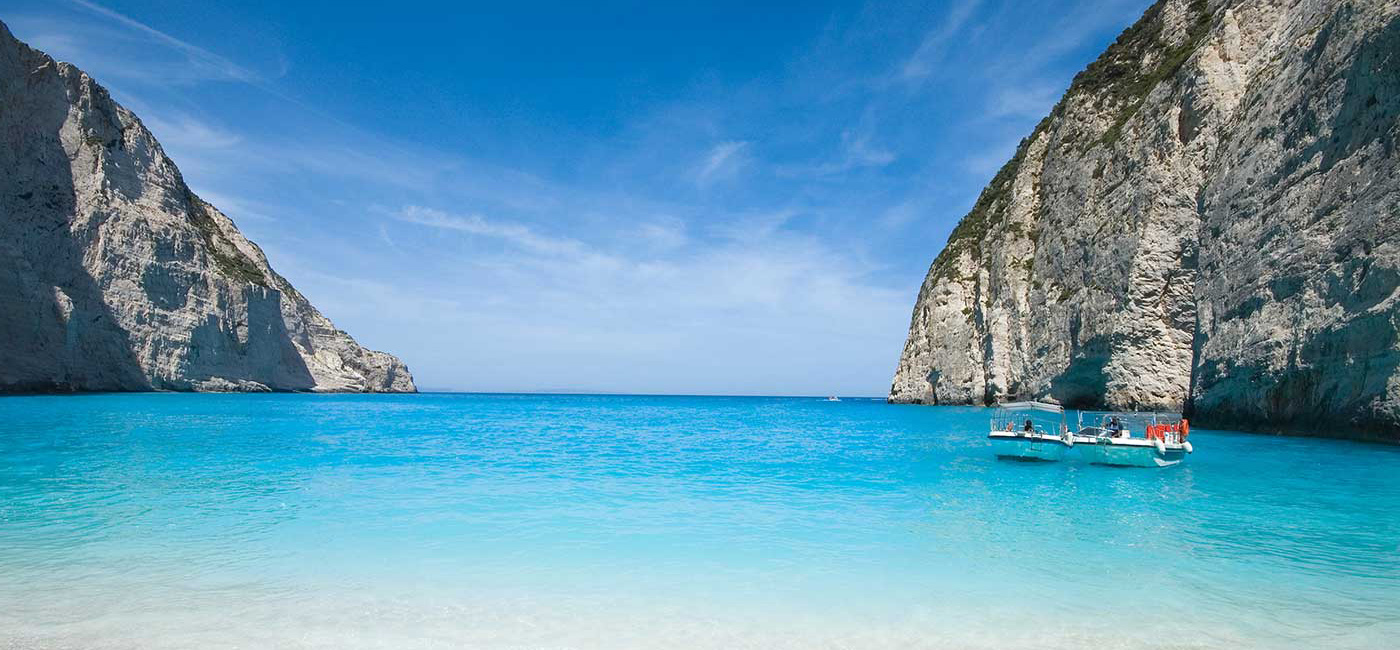
Tours & Vacations
Visit entire world.
Find best packages

Car Rentals
Hire or rent cars.
Ground transportation partnerships

Domestic Flights
Istanbul - antalya - trabzon -.
Pamukkale - Cappadocia - Uzungöl - Bursa

White Dreams for the Winter Holiday
Book now - get advantage for your holiday.
Best Winter Place Kartepe

Enjoy your Winter Cheap Holiday Package
Do not wait, visit our packages.
Istanbul and Turkey

Istanbul By Night with Dinner - Show
Enjoyable evenning tours.
Istanbul - Eminönü

Book your Cheap Turkey Flight
Best price guarantee.
Domesctic and International Flights

Welcome to TURKEY
There is turkey cheap packages for you.
Enjoy your Holiday in Istanbul

Over 4,30,000 listings available

Manage your billing online

Best Prices and Deals Packages

100% secure payment
Featured hotels.

Four Seasons Istanbul…

Divan Hotel Taksim (Taksim)

The Marmara Taksim Hotel…

The Marriot Şişli…

Grand Cevahir Hotel…

Pera Palace Jumeriah…

Radisson Blu Şişli…

Anthill Residence Hotel…
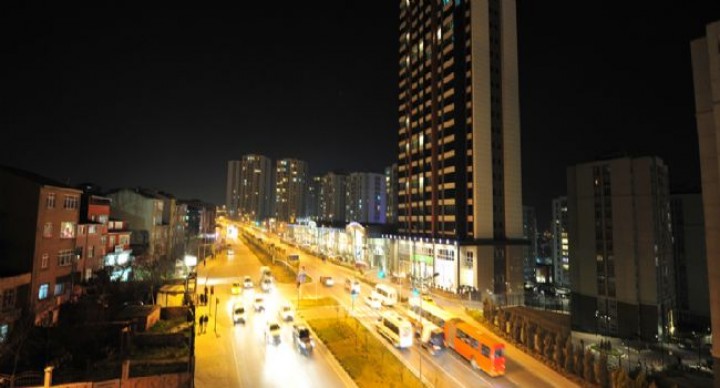
Avrupa Residence Hotel…
Featured Tours
{{item.title | strLimit: 20}}
{{item.currCode}} {{item.currSymbol}}{{item.price}}
Featured Cars

Fiat Dublo 1.3 AC

Ford Transit Tourne…

Renault Fluence 1,5…

Peugeut 301

Renault Clio Sport Tourer
Featured Offers

Istanbul Shopping Tour
Euro €88 .

New Year Istanbul
Euro €236 .
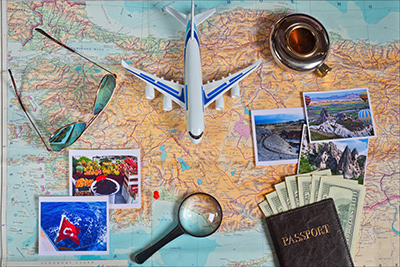
Winter Cheap Budget Tour

Girls and Ladies Tour Package
Euro €177 .

Cheap Flights Tickets
Euro €45 .

Book Hotel Get Free Transfer
Euro €80 .

Gourme Tours
Euro €134 .

- Supplier Login
- Supplier Platform Platform
- Travel Agency Download Documents
- View Our Catalog
- Tailor Made Services
- Customer Support
- Traveler Informations
- Holiday informations
- Our History
- About Our Company
- Company Profile
- Our Services
- incoming Services
- What is GTT

© All Rights Reserved by Go Travel Turkey
WELCOME to Türkiye
Group tours.
Experience the vibrant culture and rich history of Turkey on our captivating Group tours, where you’ll join a diverse group of fellow adventurers to explore this stunning country together. Wanna Go Travel invites you to embark on a shared journey filled with discovery and camaraderie.
PRIVATE TOURS
Discover the enchanting beauty of Turkey with our exclusive private tours, tailored to your desires and led by expert guides. At Wanna Go Travel, we ensure your journey through Turkey is a personalized, unforgettable experience like no other.
DAILY TOURS
Uncover the treasures of Turkey on our daily tours, meticulously crafted by Wanna Go Travel to offer you a captivating glimpse into this remarkable country, one day at a time. Join us for an immersive and hassle-free exploration, ensuring you make the most of each day of your Turkish adventure.
TAKING YOU ON GREAT JOURNEYS
Pick your destination and we’ll handle the rest.
CITY BREAKS
If a City Breaks is a flight + accommodation, why would you need an agency? Because we offer you accommodation at a discounted price.
EXPERIENCE BEACHES
Reconnect with the unspoiled beauty of the sea, embracing its freedom and tranquility, and reflect on nature’s wonders in untouched coastal destinations. Engage in snorkeling, coastal hikes, and beach meditation to regenerate and appreciate the serene beauty of the sea.
MOUNTAIN ADVENTURES
You’ll certainly remember the traditional villages’ incredibly beautiful landscapes with white mountains and huge ski areas.
DISCOVER Türkiye WITH US
For those who want vacations done the right way
4 Years Of Successful Vacation Planning
In an ever-evolving tourism landscape, identifying a reliable partner can pose challenges. When evaluating agency services, several factors must be considered, including experience, variety, pricing, and feedback from fellow travelers.
With more than 4 years in the industry, Wanna Go Travel emerges as a steadfast choice. Our portfolio spans both conventional and distinctive destinations. Whether craving seaside relaxation or exhilarating skiing, seeking local or international expeditions, a respite from routine or a team-building escapade, our adept consultants stand primed to furnish impeccable services at competitive rates.
ALWAYS AVAILABLE FOR ASSISTANCE
Affordable exotic vacations, customers are the core of our mission, happy memories from our travelers.
Our extensive expertise will make sure that yours is a SUCCESS STORY!
I had an amazing experience with Wanna Go Travel during my trip to Turkey. Their attention to detail and personalized itineraries made my vacation unforgettable. The team was knowledgeable, friendly, and always available to assist with any queries. I would highly recommend them to anyone planning a trip to Turkey.
Emily Johnson
Wanna Go Travel truly exceeded my expectations. As a solo traveler, I was initially hesitant, but they made everything so seamless and stress-free. From arranging transportation to suggesting hidden gems in Turkey, they made my journey delightful. Their prices were reasonable, and I felt safe throughout my travels. Kudos to the team!
David Thompson
I recently traveled to Turkey using Wanna Go Travel’s services, and I must say they exceeded my expectations in every way possible. The team was highly professional and accommodated all my preferences seamlessly. They curated a fantastic itinerary that covered all the must-see sights and some hidden gems that made my trip truly unforgettable. I felt well taken care of throughout the journey, and their local guides were knowledgeable and friendly. I highly recommend Wanna Go Travel to anyone looking for a hassle-free and enriching travel experience in Turkey.
Michael Evans
Cankurtaran Mah. Akbıyık Cad. Mevlana Bazaar Apt. No:47/1 Sultanahmet-Fatih/İstanbul
24/7 ASSISTANCE
+905525006447
Turkey Vacation & Tour Packages

Overflowing with Mediterranean energy and Middle Eastern hospitality, Turkey feels like a continent unto itself.
With Greco-Roman ruins, a sun-drenched Turquoise Coast, tiny hillside villages, delicately decorated minarets, and the world’s most spectacular historic mosques – Turkey is impossible to pigeonhole. If you know where to look among the shifting mountain backdrops, you’ll find one-of-a-kind sights and experiences that will set up camp in your heart. Break bread (and the fast) with new friends during Ramazan in the courtyard of the 17th-century Blue Mosque. Explore the hand-forged cave churches of Cappadocia in a landscape of towering wind-carved fairy chimneys. Sink your teeth into a gozleme filled with veggies you pulled from the dirt yourself. Discover Turkey with a local who is passionate about the land they call home.
Our Turkey trips
Let's create an exclusive trip for your group.
Turkey tour reviews
Filter by rating
Turkey Highlights
Articles of Turkey
Explore these 7 tea rituals from around the world
The 7 best places to go on a hot air balloon ride
Don’t miss these top destinations in Turkey
Turkey’s most underrated experience: mountain biking in Cappadocia
6 family holidays with a difference
Morag was left disabled after a hit and run. But that won’t stop her from seeing the world.
Hamams and hot-air balloons: What it’s like getting around Turkey as a plus-size traveller
Travel is back and we just dropped 10 new Premium adventures
Turkey departures by month
Popular regions, turkey at a glance, capital city.
Ankara (5.6 million)
(GMT+02:00) Athens, Bucharest, Istanbul
CALLING CODE
Electricity.
Type C (European 2-pin) Type F (German 2-pin, side clip earth)
Learn more about Turkey
Culture and customs.
Turkey has a strong national identity and both its location and the legacy of the Ottoman Empire have contributed to a cultural mix of influences from Europe , Asia and the Middle East . Cultural practices vary significantly depending on which region of Turkey you are travelling in. It's important to remember that while most Turkish cities are modern metropolises, Turks can still be quite traditional.
Travelers will find Turkish people to be polite and quite formal in their greetings, kind and hospitable as hosts and friendly as new acquaintances. While bars and nightclubs are common in big cities like Istanbul, outside of these environments it’s a good idea to take your cues from the locals and behave in a subdued manner. This doesn’t mean you can’t have fun, but raucous behavior should be contained to the appropriate venues and kept off the street.
While Turkey is nominally secular, the vast majority of the population identifies as Muslim and Islamic holidays like Ramazan (Ramadan) and Eid are widely observed and recognized as public holidays.
How to be a respectful traveler in Turkey
- Clean your plate If you’re eating with locals (particularly as a guest in their home), you’ll make them very happy if you eat multiple servings and finish everything on your plate. Plan ahead and arrive on an empty stomach for extra points.
- Know when to haggle Remember the first rule of bartering is to decide how much you’re willing to spend beforehand and use that as your guide. In regular shops – as opposed to markets – don’t attempt to haggle over prices.
- Respect the elderly Small gestures like letting elderly folks go ahead of you through doors, offering them your seat on public transport and generally being considerate and respectful of older people will be greatly appreciated.
- Keep criticism private It’s a good rule of thumb not to criticize the culture, government or politics of Turkey. While not all Turks are strict nationalists, you could cause a lot of trouble and offense. You should especially avoid discussing topics related to the Kurdish or Armenian people. When in doubt, follow the conversational lead of the locals. If you’re traveling with Intrepid, ask your leader for guidance. If you’re after a little insight into the geopolitical complexities of Turkey, check out the 'further reading' list below for some perspectives from Turkish authors.
History and government
Ancient history.
There is evidence of hominin habitation in the region known as Anatolia, or Asian Turkey, that dates as far back as 500,000 years and ample evidence of numerous Neolithic settlements popping up between 8000 and 10,000 years ago.
Notable civilizations who occupied the prehistoric Anatolian region were the Hattians (circa 2500 BC to 2000 BC), the Hittites (circa 1700 BC to 1200 BC) and the Assyrians. From around 2000 BC, Greeks began settling in north-western Anatolia and the southern coasts, establishing individual city-states.
Pre-modern history
The majority of Anatolia was conquered by Alexander the Great in 334 BC. After his death, a succession of various Greek-Macedonian rulers controlled the area until 133 BC when the region was given to the Roman Republic.
Roman control had little impact on the dominant classical Greek culture, which continued to thrive in Anatolia until the region’s absorption into the Byzantine Empire.
Between the sixth and 11th centuries a massive wave of what is known as the ‘Turkic migration’ occurred, and millions traveled across Central Asia into Europe and the Middle East . Among this migratory wave were various Turkic tribes who brought the Islamic religion and Turkic languages that dominate modern Turkey.
The Byzantine Empire sustained a number of invasions and limped forward before finally collapsing in the 14th century, by which point much of Anatolia was already controlled by tribal micro-kingdoms. One of these Turkic tribal groups, the Ottomans, emerged as the dominant regional power during the 15th century and enjoyed a few hundred years of expansion and growth until territorial losses forced its eventual decline in the 19th century.
20th century
The final dissolution of the Ottoman Empire after defeat at the hands of the Allies in WWI was followed by a brief period of Allied occupation before the establishment of the Republic of Turkey in 1923.
Mustafa Kemal Ataturk became the republic’s first president and introduced radical reforms to modernize Turkey and imbue it with a unique identity that was separate from that of the former empire. His ideas continue to be influential in contemporary politics today.
In the decades since the death of Ataturk in 1938, Turkey has seen a number of swings between democratic and autocratic governance, interrupted by brief periods of military governance and occasional political chaos.
Turkey today is a presidential republic where the ruling political parties have historically been nationalist and somewhat economically liberal, with a varying amount of Islamic influence.
Far-left political activist groups and minority rebel groups have waxed and waned in terms of public and political influence. The most notable is the Kurdistan Workers Party (PKK), a militant political group originally formed with the intention of creating a Kurdish separatist state. The arrest of PKK founder Abdullah Ocalan in 1999 was a crushing blow to the once-powerful group, though they continue to operate with the stated aim of ensuring the rights and autonomy of the Kurdish people in Turkey and beyond.
More recently, Turkey has experienced relative prosperity and political stability, though the economy – based on mineral mining, agriculture, tourism and construction – continues to fluctuate between growth and stasis.
Eating and drinking
Home to some of the tastiest produce you can get your hands on, traditional cooking methods and influence from Asia, Europe and the Middle East, Turkey’s food is surprising, delicious and delightful (pun definitely intended).
Plant-based options
Many Turkish favorites are already non-meat. Gozleme, simit and cig kofte are all vegetarian and easy to find in markets, street corner food stands and restaurants. Vegans will have a trickier time finding pre-made dishes that contain no animal products. However, Turkey has an abundance of markets selling fresh produce, bread and extras like hummus and fava bean dip. With a little planning, vegans will be able to assemble meze-style lunches when pre-made options aren’t available.
In dishes like soups and stews it’s a good idea to watch out for beef stock – called et suyu – as it is used frequently even in ‘vegetarian’ dishes.
Must-try Turkish dishes and beverages
- Gozleme This spinach and cheese pastry is a tasty budget-friendly bite that will satisfy everyone (especially vegetarians).
- Lokum Love it or hate it, this divisive treat (known internationally as Turkish delight) can be found in shops, bazaars and street stalls nearly everywhere in Turkey. Made from rosewater, lemon, sugar, cornflour and water, it's relatively easy to make… and even easier to eat.
- Simit As far as quick and easy snacks go it’s hard to pass up simit, a bread similar to a sesame-encrusted bagel. Carts selling simit can be found at bus and train stations, main streets and other busy thoroughfares in most cities.
- Cig kofte Made with bulgur, onion, tomato paste and spices, this south-eastern specialty is essentially a big ol’ vegetarian ‘meatball’. The traditional kind (made with raw meat) is now banned, so you can eat without fear of food poisoning.
- Fish sandwiches Particularly if you’re spending time in the Bosphorus, a fish sandwich (or balik ekmek) is a must-try local dish. Made with white fish, onion and salad, it’s a simple classic that hits the spot.
- Manti Though the ingredients that fill these handmade dumplings vary, the best kind are filled with lamb and served with yogurt and butter. It’s hard to move after polishing off a plate, but so worth it.
- Turkish coffee Turkish coffee is known around the world for its unique brewing method. It's made with arabica beans which are ground into a fine powder and boiled with cardamom and water in a cevze – a pretty copper or brass pot with a long, thin handle.
Learn more about what to drink in Turkey
Turkey travel highlights
One of the best-preserved classical cities in the Eastern Mediterranean and arguably the greatest Greco-Roman site in the world, the ruins of Ephesus are essential viewing for amateur historians.
Turkey Highlights, 8 days
Turkey: Bike & Kayak, 12 days
Boasting incredible Roman ruins and a harbor that proves the term ‘Turquoise Coast’ is well-deserved, Antalya is a sophisticated slice of Mediterranean Turkey.
Turkey Encompassed, 15 days
Essential Turkey, 11 days
3. Istanbul
People are passionate about Istanbul. Allow at least a few days to explore the sights of this continent-straddling city and discover the indefinable quality that inspires such devotion.
Taste of Istanbul, 3 days
Turkey Real Food Adventure, 11 days
The main base for exploring stunning Cappadocia, Goreme has many buildings that are carved into the same soft volcanic rock that forms the fairy chimneys and spires the region is famous for.
Turkey Uncovered, 14 days
5. Mt Nemrut
Hike to the summit of this remote mountain and you’ll be rewarded with the ruins of an ancient mausoleum, including gigantic stone heads which are all that remain of epic statues of various gods.
Turkey Backroads, 5 days
Turkey Explored, 18 days
Cruise to the sunken city of Kekova, where you can swim and snorkel in crystal blue waters, taste fabulous local cuisine, float over an ancient sunken city or explore Lycian tombs.
Geography and environment
A fairly mountainous country sharing borders with Bulgaria , Greece , Syria, Iraq, Iran , Armenia , Georgia and Azerbaijan , Turkey also has wide stretches of coastline along the Aegean, Mediterranean and Black Seas.
Blessed with large tracts of fertile soil, Turkey is one of the world's biggest agricultural producers, and visitors can expect to see many farms, orchards, plantations and areas of permanent crops occupying certain regions.
Due to its location, Turkey is home to a wide variety of landscapes, from the rocky, forested coastline of the Black Sea region to the fertile plateaus of the Marmara, the white sand beaches of the Aegean and the limestone formations of the Mediterranean. Adding further environmental diversity, the Anatolia highlands (considered the heartland of the country) feature rugged snow-capped peaks and crystalline lakes.
With one of the biggest bazaars in the world, flea markets aplenty and a cutting-edge contemporary fashion scene in the bigger cities, shopping in Turkey is more diverse than you might think.
It's a good idea to check with your local customs officials to ensure that you are able to bring certain items back into your home country, particularly perishable items. Australia and New Zealand, for example, generally have strict quarantine laws.
A note on ceramics
While beautifully decorated tiles and ceramics overflow from Turkey’s market stalls, you should keep in mind that their point of origin can be hard to decipher. In other words, watch out for fakes. The real deal tends to be pretty expensive (but worth it, if you ask us). Of course, if you’re just after something pretty to remind you of your travels, don’t feel too bad about reaching for the inexpensive option.
Things to buy in Turkey
- Handwoven carpets Turkish carpets are a worldwide phenomenon and represent centuries of artistic tradition woven into a beautiful work of art. Go in with an idea of how much you’re willing to pay and don’t be afraid to bargain a little. Just keep in mind that quality craftsmanship deserves to be rewarded with a fair price. A lot of vendors and stores will give you the carpet in a bag suitable to transport as luggage, or you might consider shipping it back home.
- Nazar boncuk (evil eye talisman) Want to bring home a little piece of Turkey and ward off evil spirits and intentions at the same time? An evil eye talisman is a perfect thing. You’ll see these little blue ‘eyes’ in every shop and the majority of Turks carry one with them wherever they go.
- Jewelry Turkey's artisan-made gold and silver earrings, rings and bracelets are good buys. Bazaars, boutiques, museum gift shops and silversmiths offer a wide range of designs from modern to Ottoman-inspired.
- Brass and copper You can find an assortment of brass and copper decorative objects for the home in the bazaars of Turkey. Serving platters, pitchers, trays, pots and urns will add some souvenir flair to your kitchen.
Festivals and events
If you want an adventure with a point of difference, consider planning your travels to coincide with these popular events.
The 30-day Islamic holy month of Ramadan (Ramadan) is widely observed in Turkey. The exact dates change every year, so it’s important to check when Ramazan will take place in the year you plan to travel. As a general rule, five consecutive public holidays are observed at the beginning of the month and a few at the end.
The level of celebration varies considerably depending on what part of Turkey you are in. The east has a larger Muslim population and, therefore, a more devoutly observed Ramazan, whereas the southern and western coasts will be less affected.
Whether or not you want to travel during Ramazan (Ramadan) will depend on what kind of adventure you’re after. If you love immersing yourself in local culture and religious practices (and don’t mind a little inconvenience), you might just find travelling during this holy month a fascinating and enriching experience. While the days are dedicated to fasting and contemplation, the evenings are full of colorful celebration and, of course, feasting! Plus, there are fewer tourists around to compete with.
Anniversary of the Anzac campaign
Thousands of people head to Gallipoli every year to pay their respects to fallen Australian , New Zealand and Turkish soldiers who died during the bloody Gallipoli campaign of WWI. The moving dawn ceremony is an iconic event that grows in popularity each year, so if you're hoping to head to Gallipoli in April for Anzac Day, plan ahead.
Efes Pilsen One Love Festival
This annual summer music festival held in Istanbul presents two days of rock, pop, folk and electronic entertainment for masses of locals and visitors keen on soaking up some tunes and summer love.
Kirkpinar Oil Wrestling Championships
Want to see thousands of oiled-up men wrestle and grapple with each other? Then this is the festival for you! This wrestling championship is held over several days, usually in late June, when Turkey's national sport is celebrated with gusto and fanfare. Apart from the one-on-one wrestling bouts, there are Romani bands, traditional food and belly dancers providing the perfect sideshow attractions.
Cappadox Festival
Set in the otherworldly landscape of Cappadocia, this eco-friendly music festival features artists and musicians performing on solar-powered stages and inside the ancient caves that the region is famous for. Held around June, the festival was originally an annual event but has moved to a biennial timetable.
Learn more about festivals in Turkey
Public holidays that may impact travel include:
Ramazan Bayrami
National Sovereignty and Children's Day
Commemoration of Atat
Kurban Bayrami
Victory Day
Republic Day
Please note that the dates of Turkey's public holidays may vary.
Further reading
For inspiring stories to prepare you for your Turkey adventure, check out these books:
- Turkey: A Short History – Norman Stone
- The Bastard of Istanbul – Elif Shafak
- Last Train to Istanbul – Ayse Kulin
- Poems of Nazim Hikmet – Nazim Hikmet
- Istanbul: Memories and the City – Orhan Pamuk
- Portrait of a Turkish Family – Irfan Orga
- A Fez of the Heart – Jeremy Seal
- Turkish Coast Through Writers' Eyes – Rupert Scott (ed.)
Similar destinations
Thinking about a trip to Turkey but still browsing other destinations? Or, maybe you've already traveled to the crossroads of Europe and Asia and you're looking for somewhere similar? Check out tours to neighboring locations:
- Greece tours
- Cyprus tours
- Bulgaria tours
Turkey travel FAQs
Do i need a covid-19 vaccine to join an intrepid trip.
Trips from 1 January 2023 onwards
From 1 January 2023, Intrepid will no longer require travelers to provide proof of vaccination against COVID-19 (excluding all Polar trips and select adventure cruises).
However, we continue to strongly recommend that all Intrepid travelers and leaders get vaccinated to protect themselves and others.
Specific proof of testing or vaccination may still be required by your destination or airline. Please ensure you check travel and entry requirements carefully.
Do you need a visa to travel to Turkey?
You may need a visa to enter Turkey depending on where you’re from. Foreign nationals from several countries will need an e-visa that allows stays of up to 90 days within a 180-day period, including:
- South Africa
Travelers from many countries – including New Zealand , the United Kingdom , Denmark, Finland, France, Germany, Japan , Norway, Sweden and Switzerland – don’t require a visa for stays of less than three months if the trip is for tourism or business purposes.
When is the best time to visit Turkey?
The best time to visit Turkey is typically during the shoulder seasons of March to May or September to October when the temperatures are still warm and there aren't yet large summer crowds.
For the best beach weather, the hottest time of year is June and July, however, this collides with the summer holidays, so it will be busy.
The cooler months are quieter and accommodation (when still open) is cheaper.
If you are planning to travel to the eastern reaches of Turkey during Ramadan/Ramazan, it’s important to consider that many restaurants and shops will either be closed or operating at reduced hours. However, the carnival atmosphere that erupts when the fast breaks in the evening is magical, so travelers who enjoy immersive cultural experiences might prefer to travel during the holy month.
What's the weather like in Turkey?
The weather in Turkey depends on the time of year and region you're visiting. The southern coastlines typically experience a Mediterranean climate with hot summers and wet winters, while the interior regions can experience drastic temperature changes and even snow.
If you're planning on swimming, the water is generally still warm up until the start of November and October is great as it's much quieter.
Weather in Istanbul is fairly temperate, sheltered from severe weather by its proximity to the coastlines.
Is tipping customary in Turkey?
While tipping isn't mandatory in Turkey, a cash tip that equals a small percentage of the total bill is very much appreciated in restaurants.
It's also customary to tip staff while visiting hammams (bathhouses). It's not necessary to tip taxi drivers, although rounding up the fare for convenience is commonplace.
What is the internet access like in Turkey?
Free wi-fi is common in Turkey’s cities, but the quality of connection varies. Alternatively, Turkey has an abundance of internet cafes in large cities, and most of them serve coffee and snacks so you can refuel while you catch up with folks back home.
Internet access can be spotty or non-existent in rural areas, so it’s best to treat travel in these regions as an opportunity for a digital detox.
Can I use my mobile phone while in Turkey?
Mobile phone coverage is good in Turkey, especially in large cities. Coverage may not be available in more remote areas. Ensure you have global roaming activated with your mobile carrier before you leave home if you wish to use your mobile.
What are the toilets like in Turkey?
Turkey has a mix of Western-style and squat-style toilets, sometimes with a jug of water for manual flushing. The latter becomes more common the more remote the region, however, there's typically a Western-style toilet in every bathroom.
Toilets are known as WCs (short for water closets) in Turkey.
Many public toilets require a small payment of roughly 2-10 TRY for use, so make sure you carry change when out and about.
You may find the standards of hygiene and sanitation in Turkey are laxer than you are used to so it's a good idea to carry toilet paper and hand sanitiser if you are concerned.
Can I drink the water in Turkey?
Drinking tap water isn't recommended in Turkey. For environmental reasons, try to avoid buying bottled water. Fill a reusable water bottle or canteen with filtered water or carry water purification tablets with you. It's also advisable to avoid ice in drinks and to peel fruit and vegetables rather than eating washed or unwashed produce.
Are credit cards widely accepted in Turkey?
Major credit cards are widely accepted in tourist shopping areas and large hotels in Turkey, but are less commonly accepted by smaller vendors, in remote towns and rural areas. We recommend carrying cash for purchases to avoid being caught out.
What is ATM access like in Turkey?
ATMs are available in large cities in Turkey but are not common in rural areas and smaller towns. Be prepared for this by having enough cash before traveling out of the city.
What to wear in Turkey
Turkey can get quite warm in summer and during the shoulder seasons but it’s important to remember that clothing that covers you from elbows to below the knee is appropriate in (or even around) mosques. Think linen pants, lightweight tops/shirts and long dresses. Female travelers should also carry a scarf on them to wear when visiting mosques.
Do I need to purchase travel insurance before traveling?
Absolutely. All passengers traveling with Intrepid are required to purchase travel insurance before the start of their trip. Your travel insurance details will be recorded by your leader on the first day of the trip. Due to the varying nature, availability and cost of health care around the world, travel insurance is very much an essential and necessary part of every journey.
For more information on insurance, please go to: Travel Insurance
Is Turkey safe for LGBTQIA+ travelers?
LGBTQIA+ travelers should be aware that while Turkey is nominally secular it can also be very conservative. As such, negative attitudes towards LGBTQIA+ individuals are common, particularly outside major cities.
While same-sex relationships and non-normative gender presentation are not against the law in Turkey, LGBTQIA+ people have no legally enshrined protection from discrimination. Legal prohibitions against ‘ offenses against public morality’ can and have been used to persecute LGBTQIA+ folks, though the likelihood of this being used to target travelers is low.
Transgender travelers, in particular, should be aware that trans people in Turkey report being the targets of violence and overt discrimination.
Istanbul and Ankara have established queer scenes, both of which are primarily oriented around cisgender gay men and to a lesser extent cisgender gay women. However, same-sex couples are still unlikely to engage in public displays of affection in these cities.
For more detailed and up-to-date advice, we recommend visiting Equaldex or ILGA before you travel.
If you are traveling solo on an Intrepid group tour, you will share accommodation with a passenger of the same gender as per your passport information. If you don’t identify with the gender assigned on your passport, please let us know at the time of booking and we’ll arrange the rooming configuration accordingly. A single supplement is available on some tours for travelers who do not wish to share a room.
Is Turkey accessible for travelers with disabilities?
Intrepid is committed to making travel widely accessible, regardless of ability or disability. That’s why we do our best to help as many people see the world as possible, regardless of any physical or mental limitations they might have. We’re always happy to talk to travelers with disabilities and see if we can help guide them toward the most suitable itinerary for their needs and, where possible, make reasonable adjustments to our itineraries.
While infrastructure is improving, much of Turkey remains difficult to navigate for wheelchair users and people with mobility concerns. Many cities in Turkey have been occupied for thousands of years and their design reflects that, with little regard given to making streets and attractions accessible. Travelers with impaired mobility will find that while tourist locales in Istanbul, such as hotels and mosques, are fitted with ramps and connected by an accessible tram, getting around the rest of the city can be challenging. Rural regions like Cappadocia will be difficult for travelers with mobility impairment to navigate independently.
Squat toilets remain the norm in many parts of Turkey, which can pose problems for travelers with certain disabilities.
Traffic in Turkey can be chaotic, and even when traffic lights and pedestrian crossings exist drivers do not always obey them. Taxis are, for the most part, not wheelchair-friendly.
Travelers who use battery-operated hearing aids should consider bringing a stash of extra batteries, as they can be difficult to locate in Turkey.
If you do live with a visual, hearing or other impairment, let your booking agent or group leader know early on so they’re aware and suitable arrangements can be made. As a general rule, knowing some common words in the local language, carrying a written itinerary with you and taking to the streets in a group, rather than solo, can help make your travel experience the best it can be.
Does my trip to Turkey support The Intrepid Foundation?
Yes, all Intrepid trips support the Intrepid Foundation. In fact, we make a donation on behalf of every traveler. Trips to Turkey directly support our foundation partner, C ontemporary Life Support Association (CYDD) .
Contemporary Life Support Association (CYDD) provide scholarships and educational programs for economically disadvantaged youth in Turkey. Donations from our trips fund a program where young scholarship awardees undertake outreach workshops with marginalized children in regional villages. Workshops include information sessions on gender equality, health, law, culture, and other human rights topics.
Intrepid will double the impact by dollar-matching all post-trip donations made to The Intrepid Foundation.
How do I stay safe and healthy while traveling?
From Australia?
Go to: Smart Traveller
From Canada?
Go to: Canada Travel Information
From the UK?
Go to: UK Foreign Travel Advice
From New Zealand?
Go to: Safe Travel
From the US?
Go to: US Department of State
The World Health Organisation also provides useful health information.
What kind of accommodation will I be staying in?
Traveling with Intrepid is a little bit different. We endeavor to provide travelers with an authentic experience to remember, so we try to keep accommodation as unique and traditional as possible.
When traveling with us in Turkey you may find yourself staying in a:
These locally run guesthouses are the perfect blend of a comfortable homestay and a hotel, combining well-situated and authentic Turkish accommodation with modern conveniences.
Immerse yourself in local village life and enjoy Turkish hospitality (and food) during a homestay. Share a home-cooked meal with your hosts and embrace the slow life.
How will I be traveling around Turkey?
Intrepid believes half the fun of experiencing a new country is getting there, and getting around once there! Where possible, Intrepid uses local transport options and traditional modes of transport – which usually have less of an environmental impact, support small local operators and are heaps more fun.
Depending what trip you're on while in Turkey, you may find yourself traveling by:
Explore the rugged beauty of Turkey’s coast on a traditional Turkish sailing gulet. Spend days exploring submerged ruins and nights cozied up on deck under the stars.
What is it like traveling on a small group tour?
Whether you’re a seasoned traveler or you’re about to embark on your first trip, traveling can be as intimidating as it is exciting. That's the beauty of a small group tour. From handling the logistics and organizing amazing cultural activities to local leaders who know each destination like the back of their hand (like which street has the best markets and where to get the most authentic food), traveling on a small group tour with Intrepid will give you unforgettable travel experiences without the hassle that comes with exploring a new place. Plus, you'll have ready-made friends to share the journey with. All you have to do is turn up with a healthy sense of adventure and we’ll take care of the rest.
Does my Intrepid trip include airfare?
While our Intrepid trips include many modes of transport, from tuk-tuks to overland vehicles, bullet trains and feluccas, airfare to and from your home country is not included in your tour package.
Security Alert May 17, 2024
Worldwide caution, update may 10, 2024, information for u.s. citizens in the middle east.
- Travel Advisories |
- Contact Us |
- MyTravelGov |
Find U.S. Embassies & Consulates
Travel.state.gov, congressional liaison, special issuance agency, u.s. passports, international travel, intercountry adoption, international parental child abduction, records and authentications, popular links, travel advisories, mytravelgov, stay connected, legal resources, legal information, info for u.s. law enforcement, replace or certify documents.
Before You Go
Learn About Your Destination
While Abroad
Emergencies
Share this page:
Travel Advisory July 26, 2023
Turkey - level 2: exercise increased caution.
Reissued with obsolete COVID-19 page links removed.
Exercise increased caution when traveling to Turkey due to terrorism and arbitrary detentions. Some areas have increased risk. Read the entire Travel Advisory.
Do Not Travel To:
- Sirnak province, Hakkari province, and any area within six miles (10 kilometers) of the Syrian border due to terrorism.
Country Summary: Terrorist groups continue plotting possible attacks in Turkey. Terrorists may attack with little or no warning, targeting tourist locations, transportation hubs, markets/shopping malls, local government facilities, hotels, clubs, restaurants, places of worship, parks, major sporting and cultural events, educational institutions, airports, and other public areas.
Security forces have detained tens of thousands of individuals, including U.S. citizens, for alleged affiliations with terrorist organizations based on scant or secret evidence and grounds that appear to be politically motivated. U.S. citizens have also been subject to travel bans that prevent them from departing Turkey. Participation in demonstrations not explicitly approved by the Government of Turkey, as well as criticism of the government (including on social media), can result in arrest.
Read the country information page for additional information on travel to Turkey.
If you decide to travel to Turkey:
- Stay alert in locations frequented by tourists.
- Avoid demonstrations and crowds.
- Stay at hotels with identifiable security measures.
- Monitor local media and be prepared to adjust your plans quickly.
- Enroll in the Smart Traveler Enrollment Program ( STEP ) to receive travel alerts and make it easier to locate you in an emergency.
- Follow the Department of State on Facebook and Twitter .
- Review the Country Security Report for Turkey.
- Visit the CDC page for the latest Travel Health Information related to your travel.
- Prepare a contingency plan for emergency situations. Review the Traveler’s Checklist .
Sirnak Province, Hakkari Province, and Any Area within six miles (ten kilometers) of the Syrian Border – Level 4: Do Not Travel
Do not travel to Sirnak province, Hakkari province, or any area within six miles (10 kilometers) of the Turkey/Syria border due to the continued threat of attacks by terrorist groups, armed conflict, and civil unrest. Terrorist attacks, including suicide bombings, ambushes, car bomb detonations, and improvised explosive devices, as well as shootings, and illegal roadblocks leading to violence have occurred in these areas. U.S. government employees are subject to travel restrictions in the entire provinces of Sirnak and Hakkari, and any areas within 10 km of the Syrian border.
Visit our website for Travel to High-Risk Areas .
Embassy Messages
View Alerts and Messages Archive
Quick Facts
Six months beyond date of entry
One page for entry and exit stamps
Not required for stays under 90 days
25,000 Turkish lira or 10,000 euros (or equivalent)
Embassies and Consulates
U.s. embassy ankara.
1480 Sok No:1 Cukurambar Mah Cankaya 06530, Ankara Turkey Telephone: +(90) (312) 294-0000 (emergencies only) Fax: +(90) (312) 232-7472 Contact American Citizen Services Ankara
U.S. Consulate General Istanbul Istinye Mahallesi, Üç Şehitler Sokak No.2 Istinye 34460 – Istanbul, Turkey Telephone: +(90) (212) 335-9000 Emergency After-Hours Telephone: +(90) (212) 335-9000 Fax: +(90) (212) 335-9102 Contact American Citizen Services Istanbul
U.S. Consulate Adana Girne Bulvari No. 212, Güzelevler Mahallesi, Yüregir Adana, Turkey Telephone: +(90) (322) 455-4100 Emergency After-Hours Telephone: +(90) (322) 455-4100 Fax: +(90)(322) 455-4141 Contact American Citizen Services Adana
U.S. Consular Agent - Izmir Emergency After-Hours Telephone: +(90) (312) 455-5555 [email protected]
Destination Description
Learn about the U.S. relationship to countries around the world.
Entry, Exit and Visa Requirements
Visit the Embassy of the Republic of Turkey website for the most current visa and residency permit information.
- In Turkey, contact the nearest Directorate General of Migration Management office to obtain a residence permit.
Obey all Turkish visa regulations and maintain valid residence permits at all times. The U.S. Embassy is unable to assist with Turkish immigration or visa-related matters. Turkish authorities enforce immigration laws.
- Passports must be valid for six months beyond your entry date. You will be denied entry into Turkey if there is not enough space for entry and exit stamps in your passport.
- Official passport holders are required to have visa to enter Türkiye .
- Ordinary passport holders are exempted from visa up to 90 days in any 180-day period.
- Get entry and exit stamps . You must have a Turkish entry stamp to fly domestically. Get an exit stamp in your passport when leaving the country or you may face difficulties re-entering Turkey in the future and a fine .
- If you are planning to work, study, or conduct academic or scientific research in Turkey, you must receive a visa from a Turkish embassy or consulate before arriving in Turkey. Visit “Living in Turkey” on the U.S. Embassy’s website.
Syria: See the Syria travel advisory. The U.S. Embassy in Damascus suspended operations in February 2012. The Department of State continues to warn U.S. citizens against all travel to Syria. At this time, the Turkey-Syria border is closed except in cases of urgent medical treatment or safety from immediate danger as defined by the Government of Turkey.
Iraq: See the Iraq travel advisory . The Department of State continues to warn U.S. citizens against all travel to Iraq. The Turkish Government tightly controls entry and exit on the border.
HIV/AIDS restrictions: The U.S. Department of State is unaware of any HIV/AIDS entry restrictions for visitors to or foreign residents of Turkey.
Find information on dual nationality , prevention of international child abduction and customs regulations on our websites.
Safety and Security
Terrorism: The potential for terrorist attacks in Turkey, including against U.S. citizens and interests, remains high.
- Terrorists have previously attacked U.S. interests in Turkey, including the U.S. Embassy in Ankara, the U.S. Consulate General in Istanbul, and the U.S. Consulate in Adana.
- Terrorist groups continue plotting possible attacks in Turkey. Terrorists may attack with little or no warning, targeting tourist locations, transportation hubs, markets/shopping malls, local government facilities, hotels, clubs, restaurants, places of worship, parks, major sporting and cultural events, educational institutions, airports, and other public areas. Terrorists have also previously targeted Western tourists and expatriates.
Under laws passed in 2018, Turkish security forces have an expanded legal ability to stop and search individuals and to detain individuals without charge.
For your own safety:
- Carry a passport or identity document at all times.
- Follow local news sources during your stay to remain abreast of any potential areas, dates, or times of concern.
- Exercise caution and good judgment, keep a low profile, and maintain a high level of vigilance.
- Avoid demonstrations, which may become violent and unpredictable.
- Obey the instructions of Turkish security personnel at all times.
There have also been threats and acts of violence targeting religious minorities, groups, institutions, and places of worship in Turkey. The level of anti-Israeli and anti-Semitic sentiment remains significant.
Protests and gatherings: Public gatherings are common in Turkey and can include protests or demonstrations, holiday celebrations, family events, sporting events, and political events in the lead up to elections and following the announcement of election results. U.S. citizens should
- Avoid demonstrations and gatherings, as they may become violent and unpredictable.
- Be aware celebratory gunfire is common in some areas and has resulted in deaths in recent years.
- Follow local authorities instructions, police may take action to disperse the group, including possibly using teargas or detaining participants, even when the government has approved gatherings.
Crime: Overall street crime in Turkey is low; however, you should use the same precautions you would take in the United States. The following types of crime have been reported in Turkey:
- Pick-pocketing , purse snatching , and mugging. Carry only necessary items when in tourist areas.
- Residential crime occurs more often in major cities, with criminals targeting ground floor apartments for theft.
- Sexual assault has occurred in Turkish baths ( hamams ) or spas, in taxis, and when traveling alone at night. Assaults involving date rape drugs have also been reported.
- Confidence schemes occur where travelers are tricked into ordering food or drinks at a restaurant, and then are charged incredibly high prices. Patronize well-established restaurants and ask to see a menu with prices before ordering anything.
- Scams are common in Turkey, particularly internet scams involving people who met online. Typically, the person in Turkey asks the other person to wire large sums of money to provide financial assistance. Do not send money to someone you have never met in person. Exercise due diligence when purchasing jewelry, rugs, or real estate. See the Department of State and the FBI pages for information on scams.
Eastern and Southeastern Turkey: We strongly recommend that U.S. citizens reconsider travel to specific areas in eastern and southeastern Turkey, and do not travel to areas near the Syrian or Iraqi borders.
U.S. Government employees are subject to travel restrictions to the provinces of Batman, Bingol, Bitlis, Diyarbakir, Gaziantep, Hakkari, Hatay, Kilis, Mardin, Sanliurfa, Siirt, Sirnak, Tunceli and Van. Mount Ararat , in Agri province, is a special military zone, and access permission must be obtained before coming to Turkey from a Turkish Embassy or Consulate.
The following incidents and activities have taken place in eastern and southeastern Turkey :
- Terrorist attacks: Terrorist groups, including Da’esh, also referred to as The Islamic State of Iraq and the Levant (ISIL) or The Islamic State of Iraq and ash Sham (ISIS), and the PKK (the Kurdistan Workers’ Party), have conducted large-scale attacks in the area, including suicide bombings, ambushes, and the detonation of car bombs, improvised explosive devices, and other homemade weapons. The PKK has attacked Turkish military and police personnel in the eastern and southeastern provinces, occasionally harming bystanders.
- Restricted access: Turkish security forces control access to the southeastern provinces of Hakkari, Mardin and Sirnak along the Iraqi border, and the entire Turkey-Syria border. Do not photograph or video Turkish military operations or attempt to enter military installations anywhere in Turkey.
- Shootings: Turkish towns located along the border with Syria have been struck by bullets and artillery rounds that originate in Syria, some resulting in deaths or injuries.
- Roadblocks: Use commercial air travel whenever possible while traveling to southeastern Turkey. If road travel is necessary, drive only during daylight hours and on major highways. The Turkish Jandarma (rural police) monitors checkpoints on roads. Cooperate if stopped at a checkpoint. Be prepared to provide identification and vehicle registration. Remain calm, do not make any sudden movements, and obey all instructions. We strongly discourage the use of public transportation in the southeastern region.
- Demonstrations: Violent clashes have taken place between Kurdish groups and Turkish police resulting from organized demonstrations.
- Curfews: The Turkish Government has instituted temporary curfews in cities throughout the southeast due to blockades of certain neighborhoods by the PKK. Adhere to any locally imposed curfews.
Victims of Crime: Report crimes to the local police by dialing 155 and contact the U.S. Embassy or nearest consulate. Remember that local authorities are responsible for investigating and prosecuting the crime. See our webpage on help for U.S. victims of crime overseas . We urge U.S. citizen victims of sexual assault to contact the U.S. Embassy or closest consulate.
We can:
- help you find appropriate medical care
- assist you in reporting a crime to the police
- contact relatives or friends with your written consent
- Provide general information regarding the victim’s role during the local investigation and following its conclusion.
- provide a list of local attorneys
- provide our information on victim’s compensation programs in the U.S.
- provide an emergency loan for repatriation to the United States and/or limited medical support in cases of destitution
- help you find resources for accommodation and flights home
- replace a stolen or lost passport
Domestic Violence: U.S. citizen victims of domestic violence may contact the Embassy for assistance and visit the Embassy webpage for resources.
Tourism: The tourism industry is generally regulated and rules with regard to best practices and safety inspections are regularly enforced. Hazardous areas/activities are identified with appropriate signage and professional staff is typically on hand in support of organized activities. In the event of an injury, appropriate medical treatment is widely available throughout the country. Outside of a major metropolitan center, it may take more time for first responders and medical professionals to stabilize a patient and provide life-saving assistance. U.S. citizens are encouraged to purchase medical evacuation insurance .
Local Laws & Special Circumstances
Criminal Penalties: You are subject to local laws. If you violate local laws, even unknowingly, you may be expelled, arrested, or imprisoned.
- Always carry with you a form of official government photo identification, such as a residence permit or copy of your passport.
Furthermore, some laws are also prosecutable in the U.S., regardless of local law. For examples, see our website on crimes against minors abroad and the Department of Justice website.
Arrest Notification: If you are arrested or detained, ask police or prison officials to notify the U.S. Embassy immediately. Turkish authorities may not inform U.S. officials of dual nationals arrested in Turkey. See our webpage for further information on arrests.
- Insulting the State: It is illegal to show disrespect to the name or image of Mustafa Kemal Atatürk, or to insult the Turkish Government, flag, President, or security forces, including on social media . Erase any sensitive photos, comments, or other materials from your social media pages, cameras, laptops, and other electronic devices that could be considered controversial or provocative.
- Drug offenses: Turkish law enforcement is very aggressive in combating illegal drugs. Penalties for possession, use, or trafficking of illegal drugs are very strict, and include heavy fines and jail sentences between four and 20 years.
- Cultural artifacts: Turkish law has a broad definition of “antiquities” and makes it a crime to remove any from the country. If you buy antiquities, use authorized dealers and get museum certificates for each item. Failure to have a receipt and certificate at departure can result in your arrest , and jail time . Contact the Embassy of the Republic of Turkey in Washington for specific information regarding customs requirements.
- Male dual nationals over the age of 18 may be subject to Turkish conscription and compulsory military service. Consult officials at Turkish Embassies or Consulates with any questions before entering Turkey.
- Counterfeit goods: Do not buy counterfeit or pirated goods, even if widely available. They are both illegal to bring back into the United States and to purchase locally.
- Religious proselytizing: There is no law against religious proselytizing.
Faith-Based Travelers: See our following webpages for details:
- Faith-Based Travel Information
- International Religious Freedom Report – see country reports
- Human Rights Report – see country reports
- Hajj Fact Sheet for Travelers
- Best Practices for Volunteering Abroad
LGBTI Travelers: Homophobia, transphobia, and intolerance towards homosexuality are widespread throughout Turkey. Lesbian, gay, bisexual, transgender, and intersex (LGBTI) individuals are not protected by anti-discrimination laws and have been the targets of violence in recent years. References in the law relating to “offenses against public morality,” “protection of the family,” and “unnatural sexual behavior,” are sometimes used as a basis for abuse by law enforcement officials. In addition, the law states that “no association may be founded for purposes against law and morality,” a clause which has been used by authorities in attempts to shut down or limit the activities of associations working on LGBTI matters.
See our LGBTI Travel Information page and section 6 of our Human Rights report for further details.
Travelers Who Require Accessibility Assistance: The Turkish constitution prohibits discrimination against persons with disabilities in the provision of state services, employment, education and access to health care. However, access to buildings and public transportation for the disabled in most cities is quite limited, and generally, accessibility for people with disabilities in Turkey is poor. Airports and metro stations are typically accessible, but other forms of public transport (buses) are not.
Students: See our Students Abroad page and FBI travel tips .
Women Travelers: The Embassy is aware of multiple sexual assaults against U.S. citizens in Turkey, including assaults against tourists traveling alone or in small groups, and at spas and hamams.
- If you are sexually assaulted, please seek immediate help from the Turkish National Police, Turkish Health Services, or nearest hospital if you feel safe doing so.
- We urge you to contact the closest U.S. Embassy or Consulate for assistance.
See our travel tips for Women Travelers .
Earthquakes: Earthquakes occur throughout Turkey. Make contingency plans and leave emergency contact information with family members outside Turkey. General information about natural disaster preparedness is available from the U.S. Federal Emergency Management Agency (FEMA) and at Ready.gov. For more information on disaster preparedness, please click on the following links:
- U.S. Geological Survey (USGS)
- FEMA: Earthquakes
- FEMA for Kids: Emergency Preparedness
- U.S. Centers for Disease Control and Prevention (CDC) Earthquake Preparedness
Medical care provided in Turkish hospitals varies greatly. Though new private hospitals in Ankara, Antalya, Izmir and Istanbul have modern facilities, equipment, numerous U.S.-trained specialists, and international accreditation, some still may be unable to treat certain serious conditions. Health care standards are lower in small cities in Turkey.
We do not pay medical bills. Be aware that U.S. Medicare does not apply overseas.
Medical Insurance: Make sure your health insurance plan provides coverage overseas. Most care providers overseas only accept cash payments. See our webpage for more information on insurance overseas.
We strongly recommend supplemental insurance to cover medical evacuation.
If traveling with prescription medication, check with the government of Turkey to ensure the medication is legal in Turkey. Always carry your prescription medication in original packaging with your doctor’s prescription. Some medications may be unavailable in Turkey.
For U.S. citizens who live in Turkey , please see the Embassy’s website for information on the Turkish General Health Insurance (GHI) law . If you are considering enrolling in Turkish GHI, carefully research what is and is not covered. Once you enroll in GHI, your coverage can only be cancelled if your residence permit expires or if you no longer reside in Turkey.
Vaccinations: Be up-to-date on all vaccinations recommended by the U.S. Centers for Disease Control and Prevention.
Further health information:
- World Health Organization
- U.S. Centers for Disease Control and Prevention (CDC)
Travel and Transportation
Road Conditions and Safety: Roads in Turkey range from single-lane country roads to modern, divided motorways. Highways in the tourist-frequented western, southwestern, and coastal regions of Turkey are generally in good condition and are well maintained, while conditions in other areas vary.
Be extremely cautious while driving at night. Driving after dark, especially in rural areas, requires extra caution due to dangers such as livestock on the road or narrow unmarked or unpaved roads.
In case of an accident or car trouble :
- Pull to the side of the road, turn on hazard lights, and use reflector triangles.
- For accidents with only vehicular damage, exchange insurance information, take photos of the accident before moving the vehicles, and depart if both sides agree. Turkish law requires drivers to fill out a Turkish-only form and provide pictures of the damage. Non-Turkish speakers should call and wait for the police.
- For accidents with injury or a disagreement, remain at the site of the accident. Do not move the vehicle – even out of the way – until the Traffic Police arrive. Report the accident to the Traffic Police (dial 155) or Jandarma (dial 156). Get a certified copy of the official report from the Traffic Police office (this can take several days).
- The owner of the damaged vehicle should also apply to the customs authority with his passport and accident report before attempting to repair the vehicle or leave the country without the vehicle.
- When in doubt, it is best to call the Traffic Police or the Jandarma in the event of an accident.
Traffic Laws: Drive defensively at all times. Drivers routinely ignore traffic regulations, including driving through red lights and stop signs, and turning left from the far right lane. These and other similar driving practices cause frequent traffic accidents.
- Penalties for driving drunk (blood alcohol levels at or above 0.05 percent) include a fine and the individual’s license being confiscated for six months .
- Using cell phones while driving is illegal and can lead to a fine .
Driver’s license requirements include:
- For stays up to 180 days : A valid U.S. driver’s license or an International Driving Permit and a U.S. driver’s license is acceptable.
- For stays longer than 180 days : Obtain a Turkish driver’s license from the Turkish Security Directorate, Traffic Department (Emniyet Müdürlüğü, Trafik Hizmetleri Başkanlığı).
- A vehicle can be brought into Turkey for up to six months. Find information at the Turkish Touring and Automobile Club.
Public Transportation: Major cities in Turkey have extensive public transportation options including taxis, subways, ferries, trains, buses and mini-buses. Licensed cabs are metered. Between cities, Turkey has bus routes, train, and air services.
See our Road Safety page for more information.
Aviation Safety Oversight: The U.S. Federal Aviation Administration (FAA) has assessed the government of Turkey’s Civil Aviation Authority as being in compliance with International Civil Aviation Organization (ICAO) aviation safety standards for oversight of Turkey’s air carrier operations. Further information may be found on the FAA’s safety assessment page .
Maritime Travel: Mariners planning travel to Turkey should also check U.S. maritime advisories and alerts . Information may also be posted to the U.S. Coast Guard homeport website , and the NGA broadcast warnings website - select “broadcast warnings”.
For additional travel information
- Enroll in the Smart Traveler Enrollment Program (STEP) to receive security messages and make it easier to locate you in an emergency.
- Call us in Washington, D.C. at 1-888-407-4747 (toll-free in the United States and Canada) or 1-202-501-4444 (from all other countries) from 8:00 a.m. to 8:00 p.m., Eastern Standard Time, Monday through Friday (except U.S. federal holidays).
- See the State Department’s travel website for the Worldwide Caution and Travel Advisories .
- Follow us on Twitter and Facebook .
- See traveling safely abroad for useful travel tips.
Review information about International Parental Child Abduction in Turkey . For additional IPCA-related information, please see the International Child Abduction Prevention and Return Act ( ICAPRA ) report.
Travel Advisory Levels
Assistance for u.s. citizens, learn about your destination, enroll in step.

Subscribe to get up-to-date safety and security information and help us reach you in an emergency abroad.
Recommended Web Browsers: Microsoft Edge or Google Chrome.
Check passport expiration dates carefully for all travelers! Children’s passports are issued for 5 years, adult passports for 10 years.
Afghanistan
Antigua and Barbuda
Bonaire, Sint Eustatius, and Saba
Bosnia and Herzegovina
British Virgin Islands
Burkina Faso
Burma (Myanmar)
Cayman Islands
Central African Republic
Cote d Ivoire
Curaçao
Czech Republic
Democratic Republic of the Congo
Dominican Republic
El Salvador
Equatorial Guinea
Eswatini (Swaziland)
Falkland Islands
France (includes Monaco)
French Guiana
French Polynesia
French West Indies
Guadeloupe, Martinique, Saint Martin, and Saint Barthélemy (French West Indies)
Guinea-Bissau
Isle of Man
Israel, The West Bank and Gaza
Liechtenstein
Marshall Islands
Netherlands
New Caledonia
New Zealand
North Korea (Democratic People's Republic of Korea)
Papua New Guinea
Philippines
Republic of North Macedonia
Republic of the Congo
Saint Kitts and Nevis
Saint Lucia
Saint Vincent and the Grenadines
Sao Tome and Principe
Saudi Arabia
Sierra Leone
Sint Maarten
Solomon Islands
South Africa
South Korea
South Sudan
Switzerland
The Bahamas
Timor-Leste
Trinidad and Tobago
Turkmenistan
Turks and Caicos Islands
United Arab Emirates
United Kingdom
Vatican City (Holy See)
External Link
You are about to leave travel.state.gov for an external website that is not maintained by the U.S. Department of State.
Links to external websites are provided as a convenience and should not be construed as an endorsement by the U.S. Department of State of the views or products contained therein. If you wish to remain on travel.state.gov, click the "cancel" message.
You are about to visit:
Best Travel Agencies
Search turkeytravelplanner.com, what cities.
- Aegean Coastal Cities
- Mediterranean Coastal Cities
Hi, I'm Tom Brosnahan
My online Turkey travel guide has over 5000 pages on Istanbul and Turkey.
With over 50 years of travel writing experience and authoring more than 40 guidebooks, including the well-known "Lonely Planet Turkey", I share my best travel tips and local insight for exploring Turkey.
Travel Guide Topics
Where to go, best travel agents, best itineraries and guided tours, medical tourism, airport transport, guletyachts, car rentals, mobile phones, turkish lira exchange rates, travel costs, weddings & honeymoons in turkey, answers to travel questions, answers to your questions, travel tips.
Why a trip to Turkey?
How to Get a Turkish Visa
What to Wear & Pack in Turkey
How to Use Your Mobile (Cell) Phone in Turkey
Top 10 Turkish Travel Mistakes
Turkish Tour & Travel Agencies
Where Should I Go?
- Best Guided Tours
Map of Turkey - Regions and Major Cities
Cappadocia, Turkey Guide
Istanbul, Turkey Guide
Mediterranean Turkey Guide
Itineraries & Tours
Best Itineraries & Tours for 1, 7, 10 Days, or More.
Best 6 to 10-Day Turkey Tours
Hot-Air Balloon: Free TTP Upgrade!
Best Turkish Cuisine Tours—1 on a Gulet Yacht!
Private Guides in Turkey
Bosphorus Cruise, Istanbul
When's the Best Time to Go?
How is Each Month?
How's Turkey's Climate?
Turkish Time Zones
Public Holidays in Turkey
Islamic Holidays in Turkey
What Does it Cost?
What Money Should I Take?
Tipping in Turkey
Do I Need a Private Guide?
Shopping in Turkey & What to Buy
Turkish Lira Currency Exchange in Turkey
Is It Safe to Visit Turkey in 2024?
Travel Guide for Female Travelers
Traveling with Children
Should I Go to Turkey Now?
February 2023 Earthquake Impact and Affected Areas
Safe Driving in Turkey
Where to Stay
Where Should I Stay?
Should I Reserve Hotels in Advance?
Istanbul Airport Hotels, Turkey
Best Hotels & Flats in Istanbul
Best Hotel Locations in Istanbul
What About Transport?
Plane? Train? Boat? Bus? Car?
Flights to & in Turkey
Turkish State Railways Trains in Turkey
Turkish High-Speed Trains (Yüksek Hizli Tren)
Best Turkish Bus Companies
Medical Tourism in Turkey
Getting Dental Treatment in Turkey
Dental Tourism Turkey Packages
Dental Work in Turkey – Price Comparisons
How Much Does Plastic Surgery Cost in Turkey
Hair Transplants in Turkey: The Ultimate Guide
I Don't Speak Turkish. Must I Learn It?
100 Most Useful Words in Turkish!
Turkish Language Pronunciation Guide
Turkish Lesson 1: Greetings!
Turkish Grammar
Turkish Vowel Harmony
Food & Beverage
Turkish Food & Drink
Turkish Cuisine & Cooking Class
Turkish Breakfast
Turkish Coffee (Türk Kahvesi)
Turkish Kebaps (Roast Meats)
I Have a Food Allergy or Restriction
More questions? See the Travel Details FAQ
Real Estate in Turkey
Plan a Trip
Get Help Planning Your Next Trip
Join our Facebook Group
Watch our Vlogs
Search the Website
Visit our facebook group:, you’re forwarded to tekce.com.
Please wait to continue or Cancel
- Maps of Turkey
- Travel Agents
- Private Tour Guides
- Turkish Money
- What it Costs
- Photo Gallery
- Special Interests
- Trip Consulations
- Travel Details FAQs
- WordPress.org
- Documentation
- Learn WordPress
- Boating Holidays
- Asia & Pacific
- Australia & New Zealand
- Central America
- Indonesia & Indian Ocean
- Middle East
- Scandinavia
- South America
- Business Travel
- Culinary Travel
- Wellness Travel
- Golf Travel
- Travel Style
- Travel Gear
- Travel Fashion
- Real Estate
- Destination Weddings
- Fishing Holidays
- Tricks & Hacks
- Travel News
- #WHERETONEXT
- Read All the Issues
- Working with DRIFT Travel
- Submit Your Photos to DRIFT Travel
- DRIFT Travel Magazine Media Kit

Turkey Travel Guide: Everything You Need to Know Before You Go

Welcome to the Crossroads of Civilizations: Your Ultimate Turkey Travel Guide
Turkey stands as a sentinel at the crossroads of Europe and Asia, a mosaic of cultures, histories, and landscapes that beckon travelers from around the globe. This guide is your key to unlocking the treasures of Turkey, from the bustling bazaars of Istanbul to the lunar landscapes of Cappadocia, the azure waters of the Aegean to the rugged peaks of the Taurus Mountains.
One Nation Travel specializes in Turkey tours , featuring trips to Istanbul, Cappadocia tours , Pamukkale, and Antalya for cultural and scenic experiences.
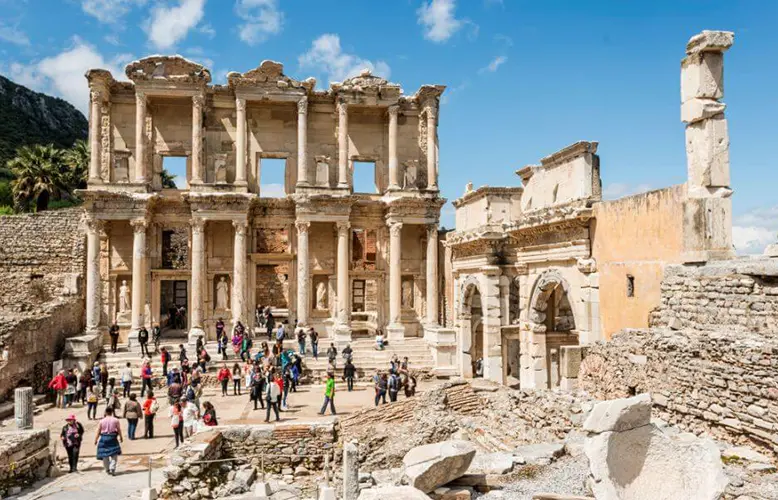
Exploring Turkey’s Diverse Landscapes and Climate Zones
Turkey’s geography is as varied as its history, with each region offering a distinct climate and terrain. The Black Sea region boasts lush greenery and a mild climate, while the central Anatolian plateau challenges visitors with its steppe climate and hot summers. Understanding these variations is crucial for planning your travel wardrobe and activities.
Journey Through Time: Turkey’s Rich Tapestry of History
The Hittites, Byzantines, Ottomans, and many others have left their indelible marks on Turkey. Each city is a living museum, with layers of history waiting to be discovered. From the ancient ruins of Ephesus to the iconic Hagia Sophia, Turkey’s historical sites are not just attractions; they are portals to the past.
The Melting Pot of Cultures: Understanding Turkey’s Social Fabric
Turkish culture is a vibrant tapestry woven from the many civilizations that have thrived here. This section delves into the customs, traditions, and daily life that create the country’s unique cultural identity. Learn about the importance of hospitality, the nuances of Turkish tea culture, and the significance of family in Turkish society.
Essential Pre-Travel Tips for a Hassle-Free Turkish Adventure
Before you embark on your Turkish journey, there are practicalities to consider. This section covers everything from packing essentials to cultural dos and don’ts, ensuring you are fully prepared for your adventure.
Navigating Visa Policies for a Smooth Entry into Turkey
Understanding Turkey’s visa requirements is essential for a smooth travel experience. This section provides up-to-date information on visa processes, fees, and exemptions, helping you to plan your entry into Turkey with confidence.
Prioritizing Health and Safety While Traveling in Turkey
Your well-being is paramount when traveling. Here, we discuss health precautions, insurance, and safety tips for various Turkish locales, so you can enjoy your trip with peace of mind.
Bridging the Language Gap: Communicating in Turkey
While Turkish is the official language, this guide offers practical advice on overcoming language barriers, from useful phrases to language apps, ensuring clear communication throughout your travels.
Managing Your Liras: A Guide to Turkish Currency and Budgeting
Budgeting for your trip is made easier with insights into the Turkish Lira, cost of living, and tips for keeping your finances in check while enjoying all that Turkey has to offer.
Mastering Movement: Turkey’s Transportation Network
Navigate Turkey’s extensive transportation network with ease, from domestic flights to intercity buses and ferries, ensuring you can traverse the country’s vast landscapes efficiently.
From Ottoman Mansions to Boutique Hotels: Finding Your Perfect Stay in Turkey
Turkey’s accommodation options are as diverse as its regions. Whether you’re looking for luxury, comfort, or a touch of history, this section helps you find the perfect place to rest your head.
A Culinary Odyssey: Sampling Turkey’s Gastronomic Delights
Turkish cuisine is a feast for the senses. Explore the country’s culinary offerings, from street food to fine dining, and learn about the dishes that must not be missed.
The Art of Bargaining: Shopping for Authentic Turkish Souvenirs
Shopping in Turkey is an experience in itself. Discover the best markets and shops for authentic souvenirs and learn the art of bargaining to get the best deals.
Celebrating with the Locals: Turkey’s Festivals and Events Calendar
Turkey’s calendar is packed with festivals and events that offer a glimpse into its cultural heart. This section guides you through the most significant and vibrant celebrations across the country.
Embracing the Great Outdoors: Turkey’s Natural Wonders
From hiking in the Kaçkar Mountains to hot air ballooning in Cappadocia, Turkey’s natural attractions are a playground for the adventurous. Learn about the best outdoor activities and how to experience them responsibly.
Sun, Sea, and Sand: Turkey’s Best Beaches and Coastal Retreats
Turkey’s coastline is dotted with stunning beaches and seaside towns. This section highlights the best spots for sunbathing, swimming, and water sports.
After Dark: Experiencing Turkey’s Vibrant Nightlife Scene
As the sun sets, Turkey’s cities come alive with a vibrant nightlife. From rooftop bars in Istanbul to beach parties in Bodrum, discover the best spots for an unforgettable night out.
Hidden Gems: Exploring Turkey’s Lesser-Known Locales
Go beyond the tourist trail with recommendations for off-the-beaten-path destinations that offer unique experiences and breathtaking beauty.
Creating Memories: A Guide to Family-Friendly Travel in Turkey
Traveling with family? This section provides tips for making your trip enjoyable for all ages, with suggestions for family-friendly attractions and activities.
Love in the Land of the Crescent Moon: Romantic Escapes in Turkey
For those seeking a romantic getaway, Turkey offers enchanting experiences, from sunset cruises to intimate cave hotels. Discover the most romantic destinations and activities.
Tailored Journeys: Crafting Your Ideal Turkey Travel Itinerary
Whether you have a week or a month, this section helps you create an itinerary that suits your interests, time frame, and budget, ensuring you make the most of your time in Turkey.
Respect and Understanding: Navigating Turkey’s Laws and Social Etiquette
Understanding local laws and etiquette is essential for a respectful and enjoyable visit. This section covers the essentials of Turkish customs and legalities.
Staying Connected: Tech Tips for Travelers in Turkey
Stay connected with tips on SIM cards, internet access, and navigating technology in Turkey, ensuring you can share your experiences with friends and family back home.
Traveling Responsibly: Embracing Sustainable Practices in Turkey
Sustainable travel is more important than ever. Learn how to minimize your footprint and contribute positively to the communities you visit in Turkey.
Heading Home: A Smooth Departure from Turkey
As your journey comes to an end, this section offers advice for a hassle-free departure, from airport transfers to duty-free shopping.
Frequently Asked Questions: Turkey Travel Guide
This section addresses common queries travelers have about visiting Turkey, providing clear, concise answers to help with trip planning.
Reflecting on Your Turkish Odyssey: The Journey Continues
As you reflect on your travels through Turkey, this conclusion offers a moment to consider the lasting impact of your experiences and the memories you’ll carry with you.
RELATED ARTICLES MORE FROM AUTHOR
Vacations on the French Riviera: 10 excellent reasons to go there
Palazzo di Varignana’s All-New Villas Offer the Ultimate in Italian Luxury
Introducing Don Totu Dimora Storica, Puglia
Privacy overview.
How to Have an Unforgettable Time Snorkeling in Maui

A Complete Turkey Travel Guide: 20 Things to Know Before You Go to Turkiye
Turkey, now known as Turkiye, is a superb country for your next trip. It is modern and diverse! It is especially known for its beautiful beaches, mind-blowing history, stunning architecture (Greco-Roman and Ottoman), incredible landscapes, pretty towns, and hospitable people. This Turkey travel guide will take you through everything you need to know before your visit so you can plan your Turkiye trip better!
1. Know the country
OFFICIAL NAME : Republic of Turkiye CAPITAL : Ankara (no, it is not Istanbul) LOCATION: It is a transcontinental country located mainly in Asia and partly in Europe OFFICIAL LANGUAGE : Turkish – script is in the Latin alphabet like English. RELIGION : Turkey is a secular state with no official religion. However, the majority practise Islam.
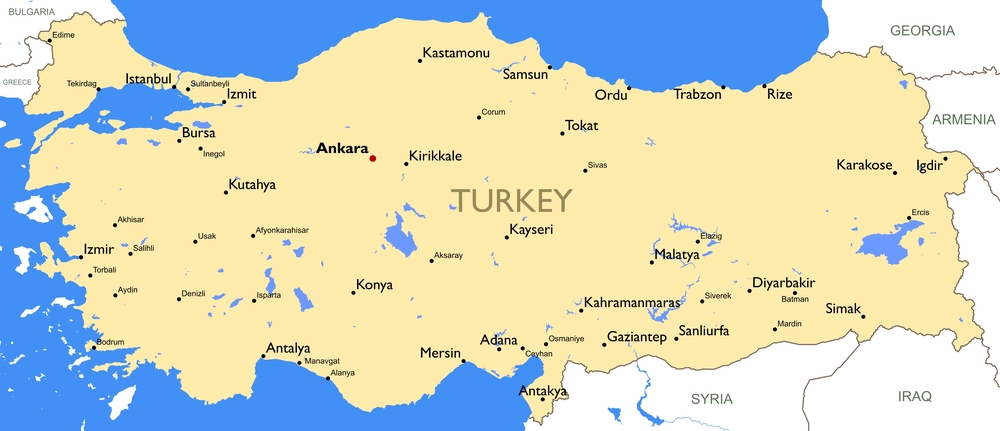
2. The Best months to Visit Turkey
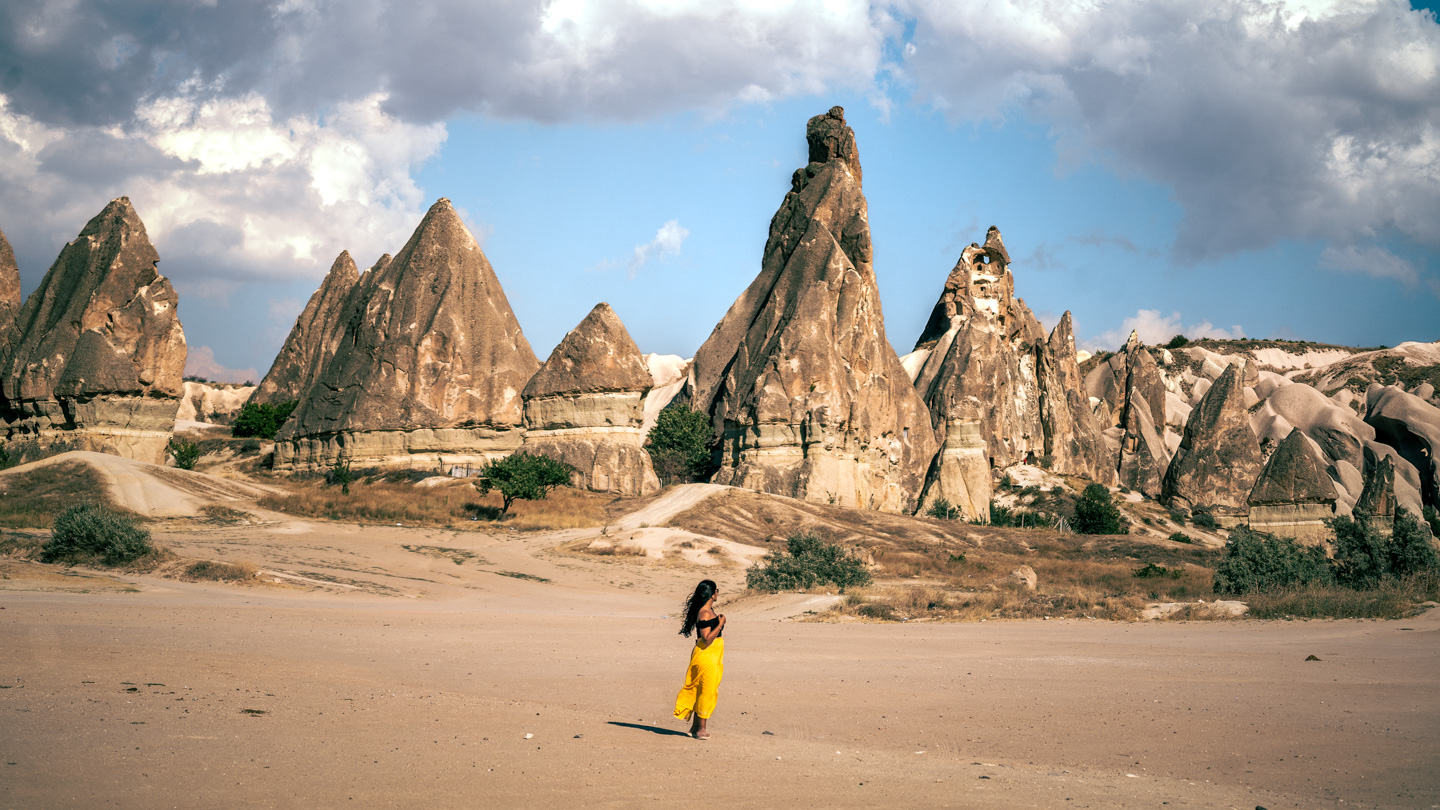
December – March: During this time, it is quite cold in the country, with the exception of southeast Turkey (Antalya and surrounds). Most hotels and restaurants in a lot of beach towns will be closed. Snow is not uncommon, especially in Cappadocia and Konya. While snow creates a fantastic landscape in Cappadocia, hot air balloon flights are cancelled more often. That said, there will be less crowds at tourist sites, making it a fantastic time to visit places like Istanbul – as long as you can deal with a bit of rain and snow. Your Turkey trip will be the cheapest during this time!
June-August: The summer months are very hot, with temperatures going above 30°C. This is perfect for lounging by the sea or a pool but sightseeing can be unbearable. We went in August and experienced this firsthand—we must’ve had a million lemonades to stay cool. Even though it’s so hot, there are a lot of visitors because Europeans come in droves during the summer months. Hence, this season is categorised as peak season and prices soar! If you do visit during this time, try to stay indoors during the afternoon.
March to May and September-Novembe r: Though this entire period is generally pleasant, I’d say April and late October are the best times to visit because it’s the perfect balance between weather and crowd.
3. How many days are enough for a Turkiye trip?
You should go on at least a 10-day trip to Turkey – the more, the better, because there is so much to see. A lot of people visit for 2-3 weeks and still don’t get bored. But since that is not possible for most, 7 days is the minimum we would suggest.
4. PLACES TO VISIT IN TURKEY
Turkey has a lot of fantastic destinations, however, we will just cover a few of the most popular places to visit here.
1. I stanbul – city life, history, culture, shopping, food
Istanbul is a bustling city lying on two continents ( Asia and Europe) where the old and new exist beautifully side by side. Since, Istanbul is such a historic city that was the capital of two dynasties —the Eastern Roman Empire and the Ottoman – there are a lot of things to see and do, like mosques, palaces, museums, cruises, Hamam Spa, nightlife, and shopping. You could easily spend a week or more here but we’d recommend a minimum of 2–3 days . Closest Airports: Sabiha Gökçen International Airport (Asian Side) and Istanbul International Airport (European side) Hotel Options: Mest Hotel Istanbul (great view), Romance Hotel (well-rated mid-range hotel), Hostel Le Banc (hostel in Beyoglu)
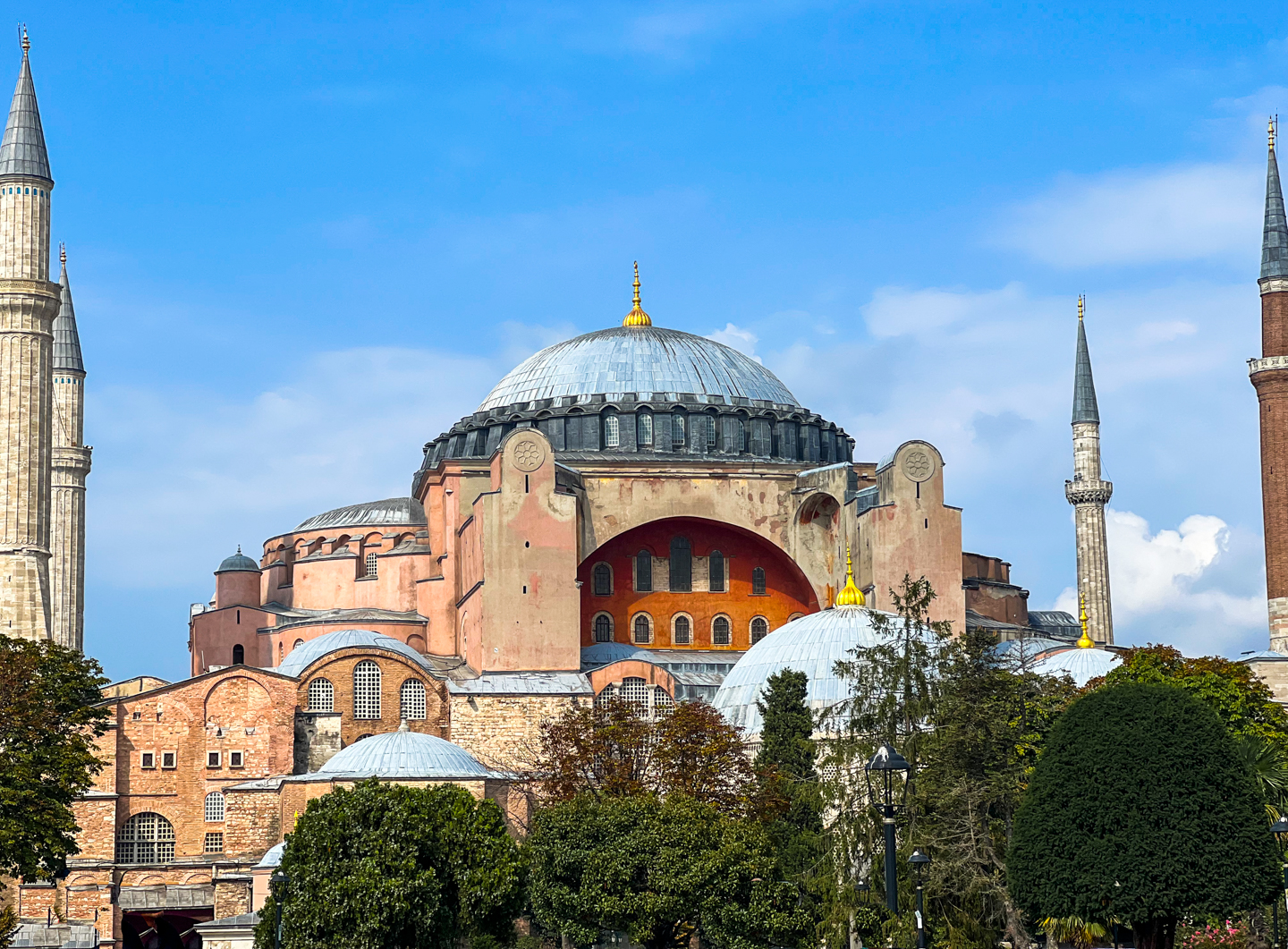
2. Cappadocia – landscapes, cave stay, hot air balloons
Cappadocia is home to a surreal landscape made of volcanic stone and cave hotels. However, hot air balloon rides are the most popular thing to do. You’ll need at least 2-3 mornings in Cappadocia if you wish to ride on a hot air balloon. For more info, read the complete list of tips for a dreamy hot air balloon ride in Cappadocia .
Closest Airpots: Kayseri Airport and Nevşehir Kapadokya Airport
Hotel Options: Arinna Cappadocia (luxury), Local Cave Hotel (mid-range), The Dorm Cave By Travellers (hostel)
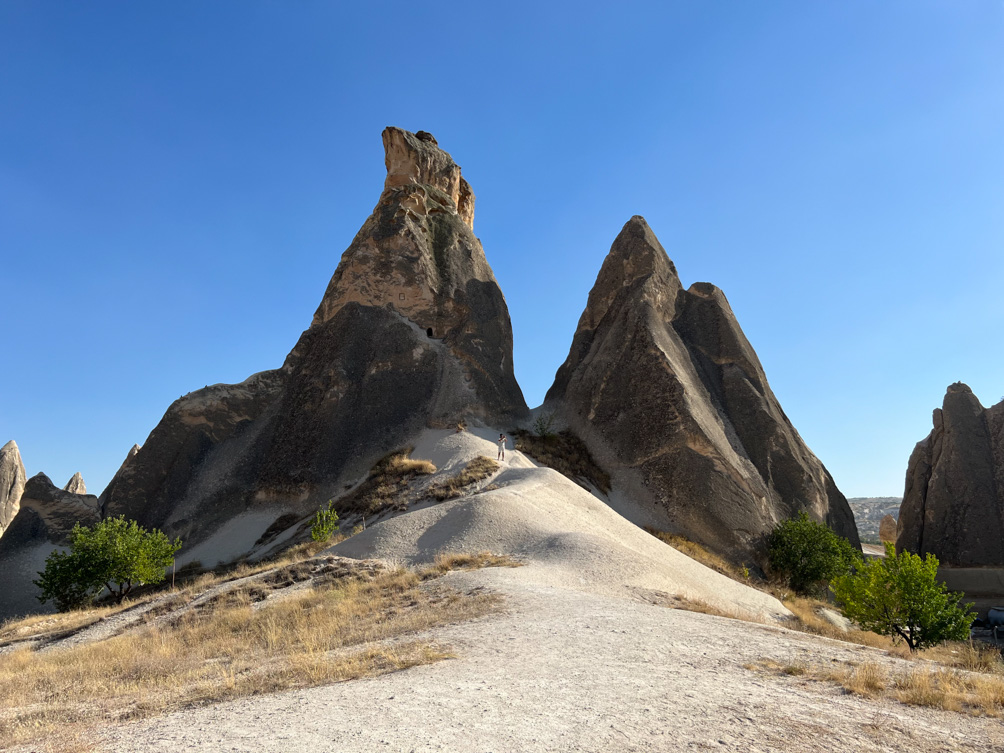
3. P amukkale- white terraced travertines
Pammukale is a small town mainly known and visited for its white terraced travertine spa located beside the ancient city of Hierapolis. This city has a museum and a beautiful Roman theatre – not to be missed.
Closest Aiport: Dalaman Airport and İzmir Adnan Menderes Airport
Hotel Options: Hotel Sahin (superb view), Venus Hotel (mid-range), Melrose Viewpoint Hotel (budget)
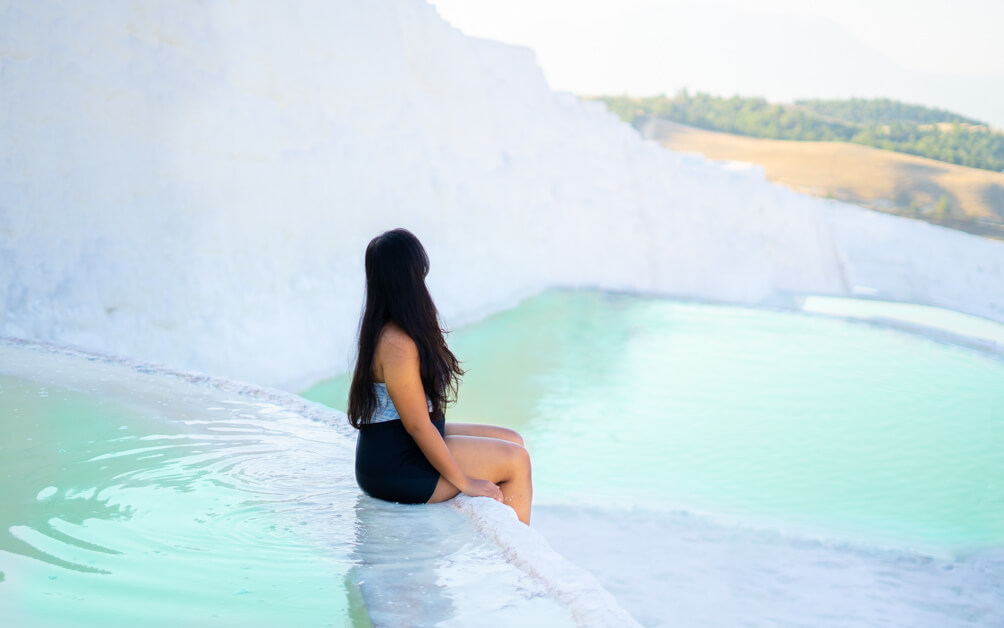
4. Selcuk (for Ephesus) – third largest Roman library
Ephesus is again an ancient Greco-Roman city. It has one of the finest examples of a Roman Library which was the third largest in the world in its day. Nearby, is also the site of one of the ancient wonders of the world – The Temple of Artemis .
These sites are all best visited by staying in the small town of Selcuk for one night.
Closest Airport : İzmir Adnan Menderes Airport
Hotel Options: Livia Hotel Ephesus (Adults Only) (semi-luxury), Celsus Boutique Hote l (mid-range), Hotel Urkmez (budget)
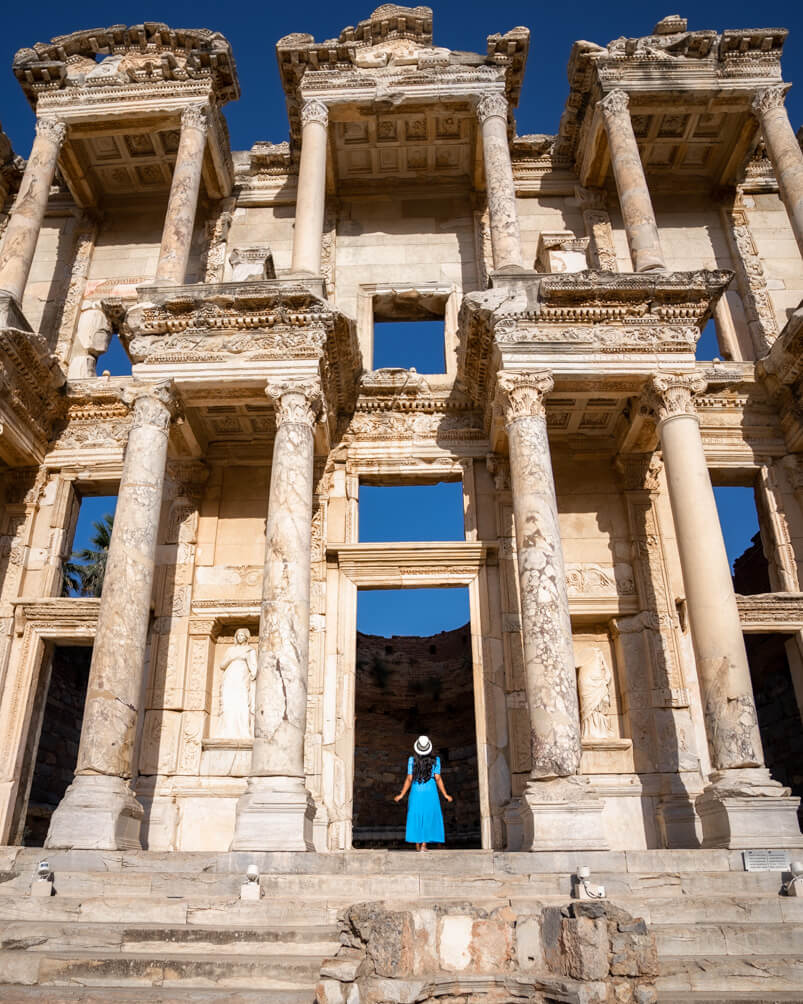
5. ALACATI – a cute beachside town with nightlife
Pronounced Aalaa-cha-tuh, the town was established by Greek workers and hence has all the Greek vibes with a Turkish Charm – think Greek stone houses, traditional and modern windmills, cobbled streets flanked by pink bougainvillaea. The town comes to life at night with its many superb bars and restaurants.
Closest Airport: İzmir Adnan Menderes Airport
Hotel Options: Biblos Resort Alaçatı (luxury), Sakin Ev (mid-range), Rebetiko Hotel (budget)
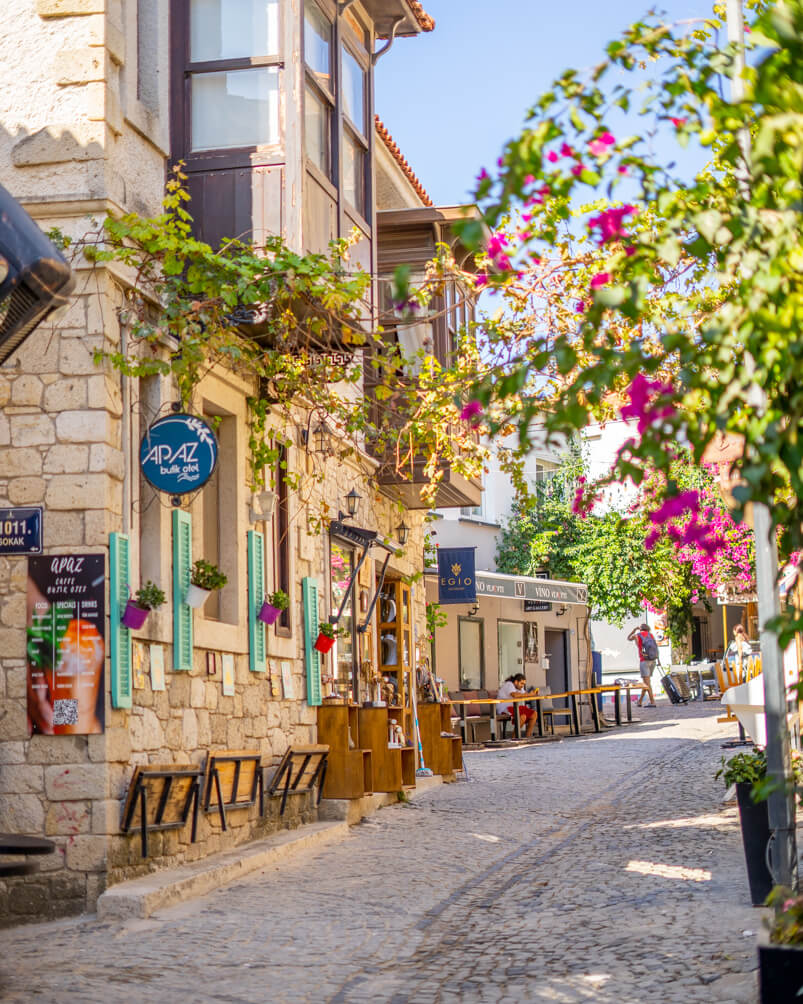
6. ANTALYA – beaches and history
Antalya is the largest city in southern Turkey and is known for its turquoise coast, ancient ruins and a waterfall by the sea. It is a hotspot for tourists – probably the most visited place after Istanbul and Cappadocia.
Closest Airport: Antalya Airport
Hotel Options: Casa Sur Antalya , Perge Hotels , White Garden Hotel
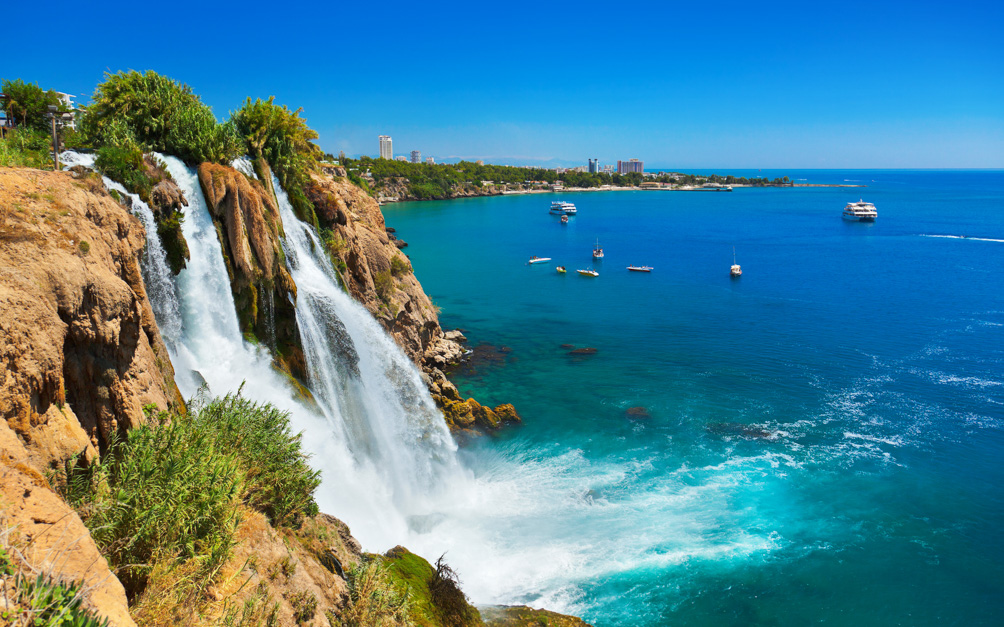
7. FETHIYE & OLUDENIZ: beaches and paragliding
Located about 4 hours south of Izmir and 3 hours west of Antalya, Fethiye is on the Turkish coast. Fethiye is surrounded by heritage sites, pristine beaches with azure waters and towering green hills. It’s also the start of the Lycian Way, a 540-kilometre hiking trail (you obviously don’t need to do the whole thing). Not only that, Oludeniz is considered to be one of the best places to paraglide in the world—the views are epic!
Closest Airport: Dalaman Airport
Hotel Options: Yacht Boheme Hotel , Sovalye Hotel , Heaven Bungalow Fethiye
If you have a car or are looking for a staycation, then these hotels in Faralya (near Fethiye) are superb: Perdue Hotel and Nautical Hotel
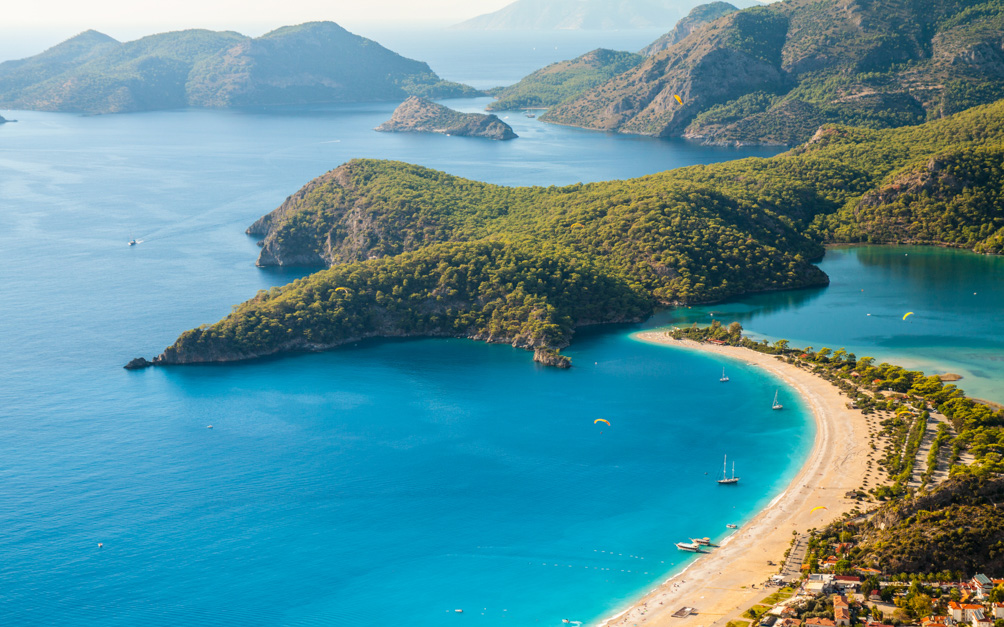
8. KAS- cute town, beaches, history
Kas is a charming seaside town between Antalya and Fethiye. It is a lot like Alacati, but with a lot more things to do. This was the town we really wanted to go to instead of Alacati but we need an extra day to make that possible without rushing it. Read more about Kas here.
Closest Airport: Antalya Airport and Dalaman Airport
Hotel Options: Hotel and Villa Kale Suites , Golden Rose Otelcilik , Payam Hotel
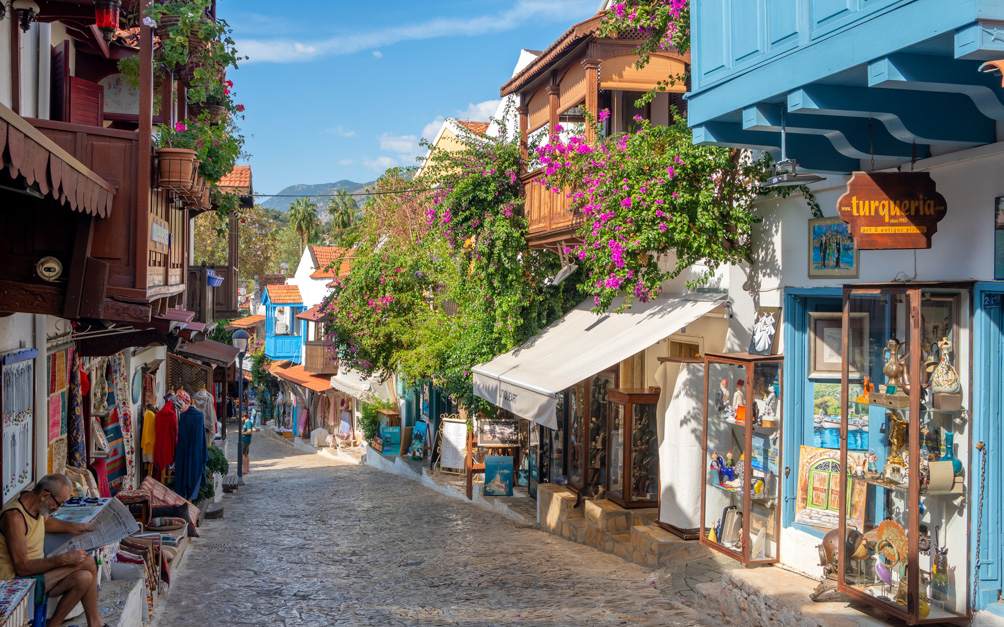
5. Turkiye Trip Itinerary
This is the itinerary we followed based on the flights we were getting at the time:
Best of Turkey – 10 days: Istanbul (2.5 days), Cappadocia (3 days), Alacati (2 days), Pamukkale and surrounds (1.5 days), Selcuk/Ephesus (1 day)
Read our detailed 10-day Turkey Itinerary
Your itinerary would depend on your interests but here are a few options you can use as a starting point:
Turkey 7 days itinerary: Istanbul (2 days), Cappadocia (2.5 days), Choose one amongst any other place – Antalya / Kas / Fethiye and Oludeniz / Pammukale and Ephesus / Alacati
Alternate 10 days itinerary for Turkiye: Istanbul (3 days), Cappadocia (2 days), Antalya/Kas/Fethiye (3 days), Pamukkale and Ephesus (1 day)
Turkey 14 days itinerary: Istanbul (3 days), Cappadocia (3 days), Road trip starting from Cappadocia, visiting Antalya (2 days), Kas (2 days), Oludeniz & Fethiye (2 days) heading over to Pamukkale (1 day) and Ephesus (1 day). End your road trip in Izmir. We would have lovvveed to follow this itinerary!
View this post on Instagram A post shared by Modi & Trisha – Travel Couple (@trywanderingmore)
6. Turkiye tourist Visa
Before you plan a Turkiye trip, make sure you know what type of visa you’ll need. There are two types of visas – a sticker visa and an e-visa . The visa type you choose will depend on your purpose of visit, nationality and the documents you have. Check the general visa requirements of all countries here .
E-visa is a single-entry visa and is available for passport holders of 60 countries provided that you meet the required criteria which you can see once you start applying for the e-visa. You can apply for your e-visa any time before your travel because you get the e-visa in 10 minutes. We advice to apply at least a week prior in case of any unfortunate circumstances. The e-visa fee varies per your country and type of travel document.
For Indians
If you’re an Indian passport holder with a valid Schengen, USA, UK, Ireland visa or residence permit, then you can get an e-Visa which is valid for one month (in a 180-day period) via the website www.evisa.gov.tr , provided that you meet these conditions:
- The passport covers the period of stay in Turkey
- You can prove that you hold a return ticket, hotel reservation and at least $50 per day of stay.
- You are travelling for the purposes of tourism.
- You have a valid Supporting Document (Valid visa OR valid residence permit from one of the Schengen Countries, USA, UK or Ireland). E-visas are not accepted as supporting documents.
We have a US tourist visa so we applied for the e-visa through this link . The whole process took 5 minutes and we got the e-visa immediately after paying 43 USD (exactly INR 3522 was charged).
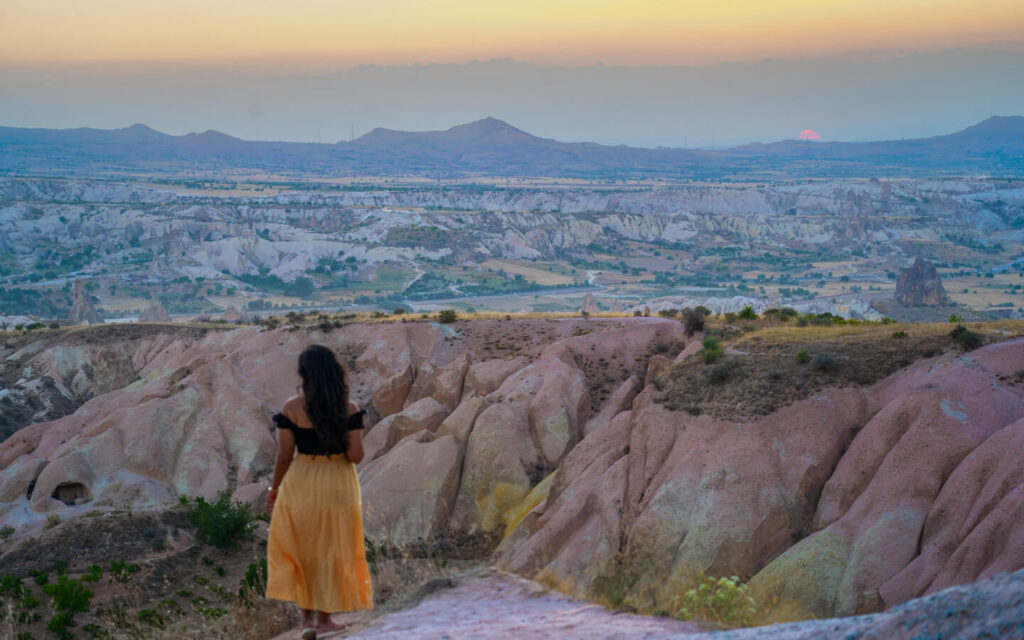
Sticker Visa
If you are not eligible for an e-visa, you will have to go through the sticker visa process, which takes more time and money . But the good part is that you can apply 6 months before your trip . It is suggested that you apply as early as possible. The maximum stay duration through a sticker visa is up to 90 days in a 180-day period and is available for single, double, or multiple entries .
A sticker visa, as the name suggests, is pasted on your passport. Therefore, you will be required to send your passport to the Turkish embassy. You need to get an appointment and visit the embassy to drop off and collect your passport. Please check this website to understand if you can fill out the pre-visa application directly or need to apply via an agency.
Indian passport holders cannot fill out the pre-visa application directly and have to go through an authorised agency, which is Gateway Globe . You have to fill out the application and undertaking forms, collect the listed documents and photos, book an appointment directly from their website , pay the visa fee, submit the form, and collect the visa.
A single-entry visa fee is about INR 4500, and a multiple-entry visa fee is INR 14,400 . In addition, a service charge of INR 4,200 is payable over and above the visa fees.
If you have any questions, you can contact Gateway Global directly .
7. Is Turkey safe for travel?
All the places we have listed above are tourist hubs and safe to travel to. People are so nice and helpful and we never felt unsafe at any point in time. The country is also considered safe for solo travellers!
Border areas in general can be unsafe in many countries, but don’t worry; you’ll probably not venture anywhere near it.
Other minor thefts and general security concerns are present in all countries. You can’t predict these things. Just stay vigilant, no matter where you travel.
8. How to get around Turkey
Turkey is very well connected by flights, trains, and buses, and also has plenty rental car companies.

Flight: The easiest and most convenient way to get around is by flight. Nearly 50 cities in Turkey have active domestic or international airports but flights may not be direct for all routes and will go via Ankara or Istanbul. Domestic carriers include Pegasus and Turkish Airlines. Flights are relatively cheap, especially during the off-season. You can get them for as low as INR 2000! Search for international and domestic flights
Bus: Bus travel is one of the most popular ways to travel around Turkiye, as it is cheap and you can get to just about any corner of the country. Every city has its own intercity bus terminal with numerous companies. That being said, bus journeys can be long and night buses are not known to be very comfortable. To book a bus, you can go to the bus terminal on the day you want to travel, buy a ticket, and board the next bus. Or else pre-book below! Search for busses
Train: Train travel is generally limited and slow in Turkey and is not recommended, though options are improving gradually. However, high-speed trains between Istanbul, Ankara, Konya and Eskisehir are great options! Search for trains
Car: Turkey is a superb country for a road trip outside of the main cities. There are plenty of car hire services, the roads are fantastic, people generally follow traffic rules, and the views are something to behold. Plus, it gets super easy to skip the crowded tours and have the freedom to explore small towns the way you wish. The best part is that you can get a car on your home driving licence if it is in English and there is a photo of you on it – no International Driving Permit is needed in such a case. Search for rental cars
9. How to get around the cities
Tram and Metro: Turkey’s larger cities, like Istanbul, Izmir, Ankara, Bursa, Antalya, Konya, and Gaziantep– all have some kind of metro or tram system. We used the tram extensively in Istanbul; it was fast, easy to use, and helped avoid traffic.
Cab : You can hire a metered cab off the road or use Uber (available in Istanbul, Izmir, and Ankara) or Bitaksi (available in Istanbul, Ankara, İzmir, Kocaeli, Bursa, Antalya, Muğla, Adana, Mersin, Samsun,and Kayseri) in major cities. Download these apps beforehand.
Ferry: In general, ferries are limited in Turkey. There are many routes in and around Istanbul serving the Marmara region and some routes extend to Bursa, Izmir, and Canakkale.
Bus/Dolmus: Big cities are well connected by bus and smaller cities are generally well-served by dolmuş (minibus), thougha a lack of signage can make this a tricky way to get around.
While big cities have fantastic public transport, small towns do not. You can take the Dolmus and buses in most towns but they’ll be limited. Honestly, I’d say that the best way to get around small towns would be by a rental car.
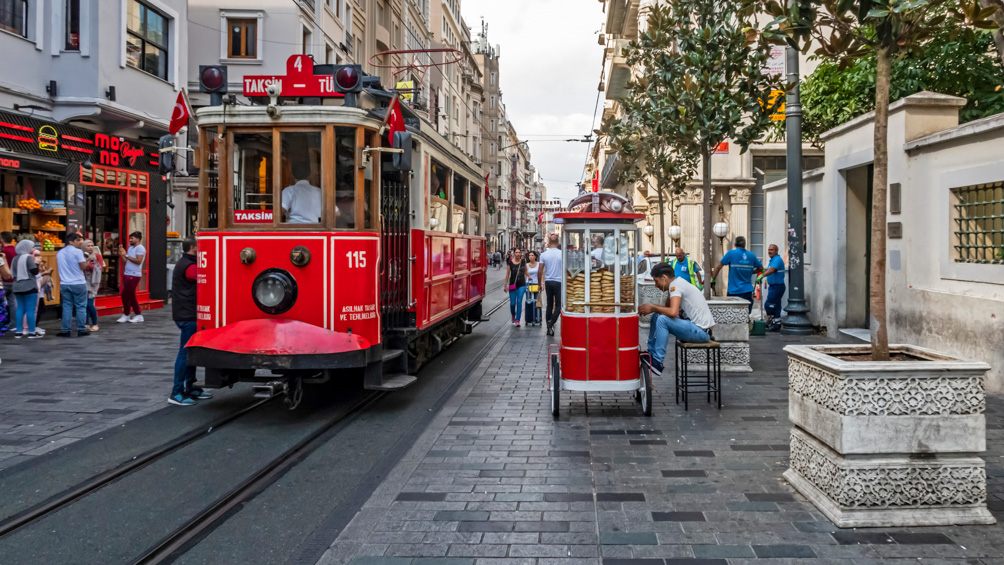
10. Renting a Car in Turkey
It is fairly easy to rent a car in Turkey. Here are two options:
- Pre-book it online: Try Discover Cars an d Rental Cars . We used Avec to book our rental car in Izmir.
- Pre-book it through your hotel: We booked our hotels in Turkey via Booking.com which has the facility to chat with the hotel. So for Cappadocia, we just messaged our hotel about rental cars and they provided us with the best offer we were getting at the time.
Here are some things to know before renting a car in Turkiye.
- All foreign driving licences are valid as long as they have a photo and are written in the Latin alphabet . You do not need an International Driving Permit in such a case.
- If your car pick up and drop-off locations are different , you will incur a surcharge . So consider this while making your itinerary.
- You will need a credit card to hire a car, as there is usually a deposit amount put on hold on your card. Or it is directly deducted and later refunded.
- Unlike India, traffic is on the right side of the road and the steering is on the left of the car. This will take a day or two to get used to.
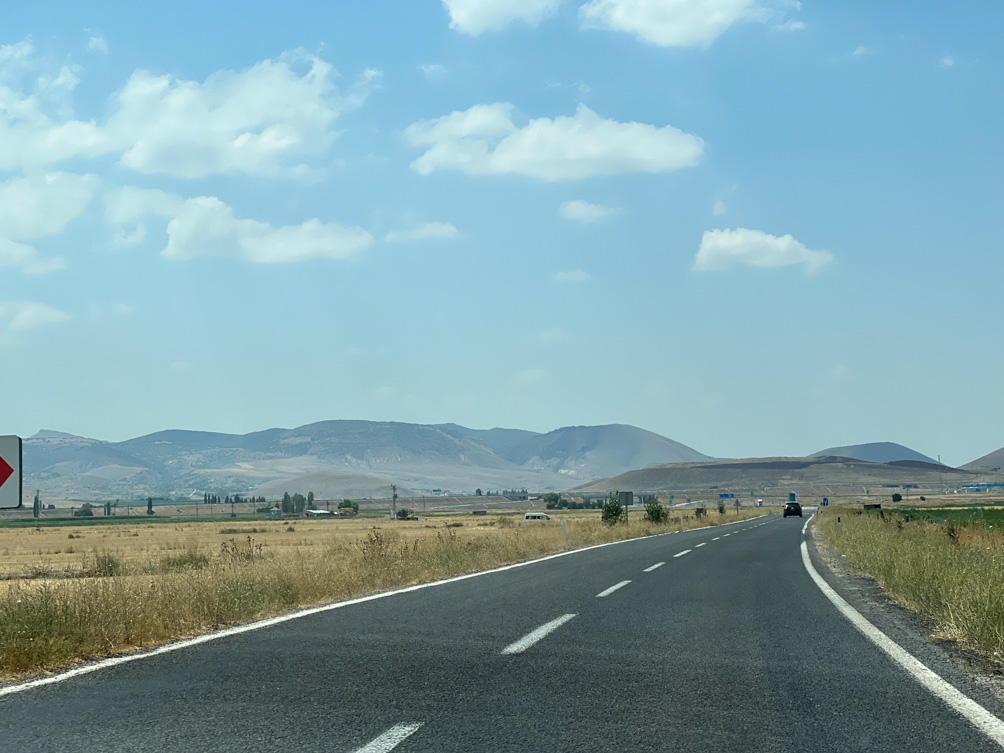
- You should be very confident about driving on slopes . The slopes in Cappadocia (Goreme mainly) had us going mental despite us being very comfortable driving on them.
- Car companies usually only let you hire a car if you’re at least 21 years old and have held your licence for 1 year.
- If you’re between the ages of 21-25 you may have to incur a surcharge .
- Seat belts are mandatory and the use of a mobile phone while driving is prohibited , with the exception of a hands-free system.
- You will always need to have your driver’s licence, registration documents, and insurance documents . The latter two are usually in the glove box.
- Tolls in Turkey are quite few; we didn’t pay any tolls. However, ask your car rental company about the HGS toll system tag beforehand, as having this will automate the toll payment process much like FASTag in India. This could be prepaid or postpaid.
- 0.05% is the maximum alcohol limit permitted, which only applies if you are driving alone. So do not drink and drive at all!
11. What Currency to Carry
The currency is the Turkish Lira, denoted as TL or TRY and the exchange rate is 1 TL = 4.39 INR. See the current exchange rate .
A lot of tours accept Euros as well, especially in Cappadocia. You can pay by card in most places but you will definitely also need cash for public transport, street vendors, etc. It is best to keep Euros or USD and get it changed in Istanbul for Turkish Liras.
A lot of hotels and shops provide a 9–10% discount if you pay in cash . This is because the establishment will not have to pay a credit card fee to the bank. So, if you’re carrying cash, please ask if they will give a discount on cash payment.

You will not get the Turkish Lira easily in India. So you have two options:
- Carry euros and exchange them for liras in Istanbul.
- Carry a forex card and withdraw money through ATMs in Turkey.
We carried the Go Niyo Global Card which is a multi-forex card. We just had to load it with Indian Rupees and could withdraw in the local currency in 150+ countries with zero forex markup so it was perfect for Turkey. We paid with the card wherever possible and at other times we withdrew the maximum limit of TL 2000. Note that each time you withdraw from the ATM, Go Niyo charges you INR 118. Despite that, we found this option to be very very convenient.
Tip: Withdraw money from Ziraat ATMs , as they were the only ATMs that didn’t charge us an extra withdrawal fee!
12. Get a local Sim
The wifi in Turkey can be dodgy. It is best to get a local sim to make things more convenient for you. You can buy a sim in the cities or at the airport.
The following networks are available in Turkey:
Türk Telekom.
Compare prices and see what suits you best. We got Turkcell because it has the best reputation for 4G coverage.
13. Turkey Travel Budget
The cost of a trip to Turkey compared to any other country depends on a lot of factors, including:
- Season of travel: Peak season is more expensive than low season.
- How early you booked the trip (especially for travel during season time): Earlier can be cheaper
- Your style of travel: Taking public transport and eating local food would save you a lot of cash
- The destinations you visit: Some destinations, like Cappadocia and Alacati are expensive
- The activities you do: Activties like hot air balloon rides and guided tours can be very expensive.
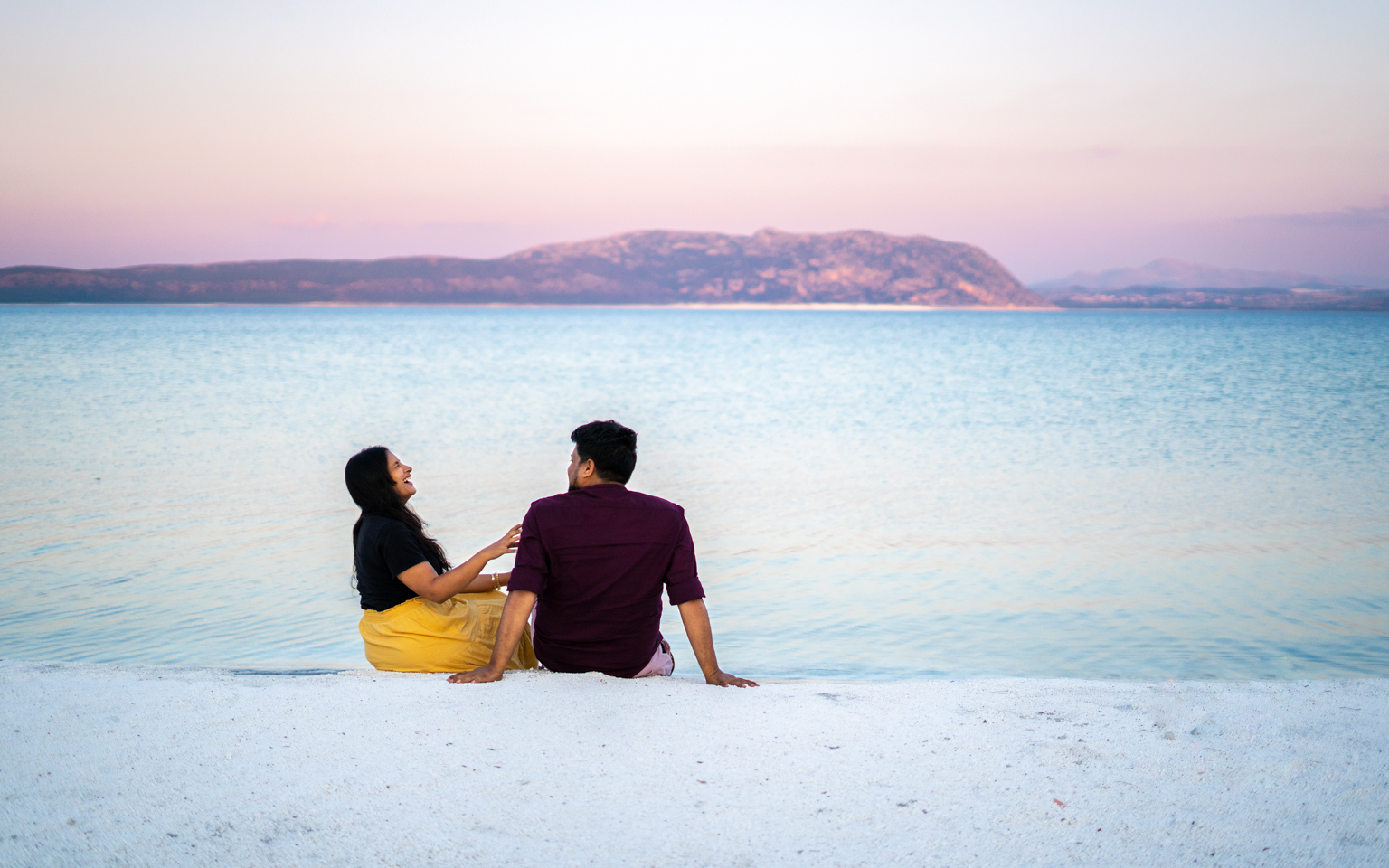
Mid-Range travel: We are mid-range travellers who like the convenience and are willing to spend on it but would still like the trip to not be very expensive. Our trip to turkey cost us about INR 2.9 lakhs for two people because we booked very late, travelled during season, and hired a car instead of taking buses. The exact breakup is given below. If we’d done the same trip in some other months instead of June–August) we could have probably done it in INR 2-2.25 L for two people .
Budget Travel: If you travel in the shoulder/low season, stay in budget hotels and hostels, don’t do a hot air balloon ride and take public transport You could do this trip for INR 70,000–80,000 per person, including flights.
Category-wise costs in high season for a 12-day trip (10 days + 2 days travel)
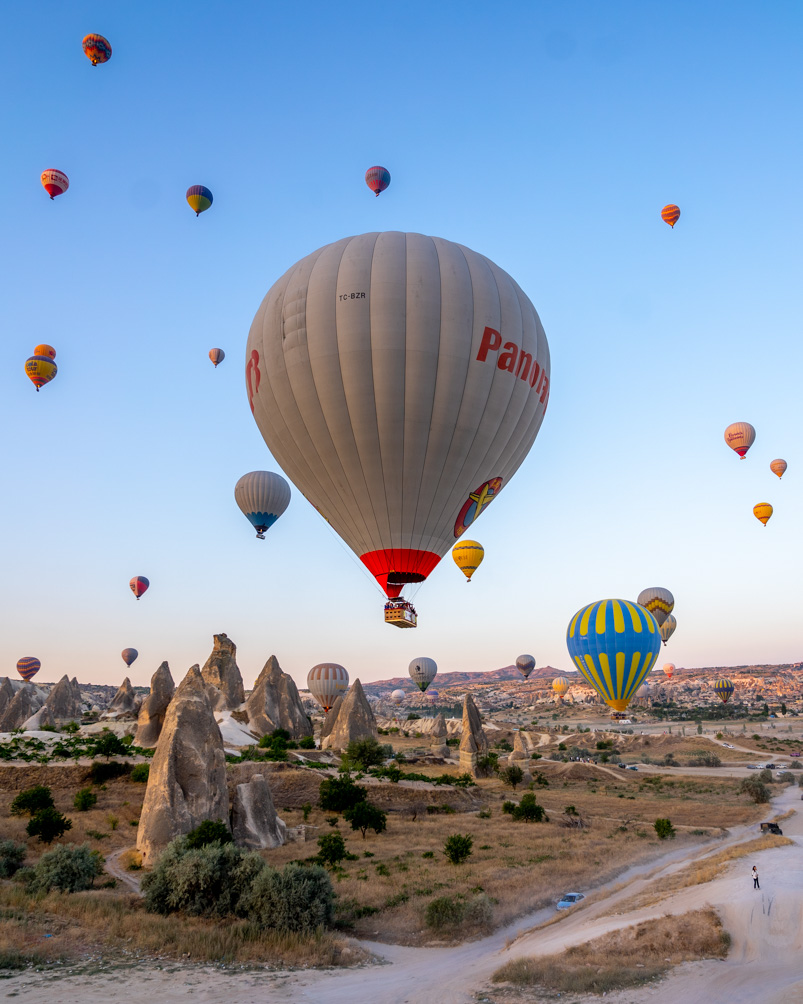
14. Tipping isn’t compulsory but always appreciated
Tips are generally low in Turkey. While tipping isn’t 100% necessary, it is always appreciated for good service.
In most cases, you cannot include the tip on a credit card charge so should be prepared to tip in cash directly to the person who has served you.
Cabs: Round up the fare. No tip is needed. Porters in hotels: Tip 5-15 Liras per person. Restaurants: 5% of the bill in small establishments and 10-15% of the bill in big ones. Tour guides: 10 and 15 Turkish Lira if you feel it’s deserved. Hamam: A tip of 10-15% of the bill is usually expected!
14. Food to try in Turkey
Turkish food has evolved over the centuries but is yet largely influenced by Ottoman cuisine (Eastern European, Central Asian, Middle Eastern)
- Turkish Breakfast : These consist of several small dishes including olives, different types of cheese, fresh bread, butter, jams and spreads, and black tea. You will be so full!
- Toast with White Cheese : A simple yet delicious toast with thick white cheese! Must-have.
- Menemen: Turkish version of scrambled eggs with tomato and peppers.
- Turkish Coffee: If you like strong coffee, you’ll love Turkish Coffee.
- Fresh Orange Juice and Lemonade: I am not kidding when I say, that these were much tastier than I’ve ever had before. They were naturally sweeter and less acidic – unlike the ones we have in India.
- Cay: Turkish black tea served in a Tulip Glass. This is had not only for breakfast but also after every meal and in between meals. It is truly the national drink of Turkiye.
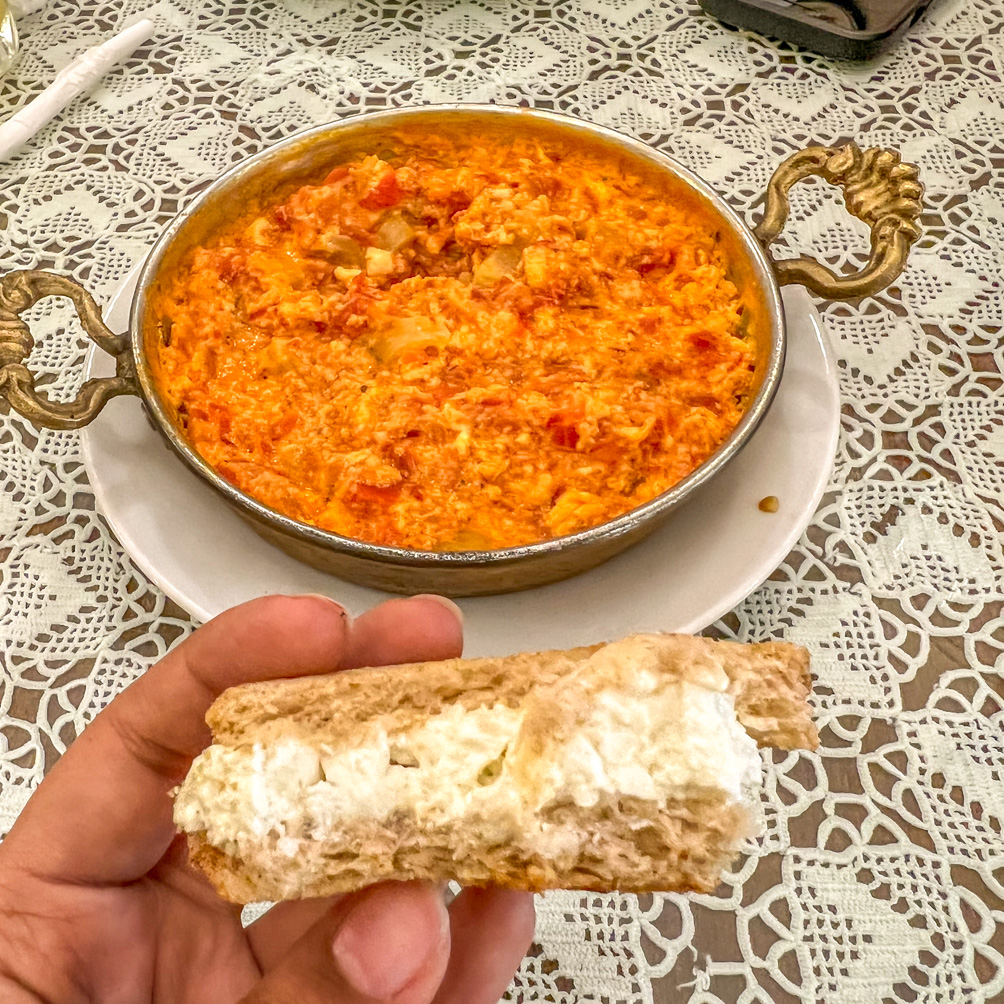

Lunch and Dinner
- Lentil Soup : A hearty thick soup made with red or orange lentils and spices.
- Pide : Pide is a boat-shaped Turkish Pizza made with a slightly thick dough and a wide range of fillings like meats, fresh vegetables, etc. Must-have!
- Mezze : The variety you get is insane and so delicious. Definitely try this in coastal areas.
- Gozleme : A Turkish paratha
- Manti : Turkish ravioli filled with ground meat or vegetables usually served with garlic yoghurt, spicy butter, and spicy tomato sauce.
- Borek : Borek is a flaky savoury pastry filled with things like potato, spinach, cheese, etc. We didn’t like it too much.
- Testi Kebab/ Pottery Kebab : Meat or vegetables cooked for hours in an earthen pot. Try this in Cappadocia!
- Lahmacun: Crispy flatbread spread with seasoned minced meat. We could not find a veg version of this.
- Doner: Pita bread spread with shaved meat cooked on a rotating spit, vegetables, and spices, folded like a sandwich.
- Sis Kebab : Skewered pieces of meat cooked on hot charcoal.
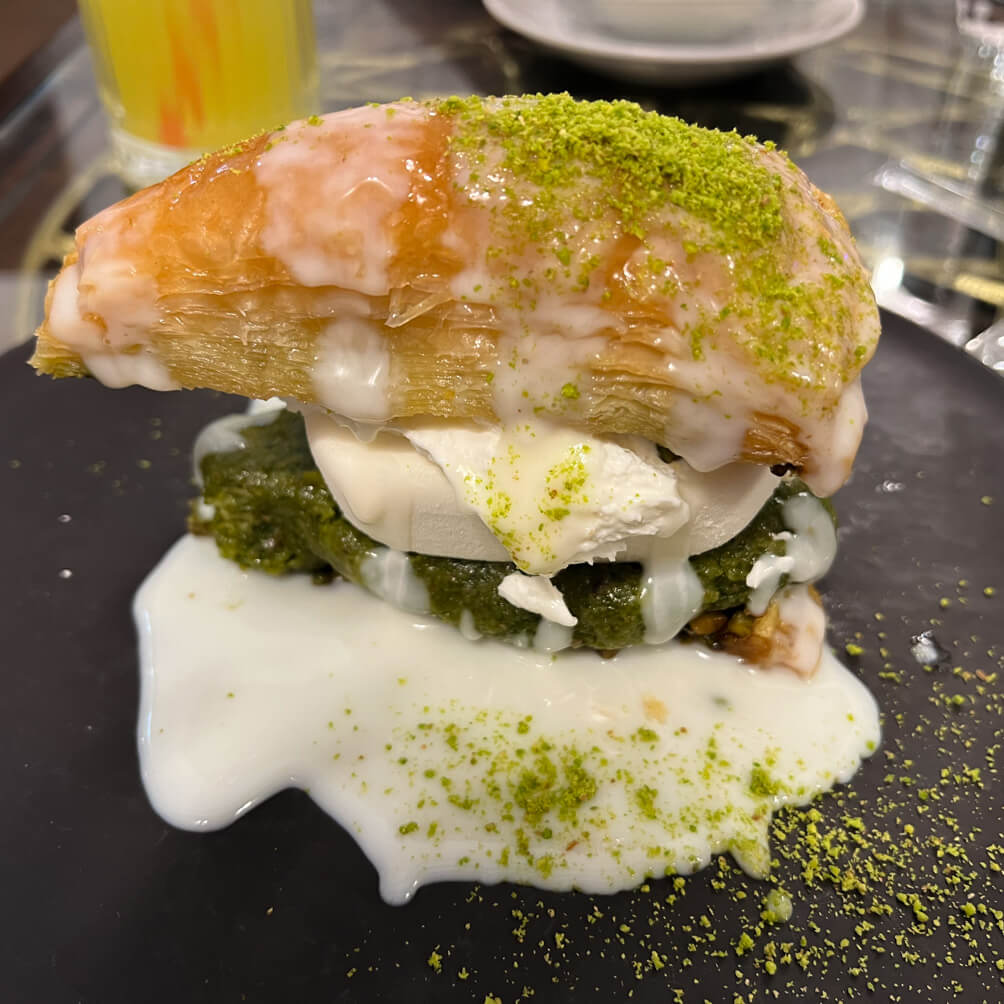
- Helve: Turkish Halwa. It is drier compared to what we make in India but equally tasty.
- Baklava : A rich syrupy pastry dessert traditionally filled with chopped nuts. Have this with fresh cream!
- Kunefe: Shredded pastry soaked in traditional syrup and layered with special cheese, nuts, or clotted cream.
If you’re a foodie and would like to learn about Turkish Cuisine from a local – go for this food tour .
If you’re a foodie who also loves to cook – go for this cooking class.
16. language barrier: most people don’t speak English
Most people in Turkey speak only Turkish. People in the tourism industry like hotel owners and guides will know English but the workers in these places may not. Keep the Google Translate App downloaded and also download the Turkish language for offline use. Learn to use the app beforehand!
Since Turkish is written in Latin Script like English, you will learn a lot of words throughout your time in Turkey. But till then, it would help to know some words in Turkish !
17. Do not discuss politics
Try not to discuss politics in a public place as the locals in Turkey often have strong political views and can get offended. Also, you must know that Turkish people dearly love and respect the first President of Turkey, Mustafa Kemal Ataturk, so can be sensitive when discussing him.
18. What to wear
Turkish cities are very modern and people do not really limit themselves in what they wear. Even in coastal areas, you can mostly wear what you wish. Women can wear strappy dresses and shorts if they’d like (we saw so many people wear these).
However, the population in small towns can be conservative – just like it is in India. On the days you’re visiting mosques, women should carry a scarf to cover the head and both men and women should wear clothes are cover both the shoulders and knees.
As a general rule, I either wore a strappy dress/top that was long enough to cover my knees or a half/full sleeve dress that left my knees bare.
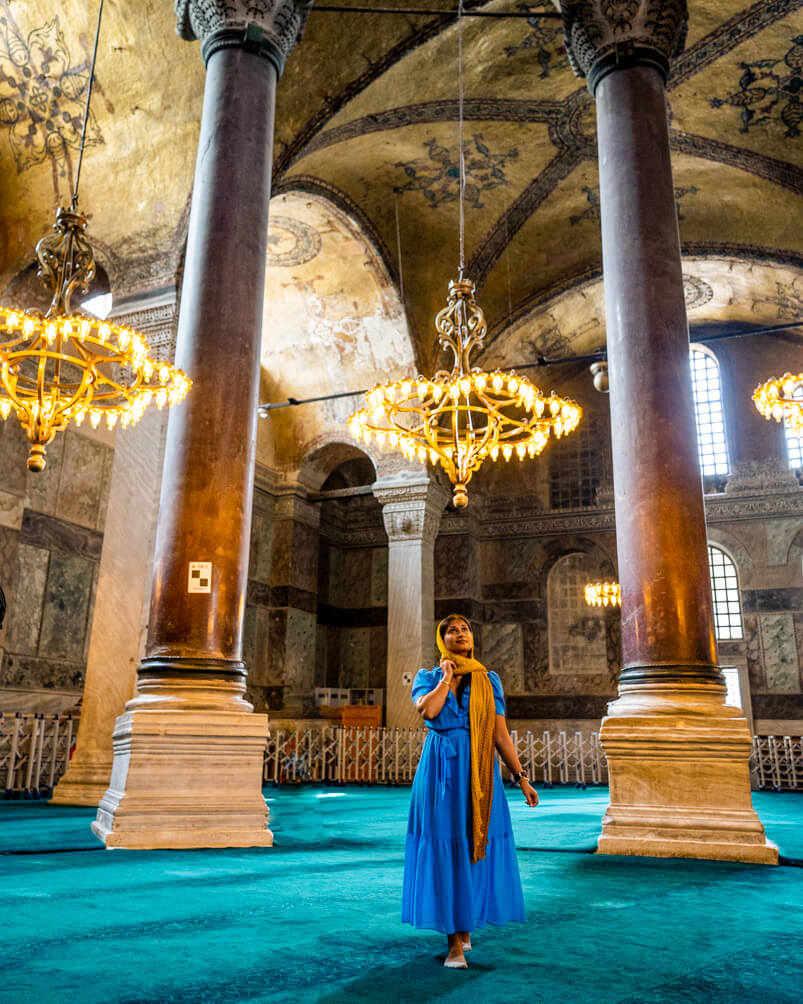
19. What to pack when travelling to turkey
1. International Travel Adaptor : There are two plug types used in Turkiye – Type C and F – and operate on a 230V supply voltage and 50Hz. Best to have an international travel adaptor .
2. Swimsuit : For the many beaches and pools.
3. Scarf : To cover your head in religious places.
4. Hat : If you’re travelling in the summer, you will definitely need one. I didn’t understand the intensity of the Turkish sun till I spent a few days there without a hat!
5. Sunglasses: Same as the hat, you simply can’t go without this.
6. Sunscreen: Best to buy a reef-safe skin-safe sunscreen!
7. Sweater/jacket: If you’re travelling in the summer and going to Cappadocia for a hot air balloon ride or to chase them in the valleys, you will need a light jacket because Cappadocia is very cold in the mornings. For winter, carry at least two layers (jacket and sweater) because it gets very cold in Turkey.
8. Comfortable shoes: You will be walking a lot. There are a lot of slopes in Turkey, too. It is best to get comfortable walking shoes with no heels. We usually take with us our Neeman’s , Skechers , or Birkenstocks .
9. Insta 360 X3 or a Long Selfie Stick : For a shot of yourself on the hot air balloon, you’ll need either of these two. I totally wish I had the Insta 360 X3 because the invisible selfie stick makes it look like you are taking a super wide drone shot without actually flying a drone. Instead, I carried a long selfie stick to attach to my phone, but I lost the selfie stick before it achieved its purpose.
10. Basic Toiletries : Hotel toiletries, if you’re not staying at established 5-star chain hotels, are quite shady looking. I highly recommend you fill such travel bottles with your own shower gel, shampoo, conditioner and lotion for this trip.
11. A wet bag : You’ll need a plastic bag or a wet bag like this to keep your wet swimsuits. we were super thankful we had this in Pamukkale.
12. A waterproof mobile cover or a Go Pro for all your water shots.
20. Books to Read Before Visiting Turkey
Turkey is so rich in history. I highly recommend that you read at least one book on Turkey so that you make the most of your trip. Here are some options:
Istanbul: City of Majesty at the Crossroads of the World (Thomas F. Madden): This is the complete history of Istanbul, that starts right at the beginning with Byzantion and Byzantion Constantinople ending with Ottoman Constantinople and modern-day Istanbul. This is the book I read before going and it really made Istanbul’s sights come to life during my visit and absolutely loved it!
Ataturk: The Biography of the Founder of Modern Turkey (Andrew Mango) : This is the biography of the founder of modern-day Turkey. You’ll read about the fall of the Ottoman Empire up to the rise of the Republic, all while learning about Ataturk. He is the reason Turkey is what it is today, so it’s a must-read.
Istanbul: Memories and the City (Orhan Pamuk). The famous novelist’s portrait of Istanbul as well as a portrait of his own life within the city.
READ NEXT>>>>>>> The Ultimate 10-Day Turkey Itinerary
We earn a small commission when you make a purchase through the recommendation links given in this blog post at no extra cost to you.
2 thoughts on “A Complete Turkey Travel Guide: 20 Things to Know Before You Go to Turkiye”
While you have suggested hamam in Istanbul, do you have any suggestions for the same in Cappadocia?
Hey Samridihi, unfortunately, we don’t have recommendations for Hammams in Cappadocia. The reason why a Hamam is suggested in Istanbul is that Istanbul has historic hammams that are over 300 years old or more making it one of the best places in Turkiye to experience it.
Leave a Comment Cancel Reply
Your email address will not be published. Required fields are marked *
Save my name, email, and website in this browser for the next time I comment.

Touropia Travel
Discover the World
10 Best Places to Visit in Turkey
By Becky Griswold · Last updated on April 30, 2024
Steeped in history with a landscape that encompasses beaches and soaring mountains, Turkey has acted as the gateway between Europe and Asia for thousands of years. Being a place of trade and of exchanging cultures has made Turkey a richly diverse country. The point where East meets West, the wealth of culture and breadth of influences has left its mark and is revealed in the country’s mouthwatering culinary landscape, as well as in the innumerable religious monuments and archaeological sites.
Istanbul, once the capital of the Byzantine and Ottoman Empires, features prominently in most travel plans but there are many more great destinations. You could enjoy your time here staying in boutique hotels inside caves and floating in hot air balloons above the otherworldly landscape of Cappadocia, wandering in the midst of the Greco-Roman world in Ephesus, or simply soaking up the sun in the luxury beach resorts along the Aegean Sea. Here’s a look at the best places to visit in Turkey:
10. Ankara [SEE MAP]

Turkey’s capital city, Ankara, is a sprawling, modern city home to government buildings, commercial businesses, universities and foreign embassies. Located right in the center of the country and the Anatolia region, Ankara is an important transportation hub, linking nationals and tourists alike to other major destinations in Turkey. However, Ankara is not all business. This bustling city also offers a few historic sites and some arts and culture.
An old city once inhabited by various cultures including Hittite, Greek, Roman, Byzantine and Ottoman, Ankara is riddled with ancient structures and ruins reflecting its history. Some of the most notable of these are the Temple of Augustus, the Citadel, and a Roman Theatre. Numerous historic mosques can also be found throughout the city. An important 20th century landmark, Anitkabir, is a mausoleum housing the tomb of Turkey’s first President, Mustafa Kemal Atatürk.
Ankara boasts a lively arts and culture scene with a large concentration of theaters and museums, including the Museum of Anatolian Civilizations, which houses more than 200,000 objects. Traditional markets and modern malls provide fantastic shopping choices where items such as fresh produce, spices, carpets and electronics can all be purchased.
9. Mardin [SEE MAP]
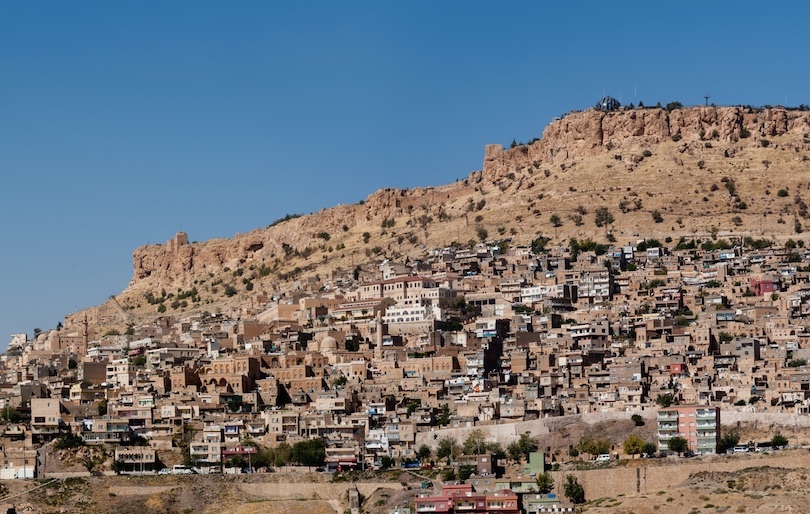
Perched on a strategic hilltop overlooking the plains of Mesopotamia in southeastern Turkey, Mardin is the capital of the Mardin Province. One of the oldest settlements in the region, Mardin is best known for its cultural diversity and Old City of sandstone buildings that cascade down the hill.
Mardin’s Old City is easily toured by walking. The maze of meandering streets leads visitors along terraced houses and popular sites like Deyrü’z-Zafaran Monastery, one of the oldest monasteries in the world, and the Sultan Isa Medresesi, a medieval monument that once served as an astronomical observatory. Zinciriye Medresesi, a 14th century Islamic school, features beautiful courtyards and art works.
The Great Mosque, with its soaring minaret, is hard to miss. Although closed to the public, the citadel presents fantastic photo opportunities. Throughout the Old City is a myriad of shops selling the likes of pottery, silverware, leather and traditional headdresses.
8. Konya [SEE MAP]
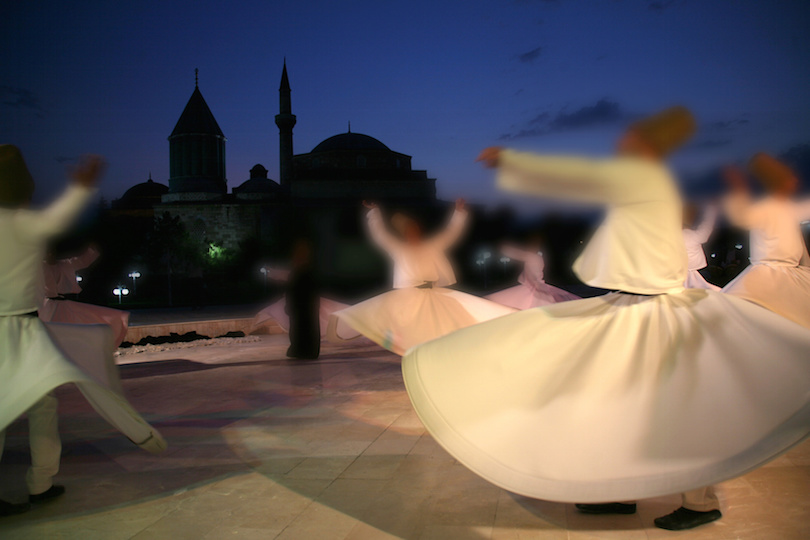
One of the oldest cities in the world and best known for its remarkable Seljuk architecture and Whirling Dervishes, Konya is a large city in Turkey’s Central Anatolia Region. In the 12th and 13th centuries, Konya prospered as a capital city under the rule of the Seljuk Dynasty. Today, attractive buildings from that era can still be admired such as the Alaeddin Mosque, which houses the tombs of several sultans. Another popular example is the Ince Minare Medrese, now a museum displaying artifacts from the Seljuk and Ottoman eras.
Although in ruins, the Seljuk Palace is also worth a visit. A modern day architectural attraction is the Seljuk Tower, one of the tallest skyscrapers in Turkey, featuring a revolving restaurant at the top two floors.
In the 13th century, Konya was the home of the Persian theologian and Sufi mystic, Rumi. His tomb, the Mausoleum of Rumi, with its neighboring Melvana Museum, is a must-see site in Konya. Rumi’s followers founded the Mevlevi Order, which are also known as the Whirling Dervishes due to their famous religious ceremonies in which they spin around and around on the left foot while wearing white, billowing gowns. These ceremonies, also known as Sama, can be observed weekly at the Mevlana Cultural Centre.
Konya also offers beautiful green spaces and parks such as Alaeddin Hill, in the city center, and the Japanese Park with its lovely pagodas, waterfalls and ponds.
Because Konya is one of Turkey’s more conservative cities, bars and nightclubs are not as plentiful. However, some hotels and cafes do offer alcoholic drinks.
7. Antalya [SEE MAP]
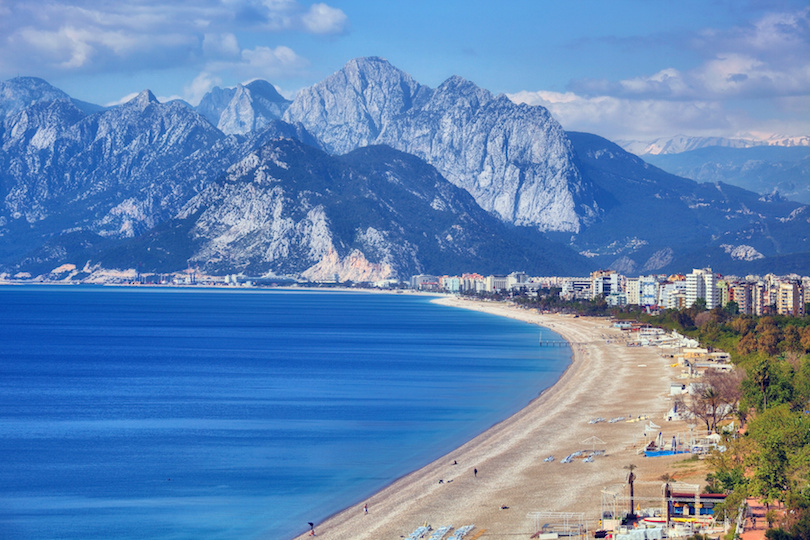
Nestled along the beautiful Turkish Riviera on the Mediterranean coastline, Antalya is a large, vibrant city welcoming tourists with numerous resorts, hotels, bars and restaurants. Spectacular scenery frames the city with gorgeous beaches and lush green mountains dotted with ancient ruins. From swimming and sailing to mountain climbing, sightseeing and family fun, Antalya offers something for everyone.
A walk around Kaleiçi, the Old Quarter, offers a step back into the city’s ancient past with views of the old city walls, Roman gates, maze-like streets and historic structures that include the Clock Tower and beautiful, old churches, mosques and temples. At the heart of the Old Quarter is the Cumhuriyet Square, surrounded by shops, cafes, Turkish baths and street performers.
Antalya’s main beaches, Konyaalti and Lara, offer white sands, water sports, resorts, bars and restaurants. Nearby the beaches are water parks, amusement parks and a zoo. Several museums exhibit artifacts and relics from the area, including the award-winning Antalya Museum.
6. Marmaris [SEE MAP]
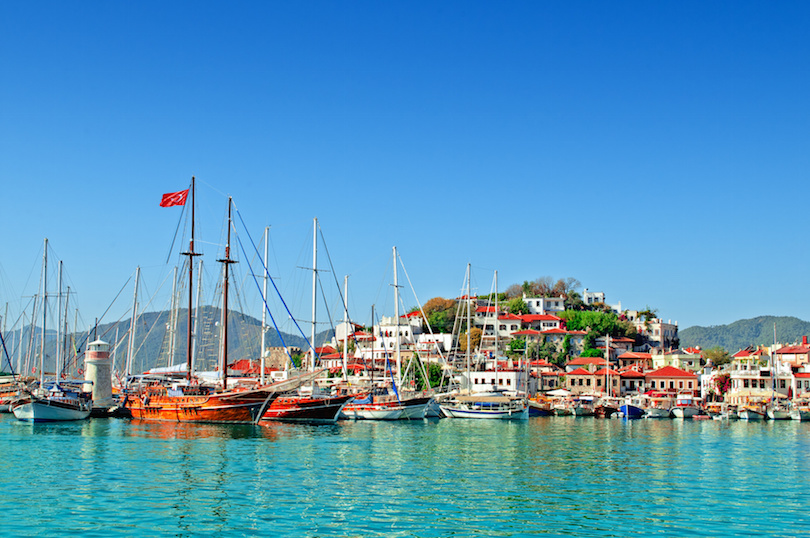
One of Turkey’s most popular seaside resorts, Marmaris is a picture-perfect setting of pine-clad mountains, sandy white beaches, turquoise waters and historic architecture. Located along the Turkish Riviera in southwest Turkey, this stunning cruise port is a tourist paradise with exceptional sightseeing opportunities, water sports, fantastic dining and buzzing nightlife.
Marmaris presents so much to see and do that visitors will be spoiled for choice. A walk along the cobblestone streets of the old quarter offers attractive architecture and a visit to the 16th century Castle of Suleyman the Magnificent. Various boating tours take visitors exploring around the picturesque bays and neighboring villages.
Horse safaris canter through lush pine forests, orange groves, traditional villages and around untouched bays and stunning waterfalls, while jeep safaris present off-the-beaten-track adventures.
Marmaris also features water parks for the whole family and Turkish baths for total pampering and relaxation. If that is not enough, there are a number of day trips from Marmaris to outstanding destinations like Dalyan, Ephesus, Pamukkale and Cleopatra Island.
The nightlife scene in Marmaris is one of Turkey’s most exciting. There are hundreds of restaurants featuring cuisines from all over the world from fast food to fine dining. Bars and clubs are found throughout the city and along the beaches. Not to be missed are the Turkish Night Show venues, which feature traditional Turkish food, mezes and belly dancing.
5. Side [SEE MAP]

A major port in ancient Pamphylia and occupied by Alexander the Great in 4th century BC, Side today is a picturesque town of classic ruins and modern day resorts overlooking sandy white beaches. Located on Turkey’s Mediterranean Coast in the Antalya Province on a small peninsula, Side offers fantastic sightseeing, nightlife and outdoor adventure.
Side’s star attraction is an excavated site of ancient Hellenistic and Roman ruins that include the remnants of a colossal amphitheater, an agora, a Byzantine basilica, public baths, marble columns and various temples. The Roman baths are now restored to house a museum, which displays a number of Roman statues and artifacts. Overlooking the beach, the Temple of Apollo is a spectacular sight, especially at sunset.
Featuring narrow streets and attractive gardens, the charming town of Side offers many restaurants ranging from delis and pizza shops to upscale dining in a variety of cuisines. Just outside of town, the Manavgat River offers boat tours, white water rafting and impressive waterfalls.
4. Bodrum [SEE MAP]
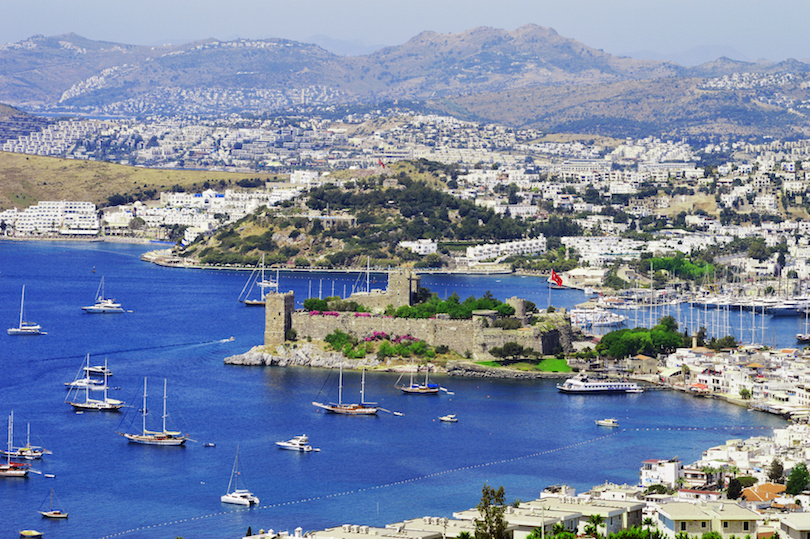
Located in the Mugla Povince in the southern Aegean region of Turkey, Bodrum is the site of the ancient fortified city, Halicarnassus, which was once home to marble buildings, temples, statutes, paved streets and the Mausoleum, one of the Seven Wonders of the Ancient World.
After falling into ruins, the city remained a quiet fishing village until the 20th century when Turkish intellectuals brought popularity to it through their writings. Today, Bodrum’s intriguing ruins, stunning beaches and cliff-top resorts attract people from all over the world.
On Bodrum’s eastern side, tourists will find a beautiful beach overlooking brilliant blue water. Near the beach are plenty of cafes, bars and nightclubs. On the western side of town is the marina, shopping centers and restaurants.
No visit to Bodrum would be complete without seeing the Castle of St. Peter, also known as Bodrum Castle. Built from 1402 by the Knights Hospitaller it now operates as a museum. Other sights include the last remains of the Mausoleum, and ancient amphitheater and the Myndos Gate, which was once the scene of a bloody battle during a siege by Alexander the Great.
Besides sightseeing, other things to see and do in Bodrum include the award-winning Bodrum Museum of Underwater Archaeology which is housed inside Bodrum Castle, historic windmills, Turkish saunas and mud baths, windsurfing, scuba diving and boat tours that feature nightclubs and glass-bottomed dance floors.
3. Ephesus [SEE MAP]

Europe’s most complete classical metropolis, Ephesus is an ancient site located in Aegean Turkey. By the 1st century BC, Ephesus was one of the largest cities in all of the Roman Empire, boasting one of the Seven Wonders of the Ancient World, the Temple of Artemis. The ruins of Ephesus are well preserved and contained within a large archaeological site, making it one of Turkey’s most popular tourist attractions.
Ephesus was declared a Roman settlement in 133 BC, although it did not reach its peak until some 200 years later. At one point, when the city was the capital of Roman Asia Minor, Ephesus housed more than 250,000 permanent residents. St.Paul lived in Ephesus, fostering Christianity among many other religions. With the decline of the harbor of Ephesus, and the sacking of the city by Germanic Goths in the third century, Ephesus began its decline.
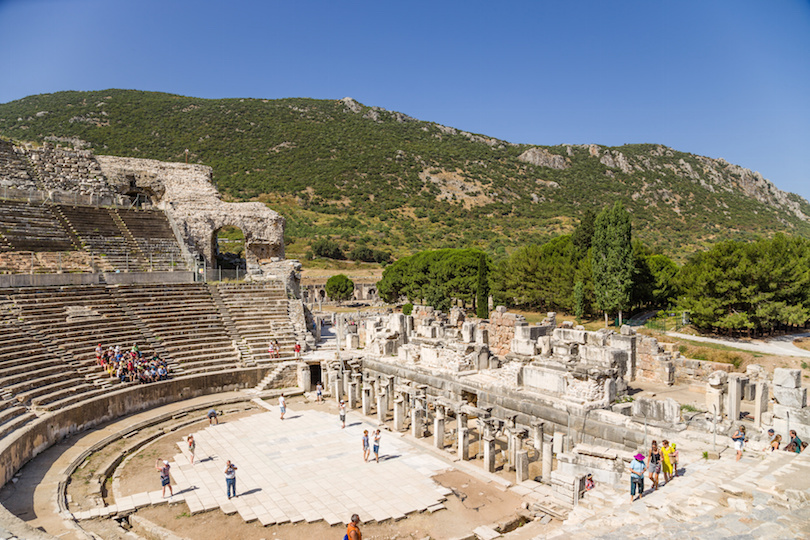
For roughly 1,500 years, Ephesus was all but forgotten. The remnants of this incredible classical city were hidden from the world until the 1860s, when an international team of archeologists began unearthing the ruins. Today, less than 20 percent of Ephesus has been excavated, but it is still one of the largest accessible archeological sites in the world.
Without question, the most famous structure in Ephesus is the Temple of Artemis. The temple was once the largest on the planet, showcasing just how important the city of Ephesus was. Unfortunately, the temple itself was largely destroyed around the fifth century, but it is still possible to tour the ruins.
Some of the most recently excavated attractions in Ephesus, and certainly some of the most popular, are the Terraced Houses. These were the homes of the richest residents of Ephesus in approximately the first century, and they were built in a modern Roman style.
Remarkably, some of the homes had hot and cold baths, marble floors and even heating systems. On the walls, you can spot unusual artwork, mosaics and even love poems scrawled by hand.
No trip to Ephesus would be complete without seeing the famed Library of Celsus. Built in 123 AD, the library was once of the largest libraries in the ancient world, coming in third after the libraries of Alexandria and Pergamum. The library has been restored, making it easier to see its two-story design, its columns and its capitals.
Be sure to admire the four statues that represent the four virtues. While these are now replica statues, and not the originals, you can still see Sophia, representing wisdom, Episteme, representing knowledge, Ennoia, representing thought, and Arete, representing goodness.
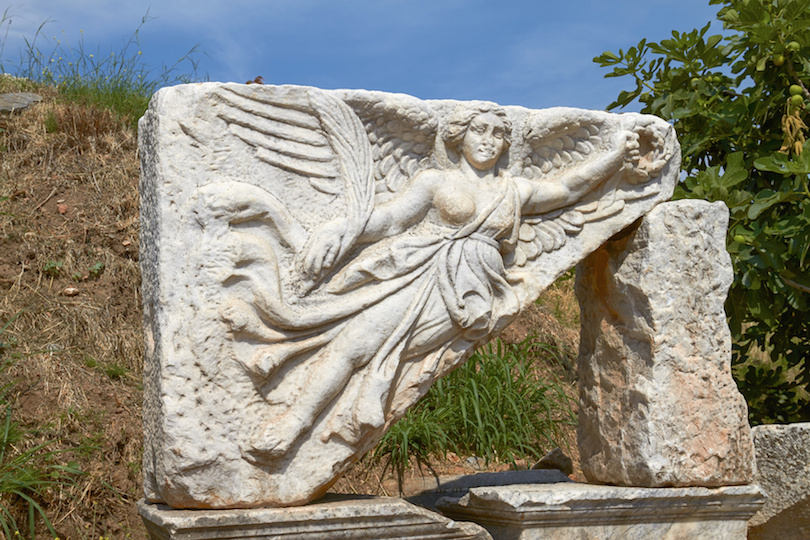
Just two miles from Ephesus is the town of Selçuk, where many visitors choose to spend time before or after exploring the ruins of Ephesus. In the center of Selçuk, you might want to stop and admire the Roman aqueduct that once supplied water to the city, or you could learn a little more about the archeology of the region by exploring the collections at the Museum of Ephesus. You can also browse at the market or pick up double knot carpets, the most popular souvenir from the area.
2. Cappadocia [SEE MAP]
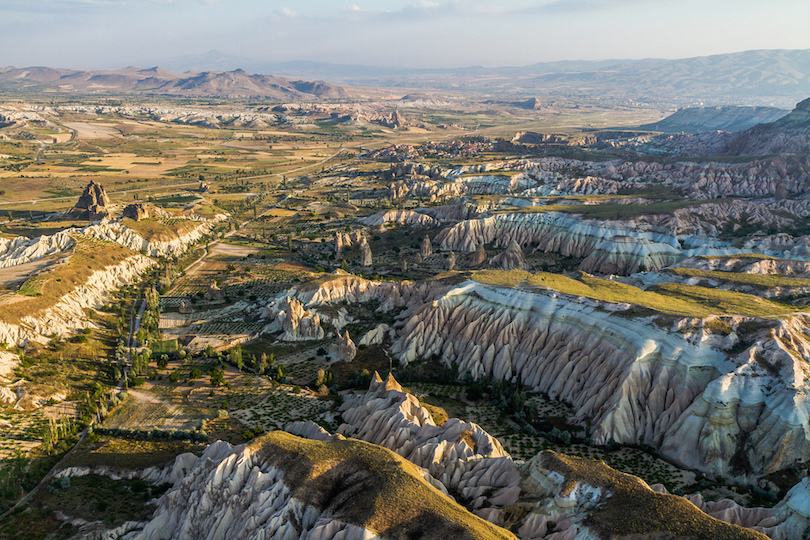
Situated in Central Anatolia of Turkey, Cappadocia is best known for its fairytale landscape of unusual formations resembling chimneys, cones, mushrooms and pinnacles. Natural processes such as ancient volcanic eruptions and erosion have all sculpted these odd formations over the ages, with some of them rising as much as 130 feet (40 meters) high. However, thousands of years ago, mankind added remarkable touches to the landscape by carving out houses, churches and underground cities from the soft rock.
Inhabited as early as 1800 BC, Hittites and other residents chiseled out underground tunnel complexes, seeking safety from invading Persians and Greeks. Much later in the 4th century AD, Christians, fleeing out of religious persecution from Rome, sought refuge in Cappadocia’s tunnels and caves. Today, the region’s natural wonders and historic sites all make it a popular destination.
While much of Cappadocia is located in the province of Nevsehir, some of the main towns in the region are Ürgüp, Göreme, Avanos, Ortahisar and Mustafapasa. Many of these towns offer hotels, restaurants, nightlife options and attractions such as museums, rock castles, fairy chimneys, underground tunnels, old Greek villages, monasteries and handicraft markets. Some of the caves in the region are actually hotels and cater to tourists.
1. Istanbul [SEE MAP]

Once serving as the capital of the Ottoman and Byzantine Empires, Istanbul today is the largest city in Turkey and one of the largest in the world. Istanbul stretches across both sides of the Bosphorus, a narrow strait that connects Asia and Europe, making it the only city in the world spanning two continents. Impressive architecture, historic sites, dining, shopping, nightlife and exotic atmosphere all make Istanbul one of the world’s top tourist destinations.
See also: Where to Stay in Istanbul
The Old City is where most of the city’s impressive historic sites are found, which include the Hagia Sophia, Blue Mosque and Topkapi Palace. Another important district is New City, known for its modern day attractions, skyscrapers and shopping malls. Beyoglu and Galata are popular zones for nightlife and entertainment, while the Bosphorus area is home to beautiful palaces, waterfront mansions and urban parks.
There is no shortage of exciting things to see and do in Istanbul . A shopping affair not to be missed is the Grand Bazaar, one of the world’s oldest and largest covered markets. Visiting a Turkish bath is also a great way to experience the local culture. The nightlife scene in Istanbul abounds in numerous restaurants, pubs and nightclubs to suit every budget and preference.
Map of Turkey
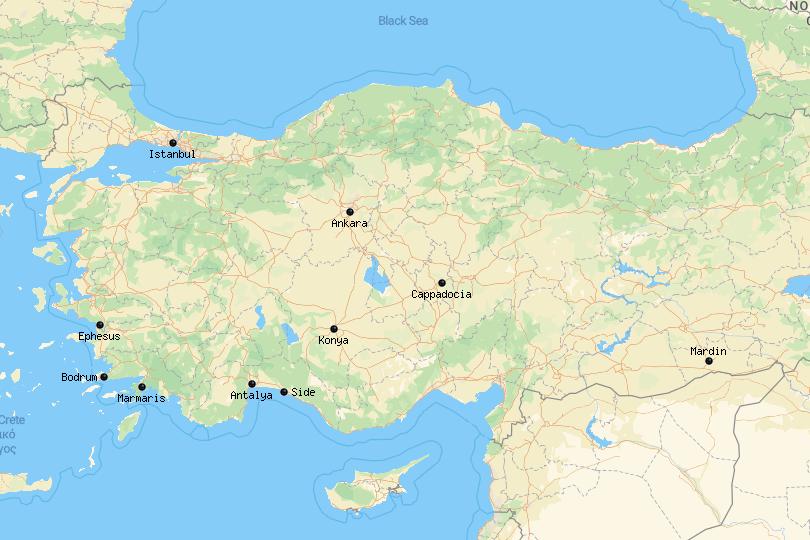
Turkey Travel Video
Share this post:.
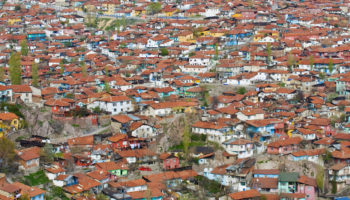
15 Best Cities to Visit in Turkey

10 Most Beautiful Cave Hotels in Cappadocia
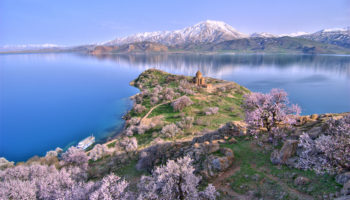
7 Most Beautiful Regions in Turkey

10 Best Beach Resorts in Turkey
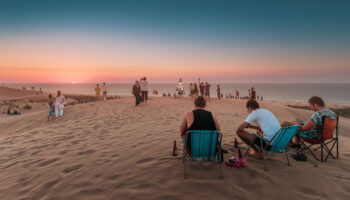
16 Best Beaches in Turkey You Should Visit this Summer
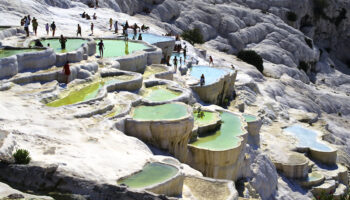
26 Top Tourist Attractions in Turkey
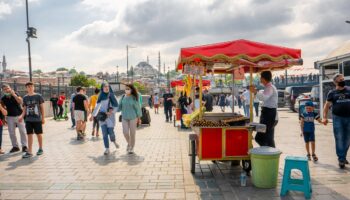
17 Top Tourist Attractions in Istanbul

15 Best Things to Do in Antalya, Turkey

6 Things to do in Cappadocia, Turkey

10 Amazing Things to Do in Bodrum, Turkey
Reader interactions.
June 29, 2018 at 12:49 pm
You must go to Rize too.
December 18, 2017 at 3:41 pm
Izmir is one of the best Turkey there is,lots of historic places and many great places to see
November 13, 2017 at 8:45 am
You should have added Bursa and Cumalikizik to your list. Bursa and its vicinities offer a lot for the visitors, who would like to taste great food, experience thermal baths, Turkish baths, visit bazaars, mosques, madrasas and enjoy beautiful nature…
June 29, 2017 at 1:56 pm
Turkey has a lot to offer for those who wants to see mixture of cultures, tradition and history. I have been to half of the places mentioned above and each place has its unique history and taste to it. Actually i am planning to move to live in Izmir with my family in less than a month time. We are so excited about this venture, and look forward to get more of Turkey in next few years.
June 21, 2017 at 10:33 pm
I can’t believe you skipped Kastamonu
May 30, 2017 at 2:29 am
I’m suprised you skipped Gaziantep. Gaziantep has the most beatiful Turkish cuisine. You have to taste beyran, kebab, baklava, kadayıf.. In addition, I strongly recommend you to see the ancient city of Zeugma . There are many wonderful muesums and castlle in Gaziantep. I must say that Gaziantep has the biggest zoo.
February 23, 2017 at 12:49 am
Black Sea would be the hidden Gem!! From amazing mountains to the Black Sea it has so much for all to see.
November 15, 2015 at 12:53 pm
I like Ankara, Istanbul, and Antalya. But I really love Ephesus because I really like Greek mythology and historical cities.
June 7, 2015 at 8:52 am
Antalya is definitely one of the best places. When I was a kid, I went there with my family for three days, the beach was sooo awesome!
May 16, 2015 at 12:43 pm
Turkey rocks. Its an amazing destination with a lot of beautiful n mesmerizing sights. Pammukale, Izmir, Uzungöl n safran bolu, Amasra, çanakale should b added to this list if u have time. Moreover u can skip Ankara.
February 26, 2015 at 1:16 am
in addition to: For the ones who are interested in history, Edirne is wonderful to see.
February 26, 2015 at 1:11 am
Don’t make a mistake and never go to Ankara. One of the worst cities in Turkey. I know because I live in Turkey and I lived in Ankara.
Bodrum, Istanbul, Ephesus, Kapadokya, Mardin (security is important), Side, Fethiye (dead sea), Datca and Cunda. These are the best i think
January 8, 2015 at 2:56 am
I cannot believe that you mentioned Ankara in the list. There should be Bursa which has 7 sites (5 Ottoman sultan complexes, Ottoman bazaar and Cumalıkızık Ottoman Village) in Unesco World Heritage list. The city is only 90 minutes by ferry from Istanbul. I highly recommend.
November 3, 2014 at 1:33 am
i’m planning to visit Turky soon ,because it is amazing
October 25, 2014 at 6:49 am
I think,Istanbul is the best to travel,however,Ankara is also awesome place.
October 11, 2014 at 7:42 am
I can’t believe you missed out Pamukkale! That place looks incredible! Other than that, great list! I can’t wait to explore more of Turkey.
September 8, 2014 at 6:26 am
I like Uzungol, Sultan Murat & Sekarsu nice climate, nature at Iis best …
September 2, 2014 at 7:30 pm
Nice list, Side is definitely amazing. Visiting ancient sites in Kas is something travellers shouldnt miss. Two cities are very different one is more touristy and both have great Roman ruins.
August 22, 2014 at 7:50 pm
Izmir is SOOOOOO much better than Istanbul , its crazy that its not even on this list
June 15, 2014 at 7:38 am
If you have 5 days in Istanbul , thats just nice to see it alone . Stay near the Grand Bazaar entrance, which is very near to the tram station of Beyjezit. you can walk to the Grand Bazaar, Blue Mosque, Hagia Sophia, Topkapi palace . and Citedel Basalica. Take a tram to Eminonu , where the Spice market and famous Fish restaurants, and then take the Bosphorus Cruise from there. On the third day take a City bus ride to see the outskirts of Istanbul. On 4th day you can go back to see more of what you havent covered the first three days.
April 12, 2014 at 1:01 pm
March 10, 2014 at 12:13 am
Very surprised that the Black sea region is not on your list
January 25, 2014 at 11:44 am
Can somebody advise where to go in turkey for 5 days.?
January 16, 2014 at 9:22 am
I visited Turkey last year and i must say i was impressed greatly! If you want a bit of everything on a trip then dont miss this place.
October 7, 2013 at 12:49 am
Wey!! I have done all of them apart from Ankara and looking to do that this winter
Leave a Reply Cancel reply
Your email address will not be published. Required fields are marked *
This site uses Akismet to reduce spam. Learn how your comment data is processed .
- TURKEY.HOME
- Ancient Cities
- Historical Sites
- History and Heritage
- Markets & Bazaars
- Nature and Parks
- Sightseeing
- Water Sports
- Winter Sports
- Fashion and Shopping
- Backpacker & Hostels
- Bed & Breakfasts
- Cabins & Cottages,
- Caravan & Camping
- Hotel & Motels
- Spa & Retreat
- Self Contained Apartments
- Performances
- Sporting Events
- Classes Lessons & Workshops
- Exhibitions & Shows
- Festivals & Celebrations
- INSIDER TIPS
- Work & Study
- Useful Information
- Getting around
- While you are here
- Before You Go
- Historical Development
- Culinary Culture
- Ingredients
- Regional Cuisine
- Food and Social Life
- Food and Wine
- Restaurants
- Archaeology
- Architecture
- Performing Arts
- Philosophers
- Textile Arts
- Traditional Arts
- Carpets and Kilims
- Ceramic Arts
- Graphic Arts
- Attractions
- Beaches & Surf
- Turkey Events
- Family holidays
- Antique Cities
- Archaeological Sites
- Arts and culture
- Beach lifestyle
- Drives & Roadtrips
- Culture & Art
- Entertainment
- Faith Centers
- Family Activities
- Luxury breaks
- Short & weekend breaks
- Pet friendly holidays
- Autumn holidays
- Christmas & winter breaks
- Summer holidays
- Accessible holidays
- Activity holidays
- Cheap breaks
- City breaks
- Eco-friendly
Visit Turkey – Official travel guide to Turkey – Tourism in Turkey
- DESTINATIONS
Welcome to Turkey
All about side for travel, best beaches in turkey, 24 sights in istanbul, find out what the best ancient cities in turkey are, is it safe to visit turkey, see fantastic events in turkey, 10 cities you must visit once in your lifetime, explore turkey, this weekend.
Take a look at our guide to what’s on in Turkey so you don’t miss any of Turkey’s must-see events.
Turkey for kids
Discover the best things to do in Turkey with kids.
Turkey highlights
Adventure in turkey.
The range of tourist attractions in Turkey is endless.
Best spots for cheese
A toasted sandwich with cheese oozing out is squashed by The Cheese Truck's chef holding an iron press.
WE'R From Turkey
Tickets & offers, attraction tickets.
Attraction tickets...
Sightseeing pass
Sightseeing pass...
Theatre tickets
Theatre tickets...
Religious Holidays, Ceremonies and Celebrations
Opera and ballet, most popular.
Cappadocia...
Aya Sofya...
Sightseeing tours
Top bus tours.
Top bus tours...
Unusual tours
Unusual tours...
Speedboat tours
Speedboat tours...
First-time visitor
Classic turkey.
Classic Turkey...
Turkey by month
Turkey by month...
Reasons to visit Turkey
Reasons to visit Turkey...
THINGS TO DO IN TURKEY
Accommodation in turkey, 8 reasons to visit turkey, top turkey experiences, top 10 ski resorts, traveller information, things you can do in turkey, study in turkey, our #turkeyisopen campaign, more turkey trip ideas.
Planning your Turkey trip? Whether you’re looking for things to do in Turkey such as events and attractions, key traveller information to make your Turkey visit run smoothly or are planning where to stay in Turkey, you’ll find everything you need for your Turkey holiday on visitTurkey.in. Our what’s on Turkey guide has the latest events not to miss while you visit Turkey – there’s always something going on, so don’t miss out on the latest exhibitions, shows and more on your trip to Turkey by checking out our Turkey tickets and offers. Make sure to discover Turkey’s diverse neighbourhoods, from tranquil suburbs to central areas full of shopping, entertainment and dining options. Discover the best day trips from Turkey or try one of the best Turkey tours. If you’re here as a family, you’ll find plenty of things to do in Turkey with kids and find suitable accommodation such as Turkey holiday apartments. Whether you’re looking for the best weekend breaks in Turkey or planning a longer holiday in Turkey, you can be sure you’ll find all the information you need.
- Accessibility
- Privacy Policy
- Terms of Use

Best Time to Visit Turkey: Month by Month Breakdown
Many people ask when the best time to visit Turkey would be and truthfully this answer depends on a number of factors. Straddling both Europe and Asia this beautiful nation has a combination of exotic flavor and cosmopolitan flair.
Being the 37th largest country in the world, it also has a diverse topography that allows you to do a wide range of activities. Are you interested in exploring ancient ruins, bathing in crystal blue waters, hiking up stunning mountains or shopping in a vibrant city?
Do you prefer to bask in the sun, or perhaps are milder temperatures are more up your alley? Are crowds something you would prefer to avoid, or would you rather visit a destination at the height of its splendor? These are all things to consider when choosing the most optimal time to visit.
When you speak to people about visiting most tourist destinations you will often hear the terms high season, shoulder season and low season. The high season in Turkey runs from May through September.
This is the time when the temperatures can soar but along with the numbers on the thermometer, so to are the numbers of visitors who visit during this time. Because high season brings demand to its destination, accommodation rates and airfare prices are usually at its highest.
There are two shoulder seasons – on one side there is the month of April and on the other side is October through mid-November. The shoulder seasons are perhaps an ideal time to visit with lesser crowds, moderate temperatures and discounts on accommodations and airfares.
One thing to make note of, however, is that some shops, restaurants and accommodations do shut down when the high season is over so not everything will be open during this time.
Low season runs from mid-November until March and is when temperatures drop bringing the possibility of rain or snow. This is not to be said for all of Turkey, however, as the Aegean and Mediterranean coasts enjoy mild winters and are popular year-round destinations.
Don’t leave home without: Lonely Planet Turkey (Travel Guide)
Table of Contents
January & February in Turkey
January and February are fairly cold months in Turkey. Istanbul’s location near the sea makes it common for it to be especially windy during this time. If you are wanting to take a cruise on the Bosphorus, be aware that it is possible that unforeseen weather may cause cancellations.
On a positive note, because of the decline in visitors at this time, you can frequent all the amazing museums and sites with very little crowds. As you travel further inland and to the east, snow is not uncommon.
Visiting iconic places such as Cappadocia in the winter is just as beautiful as the summer. It has a different vibe with snow-topped fairy chimneys and plenty of opportunity for amazing panoramic photographs since there are far fewer people to contend with.
If skiing is an activity that interests you, perhaps traveling further north to the small ski resort of Kartalkaya in the Koroglu Mountains is a place to be.
March & April in Turkey
In March and April, temperatures begin to rise and flowers begin to bloom. Crowds are still at minimal and accommodation and airfare rates are still fairly low. If you visit in April you will be able to see the tulips in full bloom which is a spectacle in itself as parks and gardens are bursting with vibrant colors.
Each year at the beginning of April, the Istanbul Foundation for Culture and Arts hosts the Istanbul International Film Festival . This event celebrates the best of national and international film. It is the largest film event in Turkey with over 200 films to be seen.
In 2020, this event will take place from April 3 to 14th.
On April 23rd, Turkey celebrates National Sovereignty and Children’s Day. Commemorating the first gathering of the Grand National Assembly which took place on April 23, 1920, this day hosts many events and festivals throughout the country.
Because Ataturk dedicated the Turkish Republic to children, school children take seats in the Parliament and symbolically govern the country. The biggest ceremony takes place at the Ataturk Mausoleum in Ankara.
On April 25th, Canakklale is bustling with energy as thousands flock to Gallipoli to pay respects to the Australians and New Zealanders who selflessly gave their lives in 1915 by fighting for the Allied Forces against the Ottoman Empire during WWI.
The day begins with a service at dawn where veterans and their families stand in silence for two minutes, while the remainder of the day you can visit the surrounding battlefields.
Similarly the Turkish also celebrate Canakkale Naval Victory Day on March 18 each year. This is to commemorate the success of Ataturk who successfully led his troops to victory.
As Turkey is a predominantly Muslim country it is important to make a note of when Ramadan takes place. Ramadan is the ninth month in the lunar calendar and lasts between 29 to 30 days.
Because of this calendar, the beginning of Ramadan moves backward by about 11 days each year. For 2020 Ramadan takes place from April 24th to May 23rd. This Islamic holy month is intended to bring Muslims closer to God and teach them about patience, spirituality, and humility.
Part of the observance is for Muslims to fast during daylight hours. Depending on where you are in the country you may notice slight differences.
Restaurants tend to be less busy during the day and some places that usually serve alcoholic beverages may refrain from doing so during this period.
Swimming areas will also be less crowded as people who are fasting are not allowed to swim. After sunset places like Istanbul get back into a lively atmosphere where locals head to restaurants that offer special Ramadan menus or buffets.
Tourists and non-Muslims are welcome to join in on the festivities.
May & June in Turkey
If you are like me you will also think that May and June are the best months to travel around Turkey because the weather is hot, but not at its peak. Having said this, I was there near the end of June and walking around the historical sites at times became a little unbearable.
It may be the perfect temperature to lay on a beach but when you are walking around an uncovered historical site you will have to bring a hat and sunscreen as there is very little shade.
On May 5th & 6th is one of Turkey’s annual festivals called the Hidrellez Festival. This festival is a celebration of spring and is more often celebrated in the countryside.
To mark this occasion various ceremonies and rituals associated with nature are performed which in turn guarantee the well-being and prosperity of the family and community for the upcoming year. These rituals have cultural meanings and provide the community with a sense of identity.
July & August in Turkey
Summer in Turkey is hot and dry and can even reach temperatures beyond 100 degrees Fahrenheit. Swimming in the Mediterranean is a welcomed activity and coastal towns are in full swing.
This is also the peak season for cruise ships, making the beach resorts and ancient sites a bit busier. As I mentioned earlier, be conscious of the heat when visiting any of the historical sites.
With very little shade and a lot of walking, it is best to visit these sites early in the morning. As a lot of people tend to flock to the coast during the summer months, Cappadocia tends to be a little quieter.
Enjoy a majestic balloon ride high above the fairy chimneys or hike the valleys that turn into a beautiful pinkish hue.
Every year Istanbul hosts the Istanbul Jazz Festival during the month of July. Concerts are held in different locations around the city and provide unique experiences to festival-goers by turning unconventional spots into concert venues.
During the summer months is when the renowned Aspendos International Opera and Ballet Festival takes place. Aspendos is located in Antalya Province, just 2 and a half miles north of Serik and 24 miles from Antalya.
It has a unique location in a magnificent Roman amphitheater that dates back to 2nd century A.D. This open-air theater truly is phenomenal as it has perfect acoustics where sound can easily reach the last bench.
September & October in Turkey
September and October are part of the shoulder seasons and like their spring counterparts are great months to explore Turkey. Temperatures are mild and it tends to be relatively dry. One thing to make note of is that in late October hotels and amenities start to shut down for the winter along the Mediterranean coast.
October 29th is Republic Day. This day marks the creation of the Turkish Republic in 1923. A new constitution was adopted which replaced the old constitution of the Ottoman Empire.
It is a national holiday where public administration buildings, schools, post offices as well as many small businesses remain closed. If you are trying to get around the bigger cities be aware that public transport schedules may also vary.
The day is celebrated with parades, public speeches, traditional dancing as well as fireworks.
November & December in Turkey
Like the beginning of the year, November and December remain quite chilly throughout most of Turkey. The southern part of Turkey in the Antalya region has far warmer weather but in general, expects to dress warmer.
When traveling in January and February, there are perks to traveling to Turkey during the winter. You can take advantage of the amazing museums and sites as you don’t have to contend with the crowds.
For 11 days in December Konya hosts the Mevlana and Whirling Dervish Festival. Thousands of people gather to commemorate the life and teachings of the 13th-century poet and Sufi mystic Rumi.
The Mevlevi Order was founded in 1273 by Rumi followers after his death. The Mevlevi believe in performing their dance and musical ceremony known as the Sama.
The Sama represents the spiritual journey of a man’s ascent to find love and truth by deserting the ego and arriving at spiritual perfection. Konya is one of Turkey’s more religiously conservative cities and because this is a spiritual event certain rules must be followed while attending the festival.
Women need to wear a headscarf and men and women are seated separately. In 2019 this event takes place from December 7th to the 17th.
As you can see Turkey truly is a destination that you can visit all year round. With so much to see and do there is something for everyone no matter what time of year you visit.
More on Turkey:
- What to Wear in Turkey: Ultimate Turkey Packing List
- 11 Unmissable Things to do in Istanbul
- 9 Reasons to Visit Selcuk Turkey (Including Ephesus!)
- Foolproof Guide to Pamukkale Turkey
- Cappadocia, Turkey: 10 Things to Know Before You Go
- 5 Reasons to Add Cirali, Turkey to Your itinerary
- Dalyan, Turkey: Essential Guide & Best Things to do
- Ephesus, Turkey: Best Sites to Visit in the Ancient City
Did you like this story? Share it!
Travel planning resources, about heather halpern.
Based in Edmonton, Canada - I caught the ‘travel bug’ many years ago when I was a competitive rhythmic gymnast and haven’t been able to quench the thirst for exploring the world. Even though I live a pretty regular life with a full time job, I aim to take at least one overseas adventure a year. This means, I skimp, save and try to live the happiest life possible throughout the year so that I can experience my one true love…travel!
Leave a Comment Cancel reply

Cookies on GOV.UK
We use some essential cookies to make this website work.
We’d like to set additional cookies to understand how you use GOV.UK, remember your settings and improve government services.
We also use cookies set by other sites to help us deliver content from their services.
You have accepted additional cookies. You can change your cookie settings at any time.
You have rejected additional cookies. You can change your cookie settings at any time.
Register to vote Register by 18 June to vote in the General Election on 4 July.
- Passports, travel and living abroad
- Travel abroad
- Foreign travel advice
Warnings and insurance
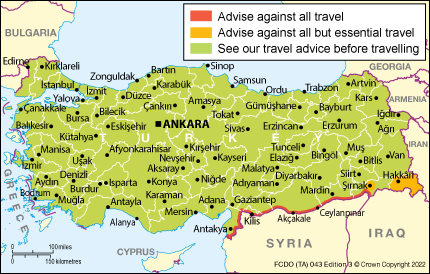
The Foreign, Commonwealth & Development Office ( FCDO ) provides advice about risks of travel to help British nationals make informed decisions. Find out more about FCDO travel advice .
Areas where FCDO advises against travel
Your travel insurance could be invalidated if you travel against FCDO advice. The embassy staff cannot travel to areas where FCDO advises against travel to help you in person. Staff can offer support by phone and email.
Turkey-Syria border
FCDO advises against all travel to within 10km of the border with Syria due to fighting and a heightened risk of terrorism.
Sirnak city
FCDO advises against all but essential travel to Sirnak city.
Hakkari Province
FCDO advises against all but essential travel to Hakkari Province.
Find out more about why FCDO advises against travel .
Before you travel
No travel can be guaranteed safe. Read all the advice in this guide as well as support for British nationals abroad which includes:
- advice on preparing for travel abroad and reducing risks
- information for women, LGBT+ and disabled travellers
Follow and contact FCDO travel on Twitter , Facebook and Instagram . You can also sign up to get email notifications when this advice is updated.
Travel insurance
If you choose to travel, research your destinations and get appropriate travel insurance . Insurance should cover your itinerary, planned activities and expenses in an emergency.
Related content
Is this page useful.
- Yes this page is useful
- No this page is not useful
Help us improve GOV.UK
Don’t include personal or financial information like your National Insurance number or credit card details.
To help us improve GOV.UK, we’d like to know more about your visit today. Please fill in this survey (opens in a new tab) .
Istanbul Travel Guide

Courtesy of Leonardo Patrizi | Getty Images

Why Go To Istanbul
Bridging East and West – Europe and Asia – Istanbul possesses a richly complicated heritage. Once the capital of the Ottoman and Byzantine empires, this city's prestigious history has left us with many monuments to cherish. Plus, it integrates its past and present to create a unique mix of architecture; a glass skyscraper next to a Byzantine church or a colorful bazaar in the shadow of a shopping mall. The natural landscape is also impressive. The Bosphorus, a narrow strait, cuts the city in two and connects the Sea of Marmara in the south to the Black Sea in the north. From the blue waters, visitors will see a skyline of domes, steeples and modern towers.
Although Istanbul looks serene from afar, the internal atmosphere is wonderfully chaotic. Discover the bustling streets and busy bazaar stalls that have characterized the city for hundreds of years. Drivers will jockey for position; shopkeepers will barter in an avalanche of chatter; and you'll be struggling to digest all of the sights, sounds and smells. Speaking of smells – during your exploration, smell and taste the distinctly Turkish treats off the streets, including döner , Istanbul's version of fast food. And when the sun goes down, you'll see that Istanbul sheds some of its conservative facade to reveal a thriving nightlife. At the intersection of civilizations and continents for centuries, Istanbul surprises visitors with its fast pace, its ancient history and its present culture.
Find Flight and Hotel Deals
Navigate forward to interact with the calendar and select a date. Press the question mark key to get the keyboard shortcuts for changing dates.
Navigate backward to interact with the calendar and select a date. Press the question mark key to get the keyboard shortcuts for changing dates.
- # 6 in Best Cheap European Vacations for 2023-2024
- # 11 in Best Places to Visit in November 2024
- # 11 in Best Cities in the World to Visit
Best of Istanbul
Best hotels in istanbul.
- # 1 in Ciragan Palace Kempinski Istanbul
- # 2 in Four Seasons Hotel Istanbul at Sultanahmet
- # 3 in Four Seasons Hotel Istanbul at the Bosphorus

Best Things to Do in Istanbul
- # 1 in Blue Mosque (Sultanahmet Camii)
- # 2 in Hagia Sophia Mosque (Ayasofya Cami)
- # 3 in Basilica Cistern (Yerebatan Sarnici)
Popular Tours

Best of Istanbul: 1, 2 or 3-Day Private Guided Istanbul Tour
(5186 reviews)
from $ 200.00

ISTANBUL BEST : Iconic Landmarks FullDay Private Guided City Tour
(421 reviews)
from $ 160.00

Taste of Two Continents: Istanbul Food Tour
(2090 reviews)
from $ 125.00
Istanbul Travel Tips
Best months to visit.
The best times to visit Istanbul are from March to May and between September and November. That's when crowds at the city's attractions are manageable, room rates are average and daytime temperatures generally sit in the 60s and 70s. Peak season – from June to August – sees temps soar into the low 60s to low 80s, and accommodation prices increase to match the demand from incoming tourists. December through February, meanwhile, are the cheapest months to visit, but Istanbul's rainy, snowy and chilly conditions (temps are in the high 30s to high 50s) mean you'll have to don cold weather attire and lug an umbrella during your stay.
Weather in Istanbul
Data sourced from the National Climatic Data Center
What You Need to Know
Politeness is highly regarded here Many U.S. customs are different from those in Turkey. But, this one still applies: Be gracious, even if you don't understand what is going on.
Using Turkish goes a long way Communicating with the locals can be difficult, although many Turks know at least some English. It is, however, best to try speaking Turkish first. Phrases such as " merhaba " (hello), " hosçakal " (goodbye) and " tesekkür ederim " (thank you) will come in handy.
Kid-friendly? Not so much If you have kids in tow, you might want to vacation elsewhere. Istanbul does not have much for children to do, and they will likely quickly tire of touring Byzantine architecture.
How to Save Money in Istanbul
Pay for items with Turkish lira Vendors in tourist areas will accept dollars and euros as a form of payment, but you'll generally overpay when using these currencies, so use Turkish lira.
Buy a Museum Pass Istanbul card Most of the city's museums have entrance fees of 200 to 700 Turkish lira (or about $14 to $25) per person. To save some coin, invest in a Museum Pass Istanbul card , which costs 2250 Turkish lira (about $80) for five days of access to attractions like the Topkapi Palace Museum and the Istanbul Archaeological Museums .
Travel by ferry for Bosphorus cruises Bosphorus excursions offered by private companies can cost up to 79 euros (more than $88) per person, so if you want to take in your surroundings from the water without burning a hole in your wallet, use Sehir Hatlari, the city's ferry operator. Tour tickets start at 65 Turkish lira (about $3).
Culture & Customs
Although Turkey is a secular state, the predominant religion is Islam, and travel writers generally characterize the country as conservative. During your stay, you might notice that practicing Muslims pray five times a day. During the ninth month of the Islamic calendar, Ramadan, Muslims fast from dawn to dusk.
Casual clothing is not unusual in more modern areas like Beyoglu, but women should cover their legs, shoulders and heads in more conservative neighborhoods like Fatih and inside mosques and other religious sites. Also, make sure to bring a scarf if you're visiting these places, though some offer ones to borrow.
In general, it is better and safer to travel accompanied by others. If you venture into the Grand Bazaar , keep a close eye on your belongings, as pickpockets are in no short supply here. And remember to be mindful of your surroundings at all times, especially at popular tourist attractions.
Rather than shaking their heads to say "no," Turks will throw their heads backward slightly and raise their eyebrows accompanied by a "tsk." When shaking hands, never offer your left hand, as it is considered rude and unclean. Also, point the soles of your feet away from others when sitting on the floor; doing otherwise is very offensive.
Turkish is the official language spoken in Turkey, and Turkish humor is a bit different from what you'll encounter in the United States. Extreme sarcasm should be avoided in conversation, as should discussions about political and religious views.
Visitors will also find that smoking is more socially acceptable here. Don't be surprised to see Turks taking frequent cigarette breaks during a meal.
Finally, the official currency here is the Turkish lira (1 Turkish lira is equal to about 4 cents). Some tourist locales will accept dollars or euros as a form of payment, but exchange rates are generally poor, so it's best to use Turkish lira at all times. Turkish lira to dollar rates often fluctuate, so check the latest exchange rate before you go.
What to Eat
Turkish cuisine can best be described as a fusion of its seven regions (the Mediterranean, Aegean, Marmara, Black Sea, and Central, Southeastern and Eastern Anatolian), each of which has its own culinary identity shaped by its geography and multiethnic nature. In terms of cuisine, Istanbul is a microcosm of the entire country, with many different types of restaurants serving many different dishes.
Some Istanbul staples include the simple esnaf restaurants, where classic homecooked dishes are made fresh daily and served cafeteria-style for lunch, including everything from meat stews and stuffed vegetable dishes accompanied by buttery rice or bulghur. There are fish restaurants that serve their freshest catch grilled and with a slice of lemon accompanied by a slew of meze (cold appetizers) that are either fish or vegetable based with plenty of olive oil. There are kebab restaurants where different meats are grilled in-house on a hooded charcoal barbecue. There are bakeries making sweet and savory pastries or dough-based specialties like lahmacun and pide (flatbreads with different toppings). There are the classic Istanbul meyhanes (taverns) serving meze and raki , the national licorice-flavored spirit made from the anise plant and mixed with water and ice. When the two liquids make contact, it forms a milky white color, giving the drink its nickname, aslan sütü (lion's milk).
There are confectionary shops dating to the Ottoman period selling traditional treats such as baklava, lokum (Turkish delight) and akide sekeri (hard candies with different flavors). Istanbul's street food includes pilafs, stuffed mussels, roasted chestnut or corn, simit (a ring-shaped bread covered in sesame), fish sandwiches, böreks (pastry made of thin layers of dough with different fillings) and dürüm (a wrap with döner – thinly sliced lamb meat from a spit). And then there are the contemporary restaurants (some boasting Michelin stars) that serve reinterpreted Turkish dishes accompanied by wines from the country's thriving boutique vineyards.
Classic Istanbul beverages include the ubiquitous Turkish tea, served hot in a tulip-shaped glass at the end of every meal or as a welcoming offering to guests. Turkish coffee is strong and is also enjoyed at the end of a meal with lokum , but make sure to not drink the grounds at the bottom of the cup. In the winter, there is boza , a drink made of fermented grains and served with cinnamon and leblebi (roasted chickpeas).
For the most authentic experience, avoid the Sultanahmet area. The tourist-heavy neighborhood's restaurants, in general, serve overpriced and mediocre food. Take a short trip on the tram north across the Golden Horn to Beyoglu, where you'll find a mix of simple home cooking, as well as some of the trendiest options in the city.
According to the U.S. State Department, travelers should exercise some caution when visiting Turkey, due to possible terrorist attacks. Tourist sites, major events, transportation hubs and popular locales (like restaurants and nightclubs) are most prone to terrorist attacks. Also, avoid protests, gatherings and demonstrations, and keep tabs on local news. Signing up for the free Smart Traveler Enrollment Program , which notifies the nearest U.S. embassy or consulate of your travels, is strongly advised. To learn more about security concerns and safety tips for Turkey, visit the U.S. State Department's website .
Getting Around Istanbul
The best ways to get around Istanbul are the buses and trams, which conveniently cover the touristy areas. But remember, buses don't have maps inside and drivers do not announce stops, so you'll need to remain vigilant and watch where you are going. The metro is also a reliable and cheap means of getting around; however, stops are farther apart and not as well-positioned for seeing the sights. When visiting Sultanahmet and Eminönü, walking between the area's attractions is doable, but you'll need to rely on another mode of transportation to reach other neighborhoods. Driving is strongly discouraged because of heavy traffic and since road signs are in Turkish and accidents are fairly common. Ferries are also available to get to the Princes' Islands and between the European and Asian sides.
Entry & Exit Requirements
Even though Istanbul straddles Europe and Asia, you can travel freely between the two sides. To enter Turkey, you will need a passport that's valid for six months past your arrival date, as well as a visa. Visas cost $50 and are available on the Republic of Turkey Ministry of Foreign Affairs website . The sticker visa (which is placed in your passport along with an official stamp) is valid for 90 days. To stay longer, contact a Turkish embassy or consulate to apply for a residence, work permit or Turkish ID card. For more information, visit the U.S. State Department's website .
Named for its interior's blue tiles, the Blue Mosque is one of the city's most popular mosques to visit.
Explore More of Istanbul

Things To Do
Best hotels.

You might also like

Mexico City
# 2 in Best Cheap Mexico Vacations

# 2 in Best Eastern Europe Travel Spots

If you make a purchase from our site, we may earn a commission. This does not affect the quality or independence of our editorial content.
Recommended
The 28 Best Water Parks in the U.S. for 2024
Holly Johnson|Timothy J. Forster May 8, 2024

The 18 Best Napa Valley Wineries to Visit in 2024
Lyn Mettler|Sharael Kolberg April 23, 2024

The 25 Best Beaches on the East Coast for 2024
Timothy J. Forster|Sharael Kolberg April 19, 2024

The 50 Best Hotels in the USA 2024
Christina Maggitas February 6, 2024

The 32 Most Famous Landmarks in the World
Gwen Pratesi|Timothy J. Forster February 1, 2024

9 Top All-Inclusive Resorts in Florida for 2024
Gwen Pratesi|Amanda Norcross January 5, 2024

24 Top All-Inclusive Resorts in the U.S. for 2024
Erin Evans January 4, 2024

26 Top Adults-Only All-Inclusive Resorts for 2024
Zach Watson December 28, 2023

Solo Vacations: The 36 Best Places to Travel Alone in 2024
Lyn Mettler|Erin Vasta December 22, 2023

26 Cheap Beach Vacations for Travelers on a Budget
Kyle McCarthy|Sharael Kolberg December 4, 2023

12 unmissable things to do in Turkey

Jan 3, 2022 • 8 min read

The landscape of Cappadocia and its horizon filled with hot air balloons is one of the most iconic sights in Turkey © Francesco Riccardo Iacomino / Getty Images
Whether your ideal vacation involves sunbathing on a Mediterranean beach , trekking in rugged mountains or learning more about the complex cultural layers laid down over thousands of years of history, Turkey has options to entice every kind of traveler.
The country boasts an abundance of ancient sites and diverse natural landscapes, as well as lively cities, tantalizing food and opportunities for adventure. You'll never cover everything on just the one vacation but here’s our pick of the best things to do in Turkey to get you started.
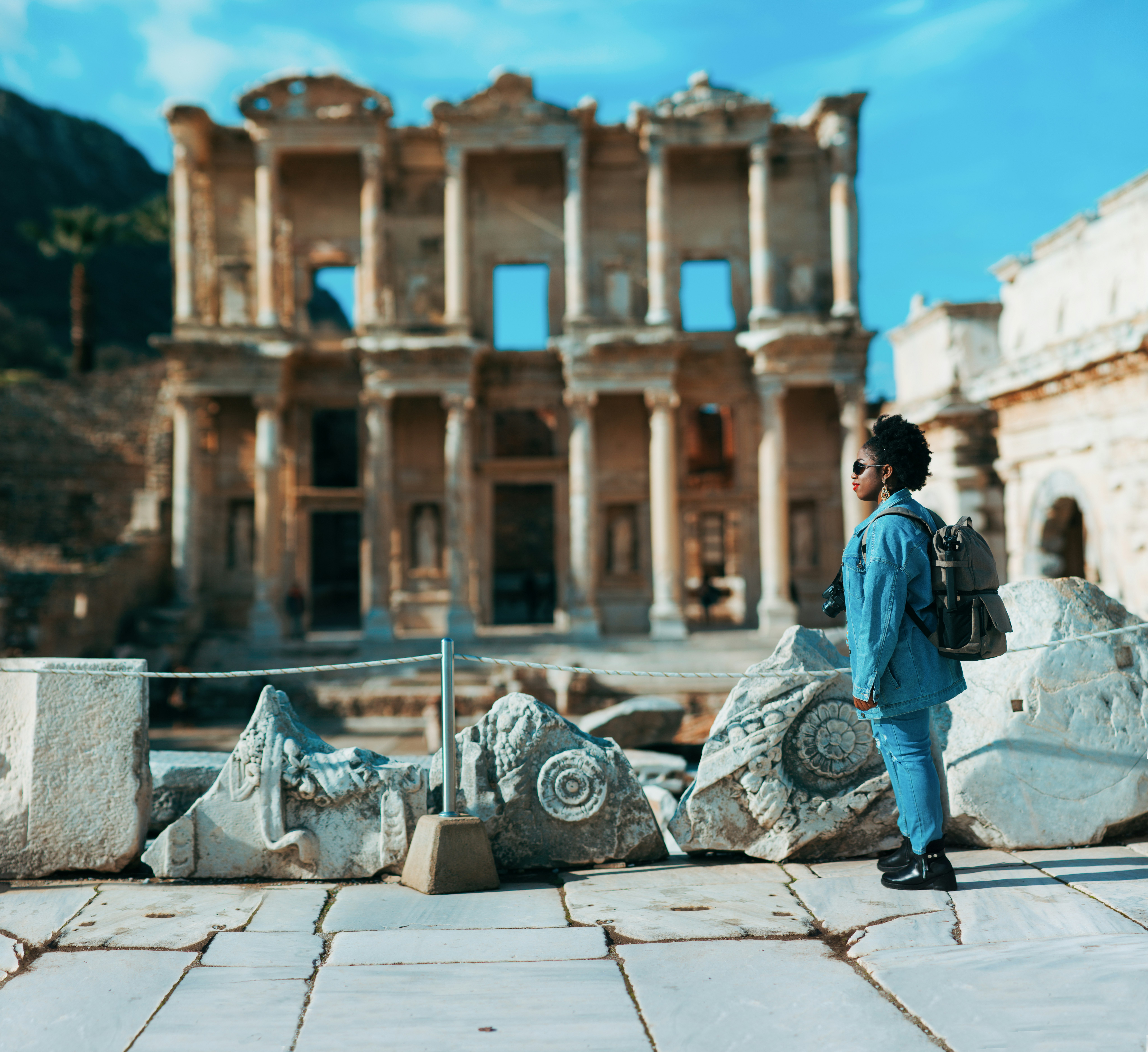
Tour the ancient city of Ephesus
The well-preserved streets of Ephesus are lined with evidence of what daily life was like for the ancient Greeks and Romans who inhabited the city for hundreds of years: the remains of their shops and schools, temples and public toilets.
Highlights of the main site include the intricately carved facade of the Library of Celsus – once the third-largest library in the world – a huge open-air theater, a Roman bath and numerous monumental fountains and gates. Well worth the separate admission fee are the Terraced Houses . These luxurious residences belonged to the Roman elite and are full of mosaics, frescoes and marble worthy of an episode of “Lifestyles of the Rich and Famous.”
Luxuriate in a Turkish bath
In the days when most homes lacked indoor plumbing, hamams (commonly referred to as Turkish baths in English) played a crucial role both as a place to get clean and to socialize. Today, they’re typically a special-occasion destination, more often frequented by tourists than locals, but still a luxury well worth indulging in.
The full treatment includes a scrub and massage by a same-gender attendant, but you can also opt to bathe yourself in their steamy chambers. With their marble-covered interiors and sky-lit domes, the grandest hamams – such as the Ayasofya Hürrem Sultan Hamamı , the Cağaloğlu Hamamı and the Kılıç Ali Paşa Hamamı in Istanbul – are a treat for the eyes as well as the body. In the old Ottoman capital of Bursa, hamams like Eski Kaplıca and Yeni Kaplıca feature pools fed by the area’s natural thermal springs.
See Cappadocia from above and below
First thing in the morning, the skies above Cappadocia fill with hot-air balloons that take visitors floating above the area’s canyons, fairy chimneys and other fantastical rock formations. Even if you don’t fancy a flight, it’s worth getting up early to see the colorful aerial display from the ground. For a more, er, down-to-earth experience, follow labyrinthine tunnels many stories deep into underground cities such as Derinkuyu and Kaymaklı , where thousands of people took shelter from invaders for months at a time. In addition to living quarters, these subterranean settlements included facilities to stable animals, cook, worship and even make wine.

Feast on meze and fish
The “rakı-balık” night is a quintessential Turkish dining experience, particularly in Istanbul and along the Aegean and Mediterranean coasts. What some call the national drink of Turkey, rakı is a strong anise-flavoured liqueur typically mixed with water and ice, and balık is fish. Such meals typically start with an assortment of meze, which are often the real stars of the show.
These small dishes meant for sharing feature both classic and creative combinations of vegetables, herbs and seafood, often topped with yogurt or cooked in olive oil. If you do manage to save room for the main course, popular fish choices depending on the season include grilled levrek (sea bass) and çipura (sea bream), or lightly fried istavrit (mackerel), barbun (red mullet) and hamsi (anchovies).
Shop in colorful bazaars
Despite the proliferation of shopping malls and grocery stores, traditional bazaar culture remains strong in Turkey. Most historic centers will have at least one çarşı , a shopping arcade or maze-like marketplace district with vendors selling everything from cheap souvenirs to handmade leather or metal crafts. Istanbul’s Grand Bazaar (known as the Kapalı Çarşı, or “covered marketplace” in Turkish) is the most famous example, but ones in cities like Gaziantep and Şanlıurfa are more atmospheric and authentic.
Equally colorful and important to local life is the pazar , an open-air market for fresh seasonal fruits and vegetables and other food products, as well as clothing and household goods. Depending on the town or city neighborhood, they might be set up in the street under rigged-up tarps, in an emptied parking lot or garage, or in a purpose-built structure. Held in different areas on set days of the week, they’re cheap and lively places to buy staples or just browse. Some large pazars , like the weekly market in the resort town of Fethiye, feature stalls selling gözleme (stuffed flatbreads) and other simple dishes to sate hungry shoppers.
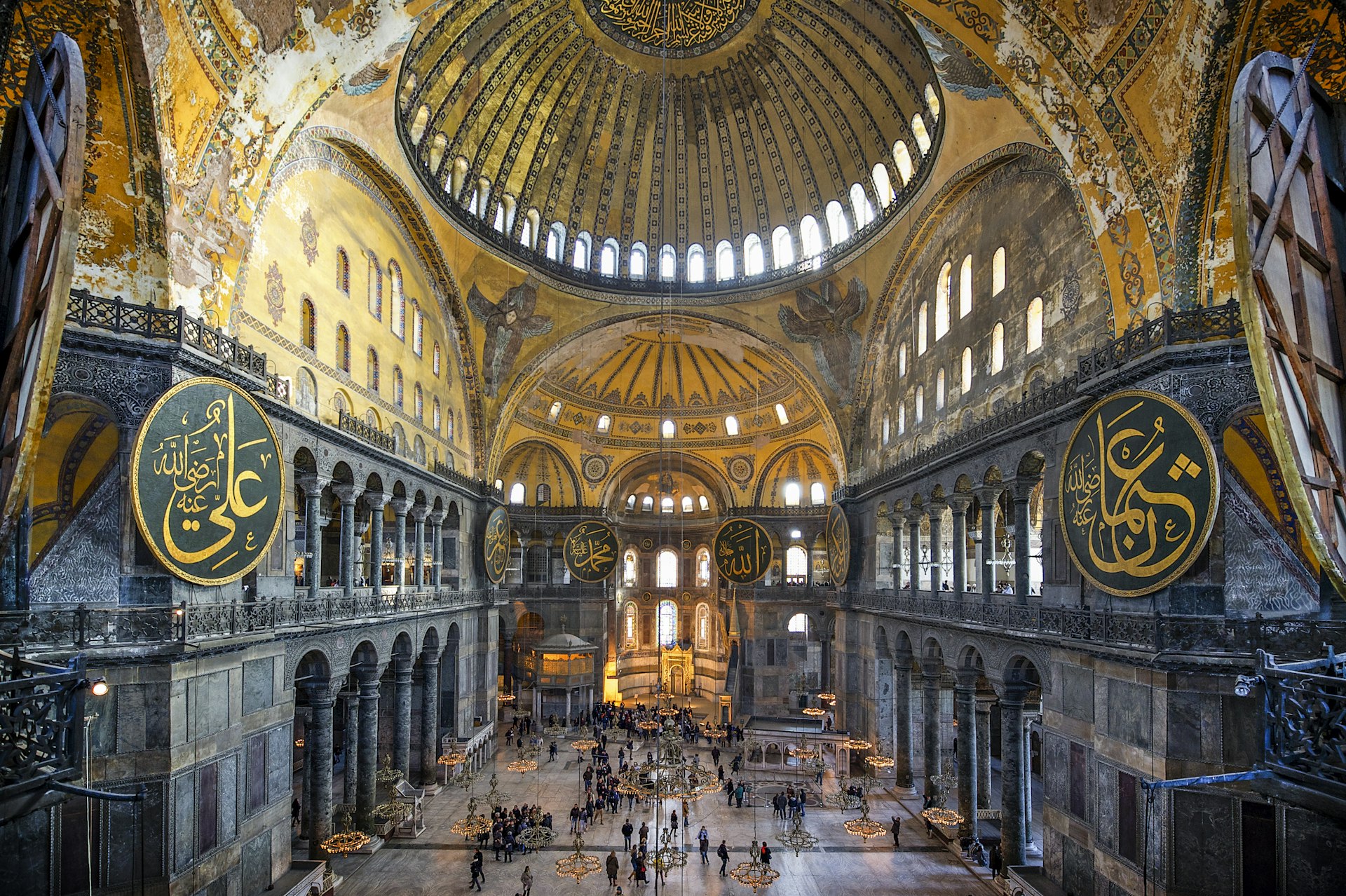
Admire architectural splendor in Istanbul
The rulers of the city formerly known as Byzantium and Constantinople left their marks in grand style. The Hagia Sophia ’s soaring dome still leaves visitors awestruck a millennium and a half after its construction, while the towering Aqueduct of Valens and the vast subterranean Basilica Cistern attest to the impressive engineering feats that the Romans employed to supply the city and its residents with drinking water.
With a prime position overlooking the confluence of the Bosphorus, Golden Horn and Marmara Sea, Topkapi Palace evokes the might of the Ottoman Empire at its peak: lavishly decorated chambers, a treasury dripping with massive jewels and a kitchen that could feed 4000 people. Istanbul’s minaret-studded skyline is a heritage of the Ottomans as well. The famous Blue Mosque gets the most attention, but visitors shouldn’t miss the tiny, tile-bedecked Rüstem Paşa Mosque and the graceful Süleymaniye Mosque , perched atop one of the old city’s seven hills. History buffs can really dig into the different cultural eras in Istanbul by exploring its wealth of museums detailing the fascinating legacy of the city .
Cruise turquoise waters on a gület
Few vacations are more relaxing than a multi-day cruise aboard a gület (traditional wooden yacht) plying sections of Turkey’s southwestern coastline between Bodrum and Antalya . While away the long, sunny days swimming in secluded coves, reading or playing tavla (backgammon) on deck, eating fresh-caught fish, drinking rakı as the sun sets and sleeping out under the stars. If you get tired of blissfully lazing around, you can hop ashore along the way to explore the ancient ruins of Knidos , climb to the top of the Crusader Castle in Kaleköy or stop for lunch at one of the cool cafe-restaurants in Kaş .
Hike the Lycian Way
For a more active way to explore the Turquoise Coast, consider taking on part of the Lycian Way , a long-distance trekking path stretching 540 km (335 mi) from Fethiye to Antalya. Best traversed in spring or fall, the sometimes challenging trail winds along spectacular coastal cliffs, through bucolic villages and beach towns, past ancient ruins and up into the mountains.
Most sections have accommodation options in small pensions as well as camping. Highlights along the way include the secluded valley of Kabak , the long sandy beach of Patara , the massive rock tombs of Myra , the ruins of Olympos and the “ burning rock ” at Çıralı. If you want to see more of Turkey's incredible landscape on foot and escape the crowded tourist spots, extend your trip and spend some time exploring the country's stunning array of national parks .
See incredible Roman mosaics
Tiny colored cubes of glass, ceramic or stone were used during the Roman era to make amazingly detailed tableaux depicting mythological tales, heroic battles, lavish banquets and other scenes. Splendidly preserved examples of these mosaics, which often decorated the floors of grand palaces and villas, can today be found in numerous museums in Turkey, most notably the Gaziantep Zeugma Mosaic Museum , the Hatay Archaeology Museum and the Haleplibahçe Mosaic Museum in Şanlıurfa.
Linger over a leisurely Turkish breakfast
It’s hard to think of a better way to fuel up for a big day of sightseeing than with a Turkish breakfast spread ( serpme kahvaltı ). Start with the savory nibbles: olives, cheeses, sliced tomatoes and cucumbers, perhaps some spicy pepper paste along with your eggs. Then satisfy your sweet tooth with homemade jams and a decadent swirl of honey and thick cream ( kaymak ). Different parts of the country have their own special additions: fresh herbs along the Aegean coast, cornmeal cooked with melted butter and cheese (called mıhlama or kuymak ) in the Black Sea region, and fermented cheese and hot peppers in Hatay. Endless small glasses of black tea are universal.
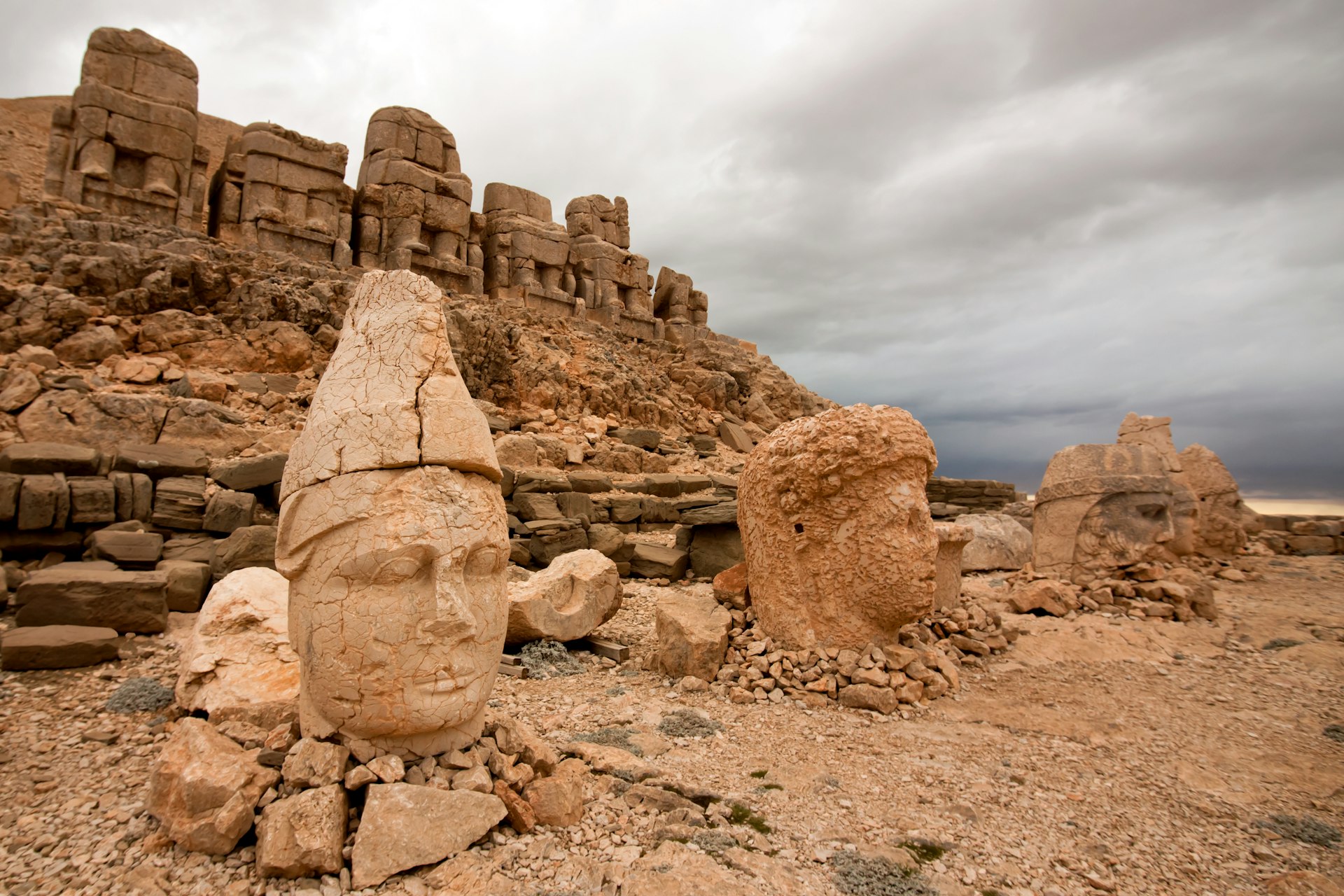
Watch the sunrise from atop Mt. Nemrut
The surreal sight at the summit of Nemrut Dağı is testament to both the extent of the power that can be wielded by a ruler and to its inevitable decline. In the 1st century BCE, a Hellenistic king had massive statues of deities, mythic beasts and other figures built on top of a rocky peak as a monument to his own greatness. Earthquakes over the centuries toppled the heads of these statues from their bodies and they now sit scattered around a stark, remote landscape. Tour groups typically bring visitors up here at sunrise or sunset, but if you stay overnight at one of the simple lodgings a little below the summit, you can experience both.
Imagine the beginnings of human civilization
Turkey is home to some of the world’s most important Neolithic sites , which are still yielding new insights – and questions – about how humans lived more than 10,000 years ago. In the center of the country near Konya, the excavations of Çatalhöyük have provided clues about early “urban” life, the period when people started to transition from nomadic ways to settled agrarian livelihoods. In the southeast outside of Şanlıurfa, the findings at the ritual complex of Göbeklitepe – thought to be the world’s first place of worship – have transformed our understanding of when humans began to develop religious beliefs and practices.
You might also like: Do you need a visa to go to Turkey? The 10 most incredible places to visit in Turkey How to drink Turkish coffee like a local
This article was first published Oct 12, 2021 and updated Jan 3, 2022.
Explore related stories

Food and Drink
May 21, 2024 • 4 min read
Türkiye's culinary richness is the stuff of legend – and so are its cheeses. Dive into the wonderful world of these varied cultures (get it?).

Apr 20, 2024 • 9 min read

Mar 12, 2024 • 6 min read

Feb 2, 2024 • 5 min read

Oct 25, 2023 • 7 min read
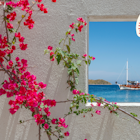
Oct 4, 2023 • 5 min read

Sep 28, 2023 • 6 min read

Aug 2, 2023 • 5 min read

Apr 18, 2023 • 8 min read

Apr 11, 2023 • 4 min read
You are using an outdated browser. Upgrade your browser today or install Google Chrome Frame to better experience this site.

Routine Vaccines
It’s important to be up to date on recommended routine vaccines prior to travel, including Flu, RSV and COVID-19.

Find a Clinic
Advice for Travelers
Personalized Health Information Tool for Global Travel
Disease Directory
Frequently Asked Questions
CDC Yellow Book
Pre-travel Rapid Evaluation Portal for Patients
Clinician Resources
Research and Surveillance
- Medical Tourism
- Cholera Information for Health Care Professionals
- COVID-19 Travel Information
- Travel Industry Resources

Learn about CDC’s Traveler Genomic Surveillance Program that detects new COVID-19 variants entering the country.

Sign up to get travel notices, clinical updates, & healthy travel tips.
See the full list of Travel Health Notices , including:
Level 2 - Practice Enhanced Precautions
- New Chikungunya in Maldives May 28, 2024
- Global Polio May 23, 2024
- Diphtheria in Guinea April 23, 2024
Level 1 - Practice Usual Precautions
- Oropouche Fever in the Americas June 05, 2024
- Updated Global Measles May 28, 2024
- New Meningococcal Disease in Saudi Arabia - Vaccine Requirements for Travel During the Hajj and Umrah Pilgrimages May 20, 2024
There are no Warning , Alert, Watch, COVID-19 Very High, COVID-19 High, COVID-19 Moderate, COVID-19 Low, COVID-19 Unknown, Level 4, or Level 3 notices currently in effect.
File Formats Help:
- Adobe PDF file
- Microsoft PowerPoint file
- Microsoft Word file
- Microsoft Excel file
- Audio/Video file
- Apple Quicktime file
- RealPlayer file
- Zip Archive file
Exit Notification / Disclaimer Policy
- The Centers for Disease Control and Prevention (CDC) cannot attest to the accuracy of a non-federal website.
- Linking to a non-federal website does not constitute an endorsement by CDC or any of its employees of the sponsors or the information and products presented on the website.
- You will be subject to the destination website's privacy policy when you follow the link.
- CDC is not responsible for Section 508 compliance (accessibility) on other federal or private website.
- Best overall
- Best for cruises
- Best for reputation
- Best for preexisting conditions
- Best for digital nomads
- Best low-cost
- Best for road trips
- How we reviewed travel insurance companies
Ultimate Guide to Choosing the Best Travel Insurance in June 2024
Affiliate links for the products on this page are from partners that compensate us (see our advertiser disclosure with our list of partners for more details). However, our opinions are our own. See how we rate insurance products to write unbiased product reviews.
Traveling is an adventure, a leap into the unknown, a story waiting to unfold. But every story needs a safety net, and that's where travel insurance comes in. In this guide to the best travel insurance, we'll embark on a journey to help you better understand travel insurance and uncover the benefits that make it an indispensable companion for any traveler.
Our Picks for the Best Travel Insurance Companies
Best overall: nationwide travel insurance.
- Runner-Up: AXA Assistance USA
- Best for Cruises: Travel Guard
- Best Reputation: C&F Travel Insured
- Best for Pre-existing Conditions: Tin Leg Travel Insurance
- Best for Digital Nomads: WorldTrips Travel Insurance
- Best Low-Cost Option: Trawick International Travel Insurance
Best for Road Trips: Travelex Travel Insurance
How we rate travel insurance »
Compare the Best Travel Insurance Companies
The best travel insurance companies offer comprehensive coverage options for a wide range of people and needs. For this guide, we looked at coverage options, customizability, and the best companies for specific situations, such as pre-existing conditions.
Here are Business Insider's picks for the best travel insurance companies in 2024.
- Trip cancellation coverage of up to 100% of trip costs (for cruises) or up to $30,000 (for single-trip plans)
- Check mark icon A check mark. It indicates a confirmation of your intended interaction. Three cruise-specific plans to choose from
- Check mark icon A check mark. It indicates a confirmation of your intended interaction. Annual travel insurance plans available
- Check mark icon A check mark. It indicates a confirmation of your intended interaction. Strong trip cancellation coverage
- Check mark icon A check mark. It indicates a confirmation of your intended interaction. Cancel for any reason coverage available
- con icon Two crossed lines that form an 'X'. CFAR insurance not available with every single plan
- con icon Two crossed lines that form an 'X'. Medical coverage is lower than what some competitors offer
Nationwide Travel Insurance offers many of the standard benefits you might see with a travel insurance policy. This can include things like trip cancellation coverage, so you can recover pre-paid costs or trip interruption in the event your vacation is interrupted by an unexpected event. There's also baggage delay coverage and medical coverage.
- Cancel for any reason coverage available
Nationwide Travel Insurance is of the largest players in the travel insurance space, offering nearly endless options for any customer on the travel spectrum, including annual travel insurance plans which can offer frequent travelers the flexibility to "set it and forget it" on their travel insurance coverage.
Nationwide Essential also offers some of the most affordable policies in the market compared to similar plans from competitors, which makes it a great pick for just about anyone. Buyers can discuss bundling options as Nationwide also sells homeowners, auto, pet, and other insurance products. Its travel insurance quoting is just as easy as it has been with other Nationwide insurance products.
Read our Nationwide Travel Insurance review here.
Best Travel Insurance Runner-Up: AXA Assistance USA
- Trip cancellation coverage of up to 100% of the trip cost
- Check mark icon A check mark. It indicates a confirmation of your intended interaction. Generous medical evacuation coverage
- Check mark icon A check mark. It indicates a confirmation of your intended interaction. Up to $1,500 per person coverage for missed connections on cruises and tours
- Check mark icon A check mark. It indicates a confirmation of your intended interaction. Covers loss of ski, sports and golf equipment
- Check mark icon A check mark. It indicates a confirmation of your intended interaction. Generous baggage delay, loss and trip delay coverage ceilings per person
- con icon Two crossed lines that form an 'X'. Cancel for any reason (CFAR) coverage only available for most expensive Platinum plan
- con icon Two crossed lines that form an 'X'. CFAR coverage ceiling only reaches $50,000 maximum despite going up to 75%
AXA Assistance USA keeps travel insurance simple with gold, silver, and platinum plans. Emergency medical and CFAR are a couple of the options you can expect. Read on to learn more about AXA.
- Silver, Gold, and Platinum plans available
- Trip interruption coverage of up to 150% of the trip cost
- Emergency medical coverage of up to $250,000
AXA Assistance USA offers consumers a great option for no-stress travel insurance: low-priced plans, generous coverage limits on key categories including primary insurance on lost luggage, and up to 150% reimbursement for qualifying trip cancellations.
While add-ons are limited and rental car coverage is not included by default on cheaper plans, AXA is a perfect fit for travelers who don't plan to drive (or who already hold a travel credit card with rental car coverage), and don't need any additional bells and whistles.
Read our AXA Assistance USA Travel Insurance review here.
Best for Cruises: AIG Travel Guard
Trip cancellation coverage for up to 100% of the trip cost and trip interruption coverage for up to 150% of the trip cost
- Check mark icon A check mark. It indicates a confirmation of your intended interaction. Trip cancellation coverage of up to 100% of the cost, for all three plan levels
- Check mark icon A check mark. It indicates a confirmation of your intended interaction. CFAR covers up to 75% of total trip costs (maximum of $112,500 on some plans)
- Check mark icon A check mark. It indicates a confirmation of your intended interaction. Medical coverage of up to $500,000 and evacuation of up to $1,000,000 per person
- Check mark icon A check mark. It indicates a confirmation of your intended interaction. Includes COVID coverage
- Check mark icon A check mark. It indicates a confirmation of your intended interaction. Above average baggage loss and delay benefits
- Check mark icon A check mark. It indicates a confirmation of your intended interaction. High medical evacuation coverage
- con icon Two crossed lines that form an 'X'. Premiums may run slightly higher than competitors
Travel Guard is a well-established and highly rated name in the travel insurance industry. It offers three main coverage options to choose from, and in general its policies have above-average coverage for baggage loss and baggage delays, plus high medical evaluation coverage limits.
- Trip cancellation coverage for up to 100% of the trip cost
- Trip interruption coverage for up to 150% of the trip cost
- Preexisting medical conditions exclusions waiver must be purchased within 15 days of initial trip payment
- Annual travel insurance plan and Pack N' Go plan (for last-minute trips) available
Travel Guard is well-known insurance provider, and a great fit for travelers who want to ensure that they can get their money back in the event of canceled or interrupted travel plans.
While the company's policies can be pricey compared to its competitors, the high medical and evacuation limits make AIG a solid choice for older travelers who value peace of mind and simplicity over highly customizable plans that may be bolstered with medical upgrades.
Read our AIG Travel Guard review here.
Best for Reputation: C&F Travel Insured
- Check mark icon A check mark. It indicates a confirmation of your intended interaction. Offers 2 major plans including CFAR coverage on the more expensive option
- Check mark icon A check mark. It indicates a confirmation of your intended interaction. Cancellation for job loss included as a covered reason for trip cancellation/interruption (does not require CFAR coverage to qualify)
- Check mark icon A check mark. It indicates a confirmation of your intended interaction. Frequent traveler reward included in both policies
- Check mark icon A check mark. It indicates a confirmation of your intended interaction. Up to $1 million in medical evacuation coverage available
- con icon Two crossed lines that form an 'X'. Medical coverage is only $100,000
- con icon Two crossed lines that form an 'X'. Reviews on claims processing indicate ongoing issues
- C&F's Travel Insured policies allow travelers customize travel insurance to fit their specific needs. Frequent travelers may benefit from purchasing an annual travel insurance plan, then adding on CFAR coverage for any portions of travel that may incur greater risk.
While every travel insurance company has negative reviews about its claims process, C&F Travel Insured 's claims process has a consistent stream of positive reviews. One customer wrote that C&F processed a claim within 48 hours. Additionally, C&F regularly responds to customer reviews within one business week, making reviews a consistent way to reach the company.
Additionally, in C&F's fine print, it mentions that any claims that take more than 30 days to pay out will begin to accrue interest at 9% APY.
C&F's reputation isn't the only thing to speak highly of. It offers an array of add-ons uncommon in the travel insurance industry, such as Interruption for Any Reason insurance and CFAR coverage for annual plans. C&F also offers discounts for children on its Protector Edge plan and free coverage on its Protector plan.
Read our C&F Travel Insured review here.
Best for Pre-Existing Conditions: Tin Leg Travel Insurance
- Check mark icon A check mark. It indicates a confirmation of your intended interaction. Policy coverage includes most pre-existing health conditions
- Check mark icon A check mark. It indicates a confirmation of your intended interaction. Generous medical and evacuation amounts for peace of mind
- Check mark icon A check mark. It indicates a confirmation of your intended interaction. COVID coverage included by default on all insurance plans
- Check mark icon A check mark. It indicates a confirmation of your intended interaction. Offers a wide range of plans for various budgets and travel needs
- Check mark icon A check mark. It indicates a confirmation of your intended interaction. Some plans offer CFAR, “cancel for work reasons,” financial default, and unemployment coverage
- con icon Two crossed lines that form an 'X'. Limited add-on coverage options
- con icon Two crossed lines that form an 'X'. Baggage loss and delay coverage is low compared to competitors
Tin Leg travel insurance offers eight travel insurance plans to meet the unique needs of travelers.
- Tin Leg was founded in 2014 by the travel insurance industry experts at Squaremouth. Designed to meet the most common needs of travelers, these policies offer comprehensive Trip Cancellation and Trip Interruption benefits, and a range of Emergency Medical and Medical Evacuation limits.
Tin Leg Travel Insurance is a great fit for travelers with medical issues in particular. Seven of Tin Leg's eight travel plans include coverage for pre-existing conditions as long as you purchase your policy within 15 days of your initial trip payment.
Thanks to coverage for pre-existing medical conditions as well as for potential COVID-19 infection while traveling, this company offers some of the best financial investment options for travelers who are or will be exposed to higher health risks and issues.
Read our Tin Leg Travel Insurance review here.
Best for Digital Nomads: WorldTrips Travel Insurance
- Check mark icon A check mark. It indicates a confirmation of your intended interaction. Affordable base plans that can be customized with add-ons including rental car, pet care, hunting and fishing, and vacation rental coverage
- Check mark icon A check mark. It indicates a confirmation of your intended interaction. Insurance plans available for international student travelers
- Check mark icon A check mark. It indicates a confirmation of your intended interaction. Trip delay coverage benefit that kicks in after just five hours
- Check mark icon A check mark. It indicates a confirmation of your intended interaction. Pre-existing conditions waiver can be purchased within 21 days of initial trip payment
- con icon Two crossed lines that form an 'X'. Lower medical, evacuation and accidental death limits
- con icon Two crossed lines that form an 'X'. Limited, secondary baggage loss coverage although baggage protection can be upgraded at a low cost
- con icon Two crossed lines that form an 'X'. No special coverages for pets, sports equipment, etc.
WorldTrips has been a reputable travel insurance provider for more than 20 years. Unsurprisingly, it boasts an A+ rating from the Better Business Bureau and positive reviews from thousands of customers.
- Travel medical insurance (Premium, Group, Annual, and International Student options)
- Trip cancellation insurance
- Trip protection insurance
WorldTrips Travel Insurance has affordable premiums, highly customizable add-ons, and generous coverage for core categories of travel insurance. All this makes it a great option for digital nomads, students studying abroad and backpackers.
However, travelers should keep in mind that plans are not particularly flexible, and coverage amounts are limited unless you plan ahead to pay for the areas and amounts that you need.
Read our WorldTrips Travel Insurance review here.
Best for Affordability: Trawick International Travel Insurance
- Check mark icon A check mark. It indicates a confirmation of your intended interaction. Useful for adventurous travelers headed to higher-risk destinations
- Check mark icon A check mark. It indicates a confirmation of your intended interaction. Affordable plans with varying levels of coverage
- Check mark icon A check mark. It indicates a confirmation of your intended interaction. 10-day free look option
- Check mark icon A check mark. It indicates a confirmation of your intended interaction. Generous baggage loss replacement policy
- Check mark icon A check mark. It indicates a confirmation of your intended interaction. Trip delay coverage kicks in after just six hours
- Check mark icon A check mark. It indicates a confirmation of your intended interaction. Some policies allow a CFAR add-on
- Check mark icon A check mark. It indicates a confirmation of your intended interaction. Up to $1 million medical evacuation coverage limit
- con icon Two crossed lines that form an 'X'. Baggage and trip delay coverages don’t kick in until after the 12-hour mark
- con icon Two crossed lines that form an 'X'. International student policies available for temporary stints abroad
- con icon Two crossed lines that form an 'X'. Complaints about claims not being paid or involving an intermediary to resolve claims
Trawick International travel insurance offers plans customized to diverse travelers' needs. We look at coverage options, claims processing, pricing, and other important factors for savvy travelers.
- Travel medical insurance
- Trip protection and cancellation
- International student insurance
- Visitor medical insurance (for traveling to the US)
Trawick International Travel Insurance is another insurance provider with robust medical travel insurance that can help higher-risk and anxious travelers find peace of mind while on the road. This company offers one of the most generous medical evacuation policies in the market, although travelers will need to remember to add on rental car coverage if they need it.
Read our Trawick Travel Insurance review here.
- Check mark icon A check mark. It indicates a confirmation of your intended interaction. Options to cover sports equipment
- Check mark icon A check mark. It indicates a confirmation of your intended interaction. Option to increase medical coverage
- Check mark icon A check mark. It indicates a confirmation of your intended interaction. Can cancel up to 48 hours before travel when CFAR option is purchased
- Check mark icon A check mark. It indicates a confirmation of your intended interaction. Affordable coverage for budget-conscious travelers
- Check mark icon A check mark. It indicates a confirmation of your intended interaction. Includes generous baggage delay, loss and trip delay coverage
- Check mark icon A check mark. It indicates a confirmation of your intended interaction. Optional "adventure sports" bundle available for riskier activities
- con icon Two crossed lines that form an 'X'. Only two insurance plans to choose from
- con icon Two crossed lines that form an 'X'. Medical coverage maximum is low at up to $50,000 per person
- con icon Two crossed lines that form an 'X'. Pricier than some competitors with lower coverage ceilings
- con icon Two crossed lines that form an 'X'. Some competitors offer higher medical emergency coverage
Travelex travel insurance is one of the largest travel insurance providers in the US providing domestic and international coverage options. It offers a basic, select, and America option. Read on to learn more.
- Optional CFAR insurance available with the Travel Select plan
- Trip delay insurance starting at $500 with the Travel Basic plan
- Emergency medical and dental coverage starting at $15,000
Travelex Travel Insurance offers three plans:
- Travel Basic
- Travel Select
- Travel America
The Travelex America plan is meant for trips limited to the U.S., but it has the highest coverage limits in many areas compared to its other programs. If you're flying somewhere, the lost baggage limits are higher. Its natural strengths shine for road trippers, though. Travelex America adds coverage for roadside service and rental car coverage for unexpected accidents. It also covers pets should you be involved in an accident while on the road.
While your standard auto insurance does extend to car rentals within the U.S. for a limited time, any accident would affect future rates. Travelex would eliminate the risk of reporting to your auto insurance provider for minor incidents within its purview.
Read our Travelex Travel Insurance review here.
Introduction to Travel Insurance
Why travel insurance is a must-have.
The unpredictable nature of traveling – from flight cancellations to medical emergencies – can turn your dream vacation into a nightmare. Travel insurance acts as a personal safeguard, ensuring that unexpected events don't drain your wallet or ruin your trip.
Understanding Different Types of Travel Insurance
Not all travel insurance policies are created equal. From single-trip travel insurance policies to annual travel insurance plans , from minimal coverage to comprehensive protection, understanding the spectrum of options is your first step in finding the right fit for your journey.
Key Features to Look for in Travel Insurance Coverage
Travel insurance for medical emergencies.
Imagine falling ill in a foreign country; daunting, right? A robust travel insurance plan ensures you don't have to worry about how much emergency medical care while traveling will cost, even in the most remote corners of the globe. This coverage will often come in tandem with emergency medical evacuation coverage.
Trip Cancellation and Interruption Benefits
Life is full of surprises, some less pleasant than others. Trip cancellation and interruption coverage ensures that you're not left out of pocket if unforeseen circumstances force you to cancel or cut your trip short. You may also look for cancel for any reason and interruption for any reason options, which will reimburse you for a percentage of your nonrefundable fees, but expands the covered reasons you can cancel a trip. You can find our guide on the best CFAR travel insurance companies here.
Coverage for Personal Belongings and Baggage Loss
Losing your belongings is more than an inconvenience; it's losing a piece of your world. Insurance that covers personal belongings and baggage loss ensures that you're compensated for your loss, helping you to rebound and continue your adventure.
Support and Assistance Services
In times of trouble, having a lifeline can make all the difference. Look for insurance that offers 24/7 support and assistance services, giving you peace of mind that help is just a phone call away. Also, check websites that field customer reviews like Trustpilot, the Better Business Bureau, and InsureMyTrip , to see how well a company responds to customer requests.
Choosing the Best Travel Insurance
Reputation and reliability of the travel insurance provider.
A provider's reputation is not just about being well-known; it's about reliability, customer satisfaction, and the ability to deliver on promises. Researching and choosing a reputable provider is a cornerstone in ensuring your safety and satisfaction.
Understanding the Policy's Fine Print
The devil is in the details, and understanding the fine print of what your travel insurance policy covers is crucial. Be aware of coverage limits, exclusions, and the process for filing a claim to avoid any unpleasant surprises.
Customer Reviews and Feedback
In the age of information, customer reviews and feedback are goldmines of insight. Learn from the experiences of others to gauge the reliability and customer service of the insurance provider you're considering. While the ratings are important, you should also look at whether or not a company responds to customer complaints.
How to Get the Most Out of Your Travel Insurance
Knowing your policy inside out.
Familiarize yourself with every aspect of your policy – what it covers, what it doesn't, how to file a claim, and who to contact in an emergency. Being informed means being prepared.
Steps to Take When a Problem Arises
If you face an issue during your travels, knowing the immediate steps to take can make all the difference. Keep important contacts and your policy details handy, and remember, your insurance provider is there to assist you.
How to Pick the Best Travel Insurance Company for You
There isn't a one-size-fits-all policy that works perfectly for every traveler. Young, healthy solo travelers can opt for much cheaper plans that offer bare-bones coverage, while families juggling complex itineraries will do best by investing in a robust policy that can help defray any costs associated with lost baggage, delayed transportation or other trip-impeding obstacles.
That being said, you can't go wrong with a travel insurance provider that boasts a reputable history and offers a wide range of customizable plans. In some cases, you may be comparing plans that are only a few dollars' apart from each other. In such situations, you should generally opt for the insurance company that offers the strongest customer service. It's also worth considering whether or not the travel insurance provider has been reviewed by other travelers with similar itineraries to your own.
An insurance aggregator like InsureMyTrip or Squaremouth is one of the best tools for searching travel insurance policies. Once you input the specifics of your travel itinerary, you'll be able to see hundreds of search results to compare the ones that catch your eye. If the options are too overwhelming, use the filters to the left of your search page to eliminate as many irrelevant plans as possible.
How We Reviewed the Best Travel Insurance Companies
To come up with our list of the best travel insurance companies, we evaluated each insurer based on the following factors:
Guide Methodology: What We Considered
Policy Types
Travel insurance is essential, but often underused partly because people aren't getting what they want. Business Insider's 2023 travel study showed 10.65% of travelers surveyed bought cancel for any reason insurance. Cost may be a factor, but in many cases, the coverage is more affordable than you might think. Regardless, companies must offer a diverse range of coverage options. We award five stars to companies offering all standard coverages and additional options like pet and sports equipment protection.
Our 2023 travel study indicated the majority of purchases were made through the travel provider (ex: flight protection insurance when you're purchasing your airline tickets). While these may be sufficient for some customers, we look for companies offering a more comprehensive range of services.
According to the U.S. Travel Insurance Association, the average cost of travel insurance will be between 4% and 8% of total travel expenses. Anything beyond that price point should include additional benefits beyond the standard inclusions, such as CFAR protection or upgraded medical coverage. Anything below that 4% threshold may leave you lacking important or sufficient coverage in an emergency.
Convenience and Flexibility
Whether you're an infrequent traveler or a suitcase warrior, a good travel insurance company should have you covered. In many cases, you might not even have to talk to a person in order to purchase your policy.
Many people think of travel insurance in context with specific trips, but most of these top contenders sell both single-trip and multi-trip policies, also known as annual travel insurance. Some companies also offer plans specifically designed for cruisers, students abroad, and business travelers. (Read our guide to the best cruise travel insurance companies for more details.) Finally, all of these providers offer multiple options for getting the specific areas and amounts of coverage that you want.
Claims Handling
Most travelers never have a large claim. Premiums are low, and it provides peace of mind for the just in case situations. So they leave reviews based on their reduced stress levels. But what happens if you lose your luggage or have to stay a few extra days due to an unexpected accident? Will your insurance carrier cover your claim without all the hassle? We check real customer reviews to sort this out for you.
Ease of Use and Support
When purchasing, during your trip, and throughout the claims process, you may need extra support. Does the company have a 24/7 help line? Does it have an online or mobile system allowing you to self-manage? Essentially, what are the options when you need help? We look at the big picture to evaluate the average customer experience with each company.
You can read our full insurance rating methodology for even more details.
Best Travel Insurance FAQs
There isn't a one-size-fits-all solution for every traveler. Determine the benefits that are most important to you, like baggage delay coverage, medical coverage, and trip delay coverage, then look for a company with solid customer ratings, especially when it comes to processing claims.
Travel insurance will pay out if you experience a covered event, such as a travel delay or delayed or lost baggage. If you're looking to get travel insurance for a specific reason, such as needing to potentially cancel your trip due to work reasons, make sure your policy will cover you in that situation before purchasing it. You should also check customer reviews to see other travelers' claims experiences, as it varies wildly from company to company.
The average cost of travel insurance is 4% to 8% of your total trip cost, so it could vary widely depending on where you're traveling and the length of your trip. Your age, the number of people in your group, and other factors can also influence how much you'll pay.
Most comprehensive travel insurance policies include travel medical coverage that can come in handy if an emergency occurs and you need medical evacuation. Some travel insurance plans offer more specialized coverage for travelers with pre-existing conditions , so shop around if medical coverage is a top priority for you.
$100,000 should be a sufficient medical coverage limit for travel insurance. If you're planning on doing extreme sports or anything particularly risky on your trip, you may want to increase your coverage level. A high medical coverage limit is especially useful when you're purchasing cruise travel insurance, since medical evacuations are more involved at sea.
Editorial Note: Any opinions, analyses, reviews, or recommendations expressed in this article are the author’s alone, and have not been reviewed, approved, or otherwise endorsed by any card issuer. Read our editorial standards .
Please note: While the offers mentioned above are accurate at the time of publication, they're subject to change at any time and may have changed, or may no longer be available.
**Enrollment required.

- Main content
- My View My View
- Following Following
- Saved Saved
Europe's third-largest tour operator FTI files for insolvency
- Medium Text
Sign up here.
Reporting by Andrey Sychev and Miranda Murray, additional reporting by Andreas Rinke; editing by Matthias Williams Editing by Louise Heavens and Louise Heavens
Our Standards: The Thomson Reuters Trust Principles. New Tab , opens new tab

Markets Chevron

Stocks retreat, Treasuries flail as US rate cut hopes wither
Global stocks pulled back from an all-time high on Friday after surprisingly strong U.S. monthly jobs data dimmed hopes that the Federal Reserve would soon follow euro zone and Canadian interest rate cuts, causing Treasury yields to shoot higher.

- Share full article

Summer of Dupes: Alternatives in the Aegean
Between Turkey and Greece, there are plenty of spectacular spots for a seaside vacation. So why not go beyond the usual suspects? Here are five lesser-known choices.
In Datça, Turkey, the Ultava Houses hotel consists of four traditional village homes that have been updated with amenities like private rooftop pool terraces. Credit... Ultava Houses
Supported by
By Erin Vivid Riley
- June 7, 2024
In April, Princess Cruises told passengers that it was canceling a scheduled stop in Santorini, Greece, citing congestion. Four cruise ships were already anticipated to arrive on the same day in June, and were it to join, the ships would have brought some 17,000 visitors to an island of 15,500 residents.
In the Aegean Sea, more than 1,000 islands fill the waters between Greece and Turkey, and the coastlines are lined with spectacular bays. Both countries set tourism records last year, a boon for two fragile economies, but one that follows and in turn fuels frenzied development that threatens local livelihoods, cultural heritage and ecological balance, particularly on the Greek islands.
With plenty of whitewashed islands and historic coastal towns offering the same charms as their neighbors, it’s time to look beyond Mykonos and Marmaris to lesser-known spots that might benefit from more visitors. Whether you’re in search of a hiking adventure, a cultural excursion or seclusion in rugged beauty, here are five destinations that offer distinctly Aegean experiences, without the crowds.
When Michelin expanded its Turkey guidebook last year, the quiet district of Urla, near the port city of Izmir, stole the spotlight. On a windy peninsula with clay-heavy soil, the hilly region has a rich winemaking tradition that dates back 6,000 years. A near-total government monopoly on winemaking stymied production for decades, but recently boutique makers and chef-driven restaurants have carved a path for themselves and put Urla on the gastronomic map.
Newer wine producers like Hus focus almost exclusively on indigenous grapes, joining longtime innovators along the Urla Vineyard Route , which winds through rolling fields, olive groves and nine wineries, two of which have beautiful guest rooms, including 2 Rooms hotel at Şarapçilik (from $230). Each producer is no more than a 20-minute drive from the next.

“It’s as if everything here is passed down from word of mouth, from generation to generation, from season to season,” said Seray Kumbasar, the sommelier and co-owner of Vino Locale , a fine-casual restaurant among vineyards.
The local grape Bornova Misketi, a semisweet ancestor of muscat, features in many of Vino Locale’s Italian-leaning dishes. Ms. Kumbasar and her husband, Ozan, who is the chef, take a hyperlocal approach, harvesting the restaurant’s produce alongside the farmers who supply it. Most menu items are bright takes on simple ingredients: The heart of a local artichoke is boiled in a fragrant broth of herbs and citrus, then doused with olive oil and paired with fava bean purée and kumquat.
On the way to the coast from wine country, the restaurant OD Urla has a similarly light-handed style. Wood-fired dishes, like a gently cooked octopus or squid drizzled with fermented pomegranate syrup, combine seafood from the peninsula’s waters with produce from an on-site farm.
In the charming town of Urla itself, stone alleyways connect multi-hyphenate spaces like İstifçi , where a combined design and wine store leads to a restaurant and hotel; laid-back hangouts like Filos Coffee and Wine , which serves a selection of the area’s wines by the glass; and mom-and-pop shops that do one thing very well, such as Girit Pastanesi with its bademli kazandibi, an almond-studded caramelized milk pudding.
The seaside town of Ayvalik, 250 miles southwest of Istanbul, was once a hub of Ottoman-era olive oil production. Many of the industry’s stone factories are now populated with workshops focused on traditional Turkish crafts. Despite growing tourism, Ayvalik retains “a raw texture,” said Özlem Erol, the founder of the design store Moyy Atölye , as well as “a permanent community that lives and produces here.”
At her boutique, Ms. Erol works with women artisans to design clothing made from feretiko, an airy, handwoven fabric of hemp and cotton, as well as other crafts, like baskets made from the bark of hazelnut trees and braided wooden stools. At Bovindo , one of many shops selling porcelain works created on site, a ceramist creates elaborately etched plates based on her mother’s old dishware. At Tia Vine Cafe & Bar , the husband-and-wife co-owners, Hasan and Neşe Erdem, serve local wines alongside Circassian family recipes, such as haluj dumplings, pockets filled with puréed potato and covered in garlic yogurt.
Most of the action is centered in the neighborhood of Macaron, where every other corner seems to have either a small-batch olive oil store, antiques market or boutique hotel. The most contemporary, Ivy Ayvalik, opened last year in a traditional stone home (from $70). Four compact but comfy rooms sit above a neon-lit cafe and wine bar that stays lively late into the evenings.
From town, it’s a three-mile drive to the island of Cunda and its Ayvalik Islands Nature Park , where you can explore the rocky coves and a hiking path through the hills that opens onto sweeping views, before heading into Cunda’s main town for plates of sardine tartines at Ayna and herbal drinks at Cactus , one of many cocktail bars that circle the area’s central square.
With resort-filled Bodrum to its north, the nightlife capital of Marmaris to its east, and the ever-popular Greek island of Rhodes to its south, it’s a surprise that Datça has stayed relatively unknown. That is, until you look at a map: the long, narrow peninsula is connected to the mainland by a thin isthmus (plus a ferry from Bodrum) that’s somehow been enough to deter most visitors.
Güven Çetinkaya is the chef and co-owner of the Ultava Houses hotel, which consists of four traditional village homes that have been updated with amenities like private rooftop pool terraces (from $170). He said that unlike in more touristed areas, most of Datça’s residents have lived there for a long time. The region’s strict building codes have kept large developments away.
Along with a waterfront of fish restaurants, there’s Eski Datça, or the old town, where bougainvillea spills over stone buildings. There are just enough small restaurants and cafes to start and end your days here, but most visitors spend the hours in between exploring the pebbled beaches tucked into büks, or “bends,” that dot the peninsula’s 200 miles of coastline (Aquarium Cove is a standout).
The drive along the peninsula’s interior — marked by Valonia oaks, deep river gorges and stonewalled almond orchards — is just as spectacular. Along the way are detours to fishing villages turned into modest beach towns, home-style restaurants set in lush gardens, and at the peninsula’s western tip, the ancient site of Knidos and its Hellenic amphitheater.
Almost a third of this island in the western Cyclades can only be reached by footpaths, which act as small windows into its storied history. Some routes date back to the Neolithic period; others were forged by the miners of gold and silver who made Sifnos one of the richest stops in ancient Greece. “Today, they are still used by the locals to reach their terraced fields and small chapels, as well as by hikers,” said Fivos Tsaravopoulos, co-founder of Paths of Greece , a national hiking cooperative.
For close to a decade, the group has carefully restored some 60 miles of the island’s network and organized several self-guided themed hikes . One is a remote nine-mile path that circles Sifnos’s highest point, Mount Profitis Ilias, and passes chapels, terraces and a nature preserve known for bird-watching. “It’s the only way to experience what it’s like to live on this island, one of the most pristine in the Cyclades,” said Mr. Tsaravopoulos, who hopes the paths encourage more travelers to come during the shoulder seasons, when there’s good hiking weather.
In between hikes you can enjoy long meals of Sifnian delicacies, many slow-cooked in olive-wood-fired ovens. Since Nicholas Tselementes, considered the most important chef in Greece’s history, established himself here in the early 1900s, the island has kept up its culinary reputation.
Sifnos staples like revithada, a baked chickpea stew, and mastelo, roasted lamb, can be found at every taverna, while newcomer eateries like Cantina lean more creative — smoked-ox-cheek-croquettes topped with eggplant béchamel, for example. For a stay that rivals those in Mykonos, the 18-room Nos Hotel & Villas (from $825), the island’s latest addition, is all stone and marble surfaces, cinematic lighting and pools perched on the hillside.
Folegandros
About an hour west of Santorini by ferry, Folegandros is a quieter option for a classic Greek-island getaway. The sparsely developed island has no airport, less-accessible beaches and few visitor attractions — and that’s the draw. Its latest hotel, billed as its first luxury property, capitalizes on this feeling of seclusion: Gundari is in an 80-acre nature reserve known for its population of Eleanora’s falcons (from $640).
Unlike other luxury developments in the Cyclades, which often stoked ire among locals, Gundari hopes to set a different tone through its small-footprint commitments. The hotel has its own wastewater treatment system, and all of its stonework was made with rocks excavated on-site. An on-site farm, which employs traditional agricultural practitioners, will soon launch after-school programs.
Each of the 27 rooms comes with a private infinity pool, and its restaurant, run by Lefteris Lazarou — the chef behind Athens’s Michelin-starred Varoulko — will serve a rotating menu of unfussy seafood dishes, such as octopus carpaccio with fava bean cream and black garlic. From its cliffside setting, you can head down to white sand or pebbled beaches via e-bike.
The main port town of Karavostasis is little more than a fishing village. The second largest village, Ano Meria, has ancient hilltop ruins, traditional farmhouses and the Ecomuseum , which captures what homestead life was like. Chora, the island’s de facto capital, with its quintessential whitewashed squares on a cliff’s edge, has all the charm of busy towns on nearby islands but maintains an intact local community.
Follow New York Times Travel on Instagram and sign up for our weekly Travel Dispatch newsletter to get expert tips on traveling smarter and inspiration for your next vacation. Dreaming up a future getaway or just armchair traveling? Check out our 52 Places to Go in 2024 .
Exploring the Outdoors, One Step at a Time
Hiking is a great way to immerse yourself in nature and tune out the chaos of city life. the tips below will help you get ready before you hit the trail..
Hiking offers a host of mental and physical benefits. If you’re new to it, here’s how to get started .
Fourteen years and one Apple App of the Year award in, AllTrails has become something rare: a tool that works for both experts and newbies .
Make sure you have the right gear . Wirecutter has recommendations for anything you might need — from hydration packs to trekking poles . And remember to try on hiking boots at the right time of the day .
These clever apps and devices will help you to find your way, triage an injury and generally stay out of trouble on the trail.
Planning to venture out for a nighttime hike ? Opt for wide, easy-to-navigate paths.
Experts say failing to alert family or friends of your plans is one of the biggest mistakes hikers make. Here are some more safety tips .
Advertisement


IMAGES
VIDEO
COMMENTS
Girls and Ladies Tour Package Euro €177 . Cheap Flights Tickets Euro €45 . Book Hotel Get Free Transfer Euro €80
Exercise increased caution when traveling to Turkey due to terrorism and arbitrary detentions. Some areas have increased risk. Read the entire Travel Advisory. Do Not Travel To: Sirnak province, Hakkari province, and any area within six miles (10 kilometers) of the Syrian border due to terrorism. Country Summary: Terrorist groups continue ...
2. Cappadocia. Best for its unique landscape. Cappadocia is a geological wonderland in the center of Türkiye. The history of early Christians in Anatolia comes alive at the Göreme Open-Air Museum and the other cave churches and underground cities scattered around the valley.
DAILY TOURS. Uncover the treasures of Turkey on our daily tours, meticulously crafted by Wanna Go Travel to offer you a captivating glimpse into this remarkable country, one day at a time. Join us for an immersive and hassle-free exploration, ensuring you make the most of each day of your Turkish adventure.
Turkey Highlights. Juliet · Traveled May 2024. 8 day Intrepid tour of Türkiye packed in amazing opportunities to experience the beautiful, diverse landscape, history and culture. Right balance of physical activity, learning and fun. Excellent guide, Emre, who made it all so easy and enjoyable. Bus drivers also very good and safe.
Call us in Washington, D.C. at 1-888-407-4747 (toll-free in the United States and Canada) or 1-202-501-4444 (from all other countries) from 8:00 a.m. to 8:00 p.m., Eastern Standard Time, Monday through Friday (except U.S. federal holidays). See the State Department's travel website for the Worldwide Caution and Travel Advisories.
Patara Beach. Turquoise Coast. Backed by large sand dunes, this splendid, 18km-long sandy beach is one of Turkey's best. Due to its length, you can find a quiet spot even in the height….
Go Travel Turkey, Istanbul, Turkey. 333 likes · 13 talking about this. Turkey Tour Operator, Flight Ticket, Shopping Tours, Istanbul City Tours, Cheap Flight Ticket, Study
Hi, I'm Tom Brosnahan. My online Turkey travel guide has over 5000 pages on Istanbul and Turkey.. With over 50 years of travel writing experience and authoring more than 40 guidebooks, including the well-known "Lonely Planet Turkey", I share my best travel tips and local insight for exploring Turkey.
January. Istanbul is generally cold, gray and wet, and coastal resorts are deserted, but ski season is in full swing on Mt. Erciyes in Cappadocia, as well as farther east in Erzurum and Kars, and at Kartepe and Uludağ within driving distance of Istanbul. Black Sea anchovies ( hamsi) are at their fattest and most delicious.
Essential Pre-Travel Tips for a Hassle-Free Turkish Adventure. Before you embark on your Turkish journey, there are practicalities to consider. This section covers everything from packing essentials to cultural dos and don'ts, ensuring you are fully prepared for your adventure. Navigating Visa Policies for a Smooth Entry into Turkey.
Health officials caution that staying home is the best way to stem transmission until you're fully vaccinated. Below is information on what to know if you still plan to travel, last updated on ...
This Turkey travel guide will take you through everything you need to know before your visit so you can plan your Turkiye trip better! 1. Know the country. OFFICIAL NAME: Republic of Turkiye. CAPITAL: Ankara (no, it is not Istanbul) LOCATION: It is a transcontinental country located mainly in Asia and partly in Europe.
9. Mardin [SEE MAP] Perched on a strategic hilltop overlooking the plains of Mesopotamia in southeastern Turkey, Mardin is the capital of the Mardin Province. One of the oldest settlements in the region, Mardin is best known for its cultural diversity and Old City of sandstone buildings that cascade down the hill.
In 2021, Turkey's travel and tourism sector contribution to GDP was $59.3 billion, according to the World Travel & Tourism Council. The World Bank says that the quakes have caused around $34 ...
VISIT TURKEY - OFFICIAL TRAVEL GUIDE TO TURKEY. Plan your holiday in Turkey with free guides and videos. Learn about Istanbul, Ephesus, Cappadocia, Antalya, Turquoise Coast, where to stay, walking, fishing and more.
The shoulder seasons fall in April, May, September, and October. This is a good time to visit Turkey because temperatures are pleasant this time of year, ranging between a more comfortable 20°C to 30°C (though remember what I have said about rain and Cappadocia). Temperatures in the winter months vary.
933 Followers, 5,106 Following, 1,374 Posts - Go Travel Turkey (@gotravelturkey) on Instagram: "Flight Ticket, HotelReservation, Tour, Shopping Tours, Visa Services ...
There are two shoulder seasons - on one side there is the month of April and on the other side is October through mid-November. The shoulder seasons are perhaps an ideal time to visit with lesser crowds, moderate temperatures and discounts on accommodations and airfares. One thing to make note of, however, is that some shops, restaurants and ...
Turkey-Syria border. FCDO advises against all travel to within 10km of the border with Syria due to fighting and a heightened risk of terrorism.. Sirnak city. FCDO advises against all but ...
Turkish lira to dollar rates often fluctuate, so check the latest exchange rate before you go. Although Turkey is a secular state, the predominant religion is Islam, and travel writers generally ...
Rick Steves is America's leading authority on European travel. Plan your own trip or take one of Rick's value-packed European tours and vacations. Everything you need is here.
Hike the Lycian Way. For a more active way to explore the Turquoise Coast, consider taking on part of the Lycian Way, a long-distance trekking path stretching 540 km (335 mi) from Fethiye to Antalya. Best traversed in spring or fall, the sometimes challenging trail winds along spectacular coastal cliffs, through bucolic villages and beach towns ...
More. Learn about CDC's Traveler Genomic Surveillance Program that detects new COVID-19 variants entering the country. Sign up to get travel notices, clinical updates, & healthy travel tips. CDC Travelers' Health Branch provides updated travel information, notices, and vaccine requirements to inform international travelers and provide ...
Best for Cruises: Travel Guard. Best Reputation: C&F Travel Insured. Best for Pre-existing Conditions: Tin Leg Travel Insurance. Best for Digital Nomads: WorldTrips Travel Insurance. Best Low-Cost ...
Europe's third-largest tour operator FTI Group filed for insolvency in the Munich regional court on Monday, the German company said in a statement, as bookings continued to fall even after a ...
52. By Erin Vivid Riley. June 7, 2024. In April, Princess Cruises told passengers that it was canceling a scheduled stop in Santorini, Greece, citing congestion. Four cruise ships were already ...
The latest travel news, deals, guides and tips from the travel experts at USA TODAY. All the travel insights you need to plan your dream vacation.